Barcelona, 4–6 November 2025
The International Urban and Regional Cooperation (IURC) programme wrapped up its inspiring Global Thematic Networking Event during the Smart City Expo World Congress (SCEWC25) in Barcelona, bringing together more than 240 delegates from 130+ pilot cities and regions across Europe, Asia, Australasia, and the Americas. Over four days, the event showcased how city-to-city and region-to-region partnerships drive innovation, sustainability, and resilience worldwide.
The event, the first face-to-face meeting after 50+ online sessions conducted since September 2025, aimed to take stock of the IURC thematic clusters’ work and the emerging communities of practice. It also supported pilot cities/regions in defining and co-designing pilot projects for implementation in 2026-2027. Due to the cooperation with the Smart City Expo 2025, the IURC thematic event showcased relevant urban development technologies from EU countries and encouraged the IURC triple-helix cooperation approach by involving the research and business sectors. The annual event underlined the European Union’s role as a global leader for subnational, decentralised cooperation.
A video of the event is available here.
Day 1 – Opening Plenary, Global Thematic Workshops & EU Pavilion
The event opened in the Fira Barcelona Gran Via Convention Center with a full house for the Opening Plenary Session.
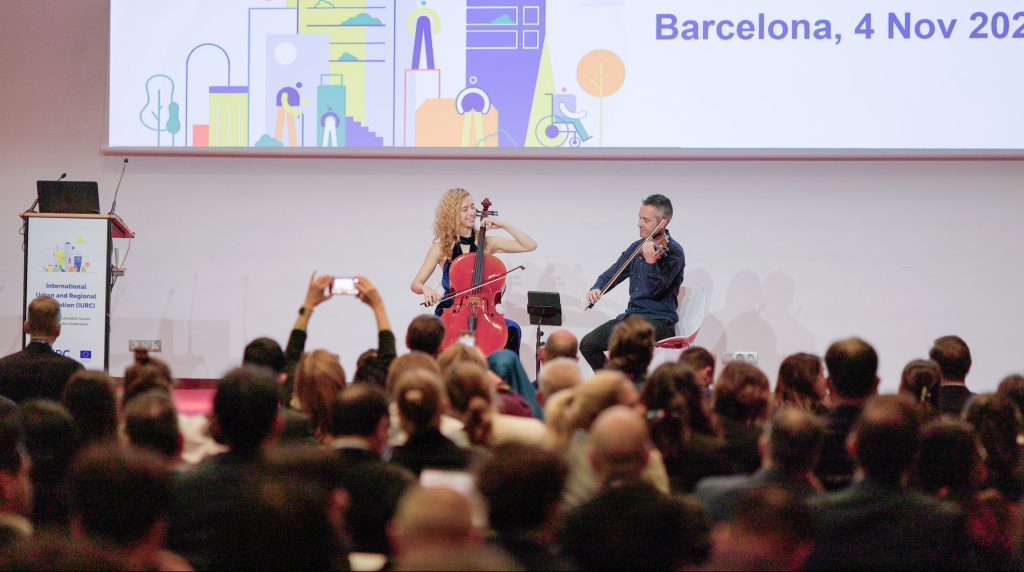
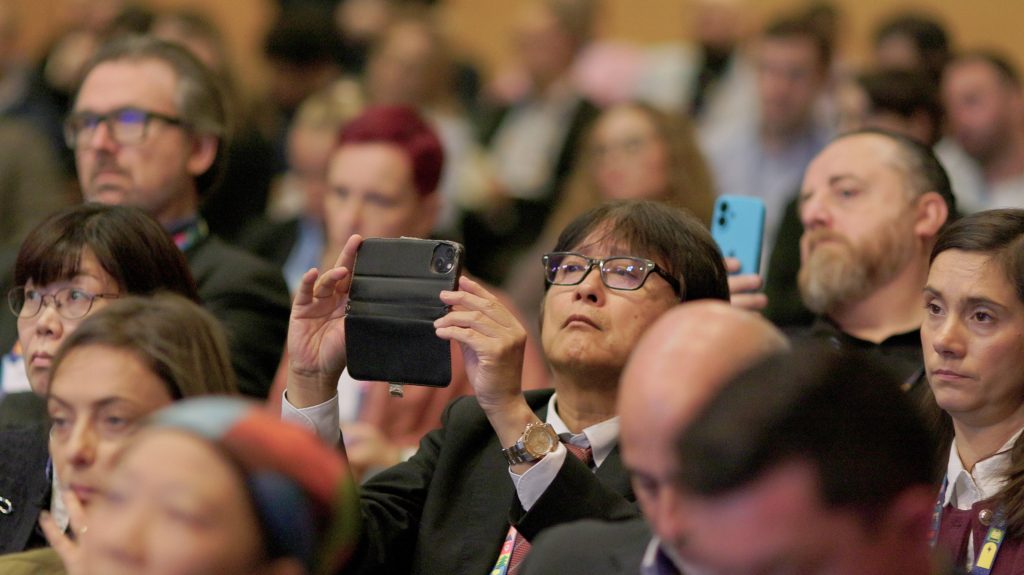
The morning began with a live classical performance by local musicians Nuria and Marçal followed by an introductory video of the IURC programme. The session then featured welcoming remarks from:
- Lorena Elvira, Secretary General, Ministry for European Union and Foreign Action, Government of Catalonia
- Oriol Escardibul, Secretary General, Ministry of Research and Universities, Government of Catalonia
- Andreas Röttger, First Counsellor, Head of Asia-Pacific, Service for Foreign Policy Instruments (FPI), European Union
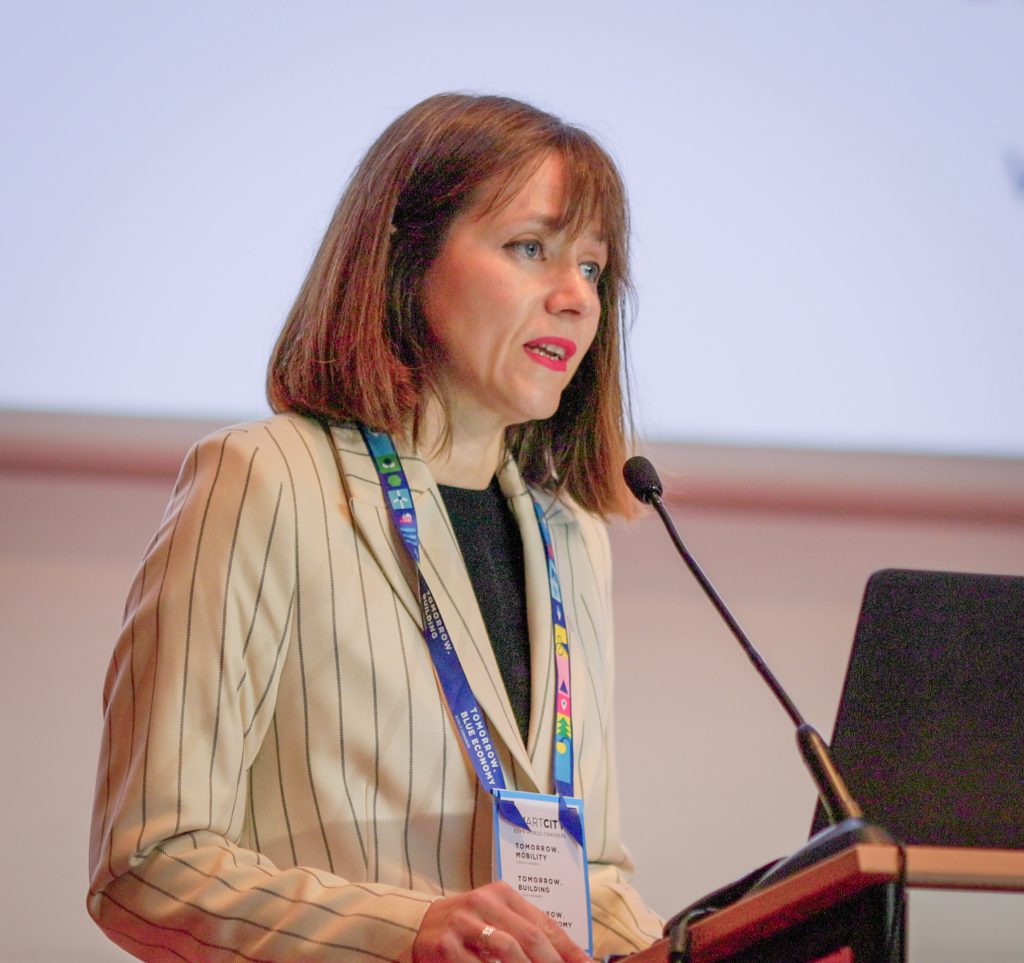

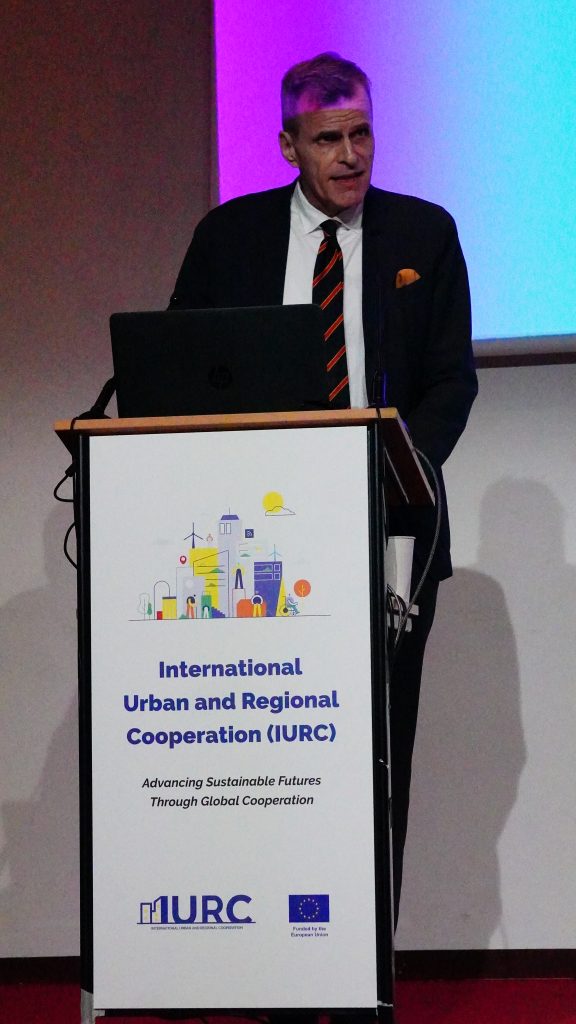
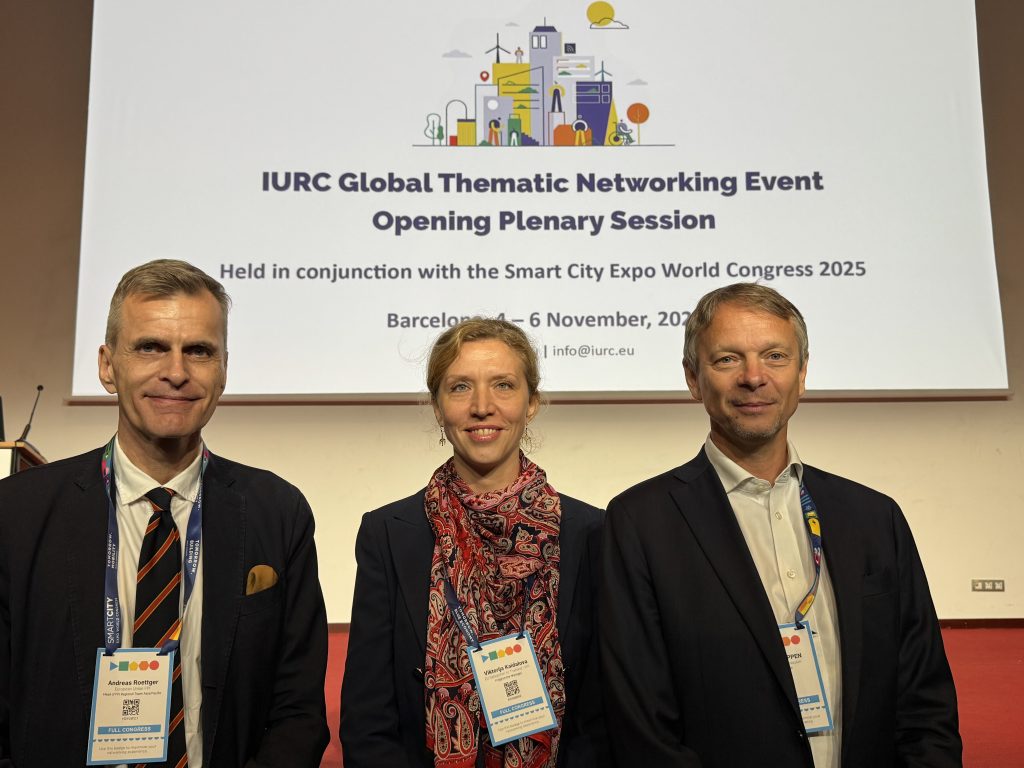
After the welcoming speeches, the moderators introduced a video especially prepared for the IURC activities at the Barcelona thematic networking event. The video featured footage by EU Commission Executive Vice President for Cohesion and Reform – Rafaelle Fitto – prepared for the Smart City Expo Barcelona and the IURC event, as well as messages by the EU Commission’s IURC management staff, Viktorija Kaidalova and Lutz Köppen.
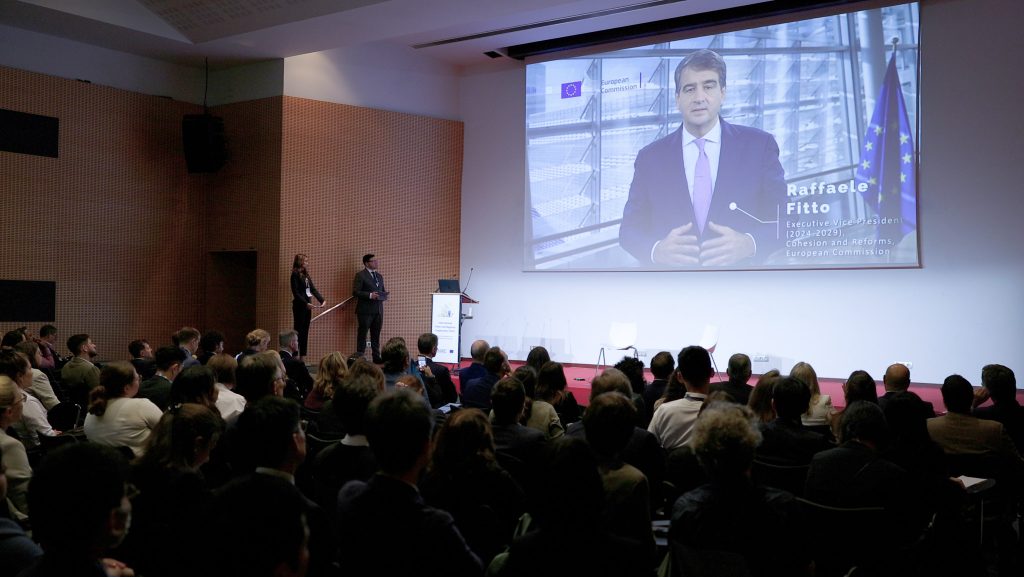
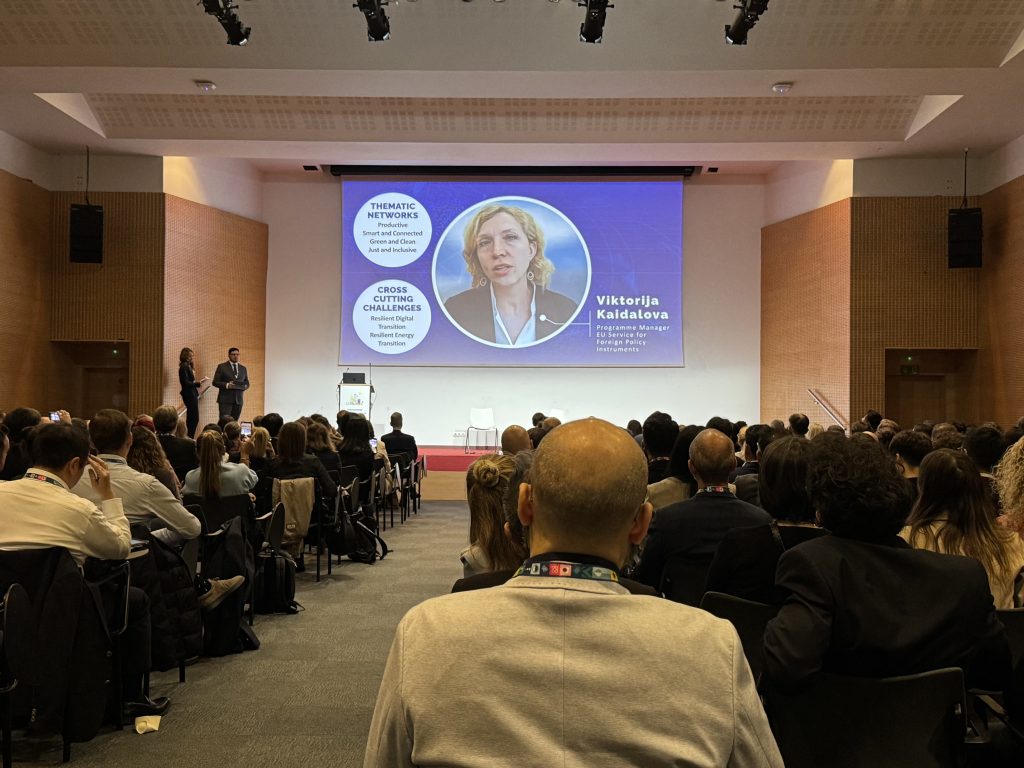
This was followed by a joint presentation by the IURC project team of the programme’s work plan and outcomes, setting the stage for the three-day collaboration. The 2025–2027 cycle focuses on deepening thematic collaboration in areas such as clean energy, mobility, urban innovation, circular economy, agri-food systems, industrial modernization, blue economy, climate adaptation, and social cohesion. The programme timeline includes key milestones such as thematic clusters identification (April 2025), city/region selection (May–August 2025), continuous thematic online engagement (since Sept 2025), co-creation of action plans (Sept 2025–February 2026), advanced cooperation visits (mid 2026) and pilot actions implementation (June 2026–Sept 2027), culminating with results presented at the European Week of Regions and Cities (EUWRC) in October 2027. Regional IURC events will be held in Singapore (June 2026) and Latin America (2026- TBD).
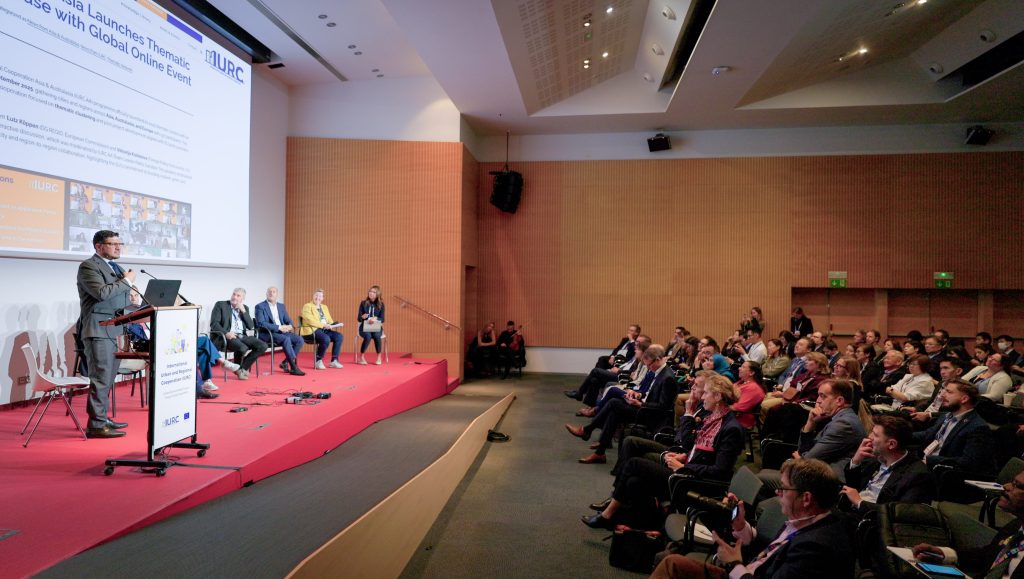
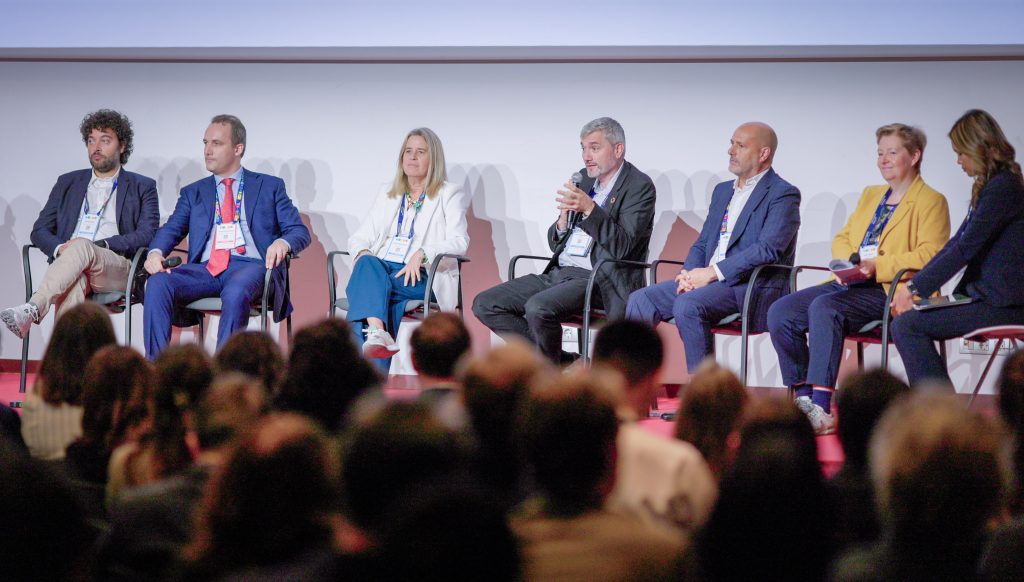
The plenary session ended with a keynote speech by Prof. Dr. Peter König (Trier University of Applied Sciences) entitled “Energy, Mobility, and Digital Transformation – Overarching Challenges for the IURC.” Against the backdrop of the heavy dependence of numerous EU countries on energy imports, he warned against focusing too narrowly on the sustainability of current electricity demand. Even with a rising share of renewable energies in electricity generation (around 57% in Germany in 2024), he said it was important to pursue the defossilization of countries’ entire energy needs.
Prof. König argued that this would require the import of renewable energies – in particular green hydrogen – which should then be produced in regions such as Africa, South America, Oceania, and the Middle East due to their higher efficiency. However, this would mean that imports would primarily be transported by ship and, due to the quantities required, with the highest possible energy density, so that green hydrogen could only be transported in the form of a derivative (ammonia, methanol, methane, e-fuel). Prof. König clearly prioritized transport in the form of green methane, as this can be used directly and without further loss-prone reconversion into pure hydrogen. Green methane would allow the use of the existing infrastructure for fossil natural gas, mean lower investment requirements, and eliminate the need to build an additional hydrogen distribution network, he explained, which would lead to a significantly faster and cheaper sustainable transformation of all sectors.
In his presentation, König advocated for cross-border accounting of emissions. He rejected goals of locally reduced CO₂ emissions while accepting additional emissions that are merely relocated as dishonest. “Our world knows only one balance sheet: the world”, he said. Consequently, he also questioned the often ideologically reduced accounting of single systems and called for the consistent inclusion of energy production in the analysis, e.g., the well-to-wheel approach for electromobility as well as for sustainable biogas drives. Only this perspective would enable technology-neutral evaluation and the immediate utilization of all available potential for improved sustainability.
König then focused on the need for a comprehensive change of direction in the mobility sector. For him, today’s vehicles, which often weigh more than 2.5 tons, are difficult to reconcile with the goals of smart cities, micromobility, and efficiency, despite battery drives. The lack of homogeneity in the masses of means of transport would lead directly to compatibility problems, which could not be compensated by improved digitalization, he said, adding that a rethink was needed here. However, this would require that all road users would feel safer, he explained, which should be supported by the consistent implementation of the Vision Zero principles.
Illustrating the potential of digitalization König highlighted a few examples from his local public utility in Trier (SWT). This continues to impress with innovative projects and AI-supported approaches, such as the use of municipal vehicles as swarm storage for renewable energies or the currently purely PV-powered and AI-supported water supply.
Prof. König thus paved the way for technical, thematic discussions between the IURC pilot cities and regions: “Let’s talk. Let’s listen. Let’s remain curious. We must constantly question ourselves, because that helps us to achieve even greater commitment together,” he said.
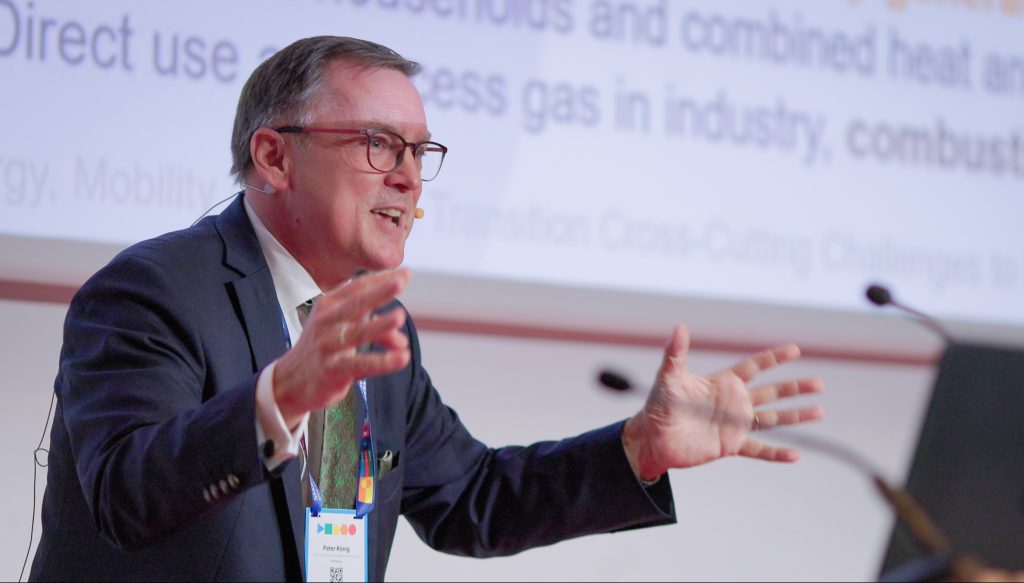
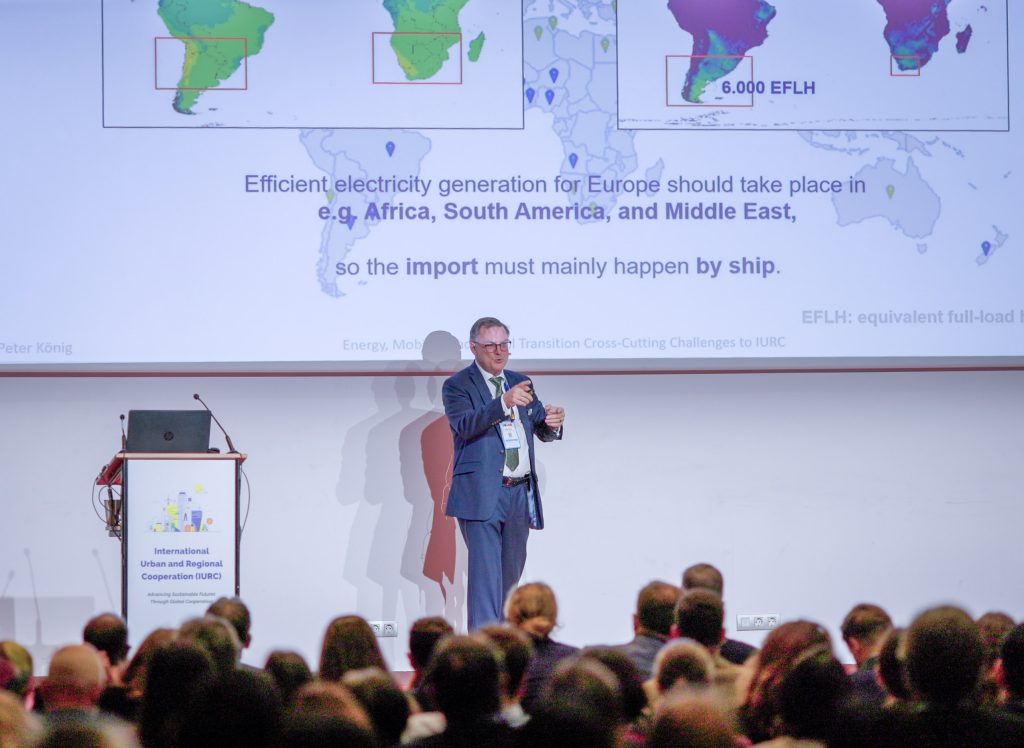
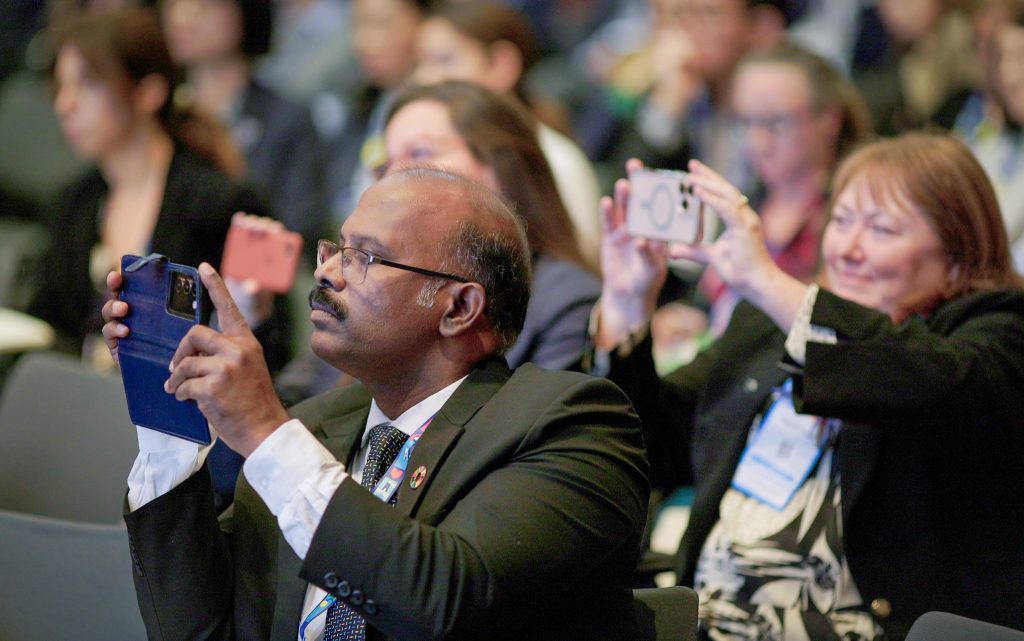
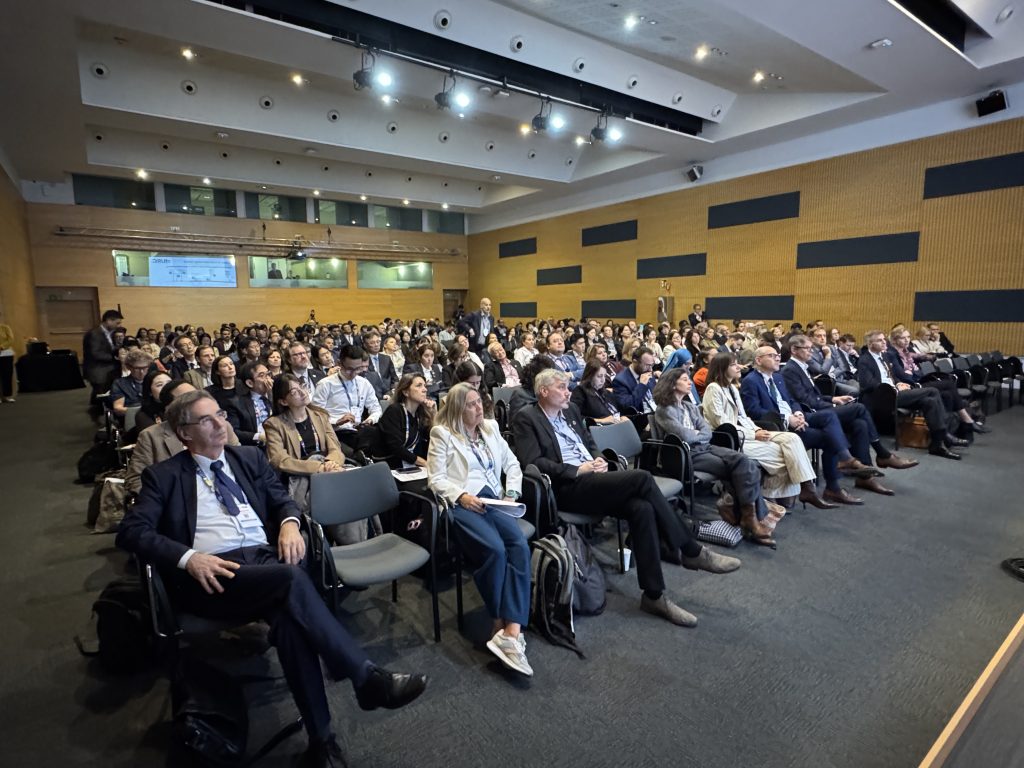
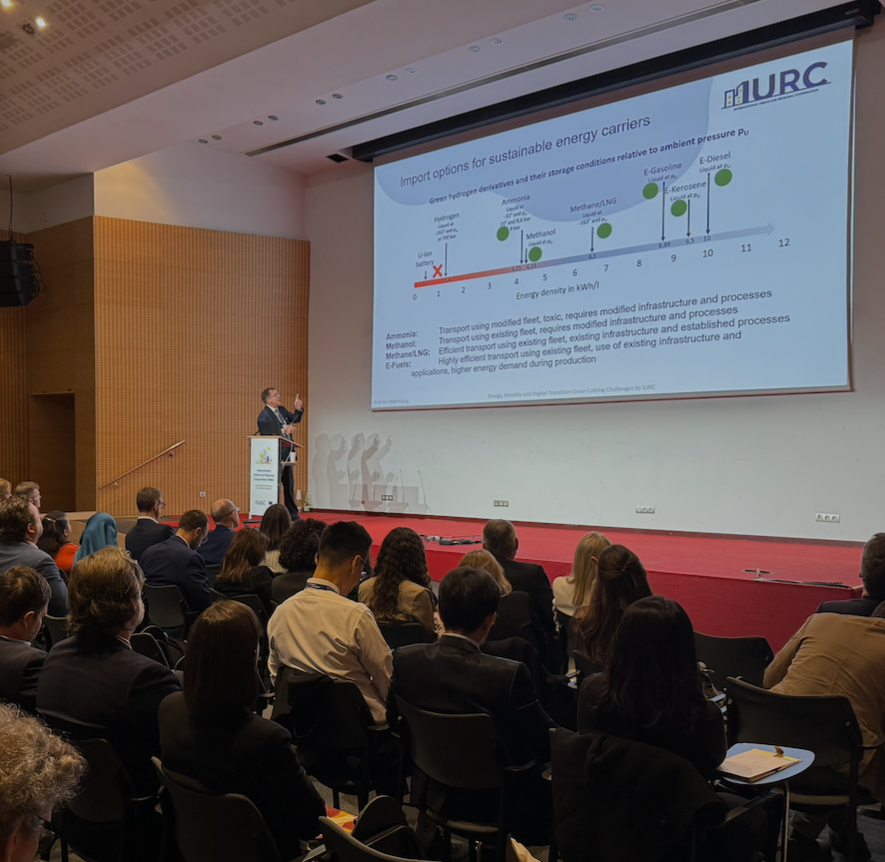
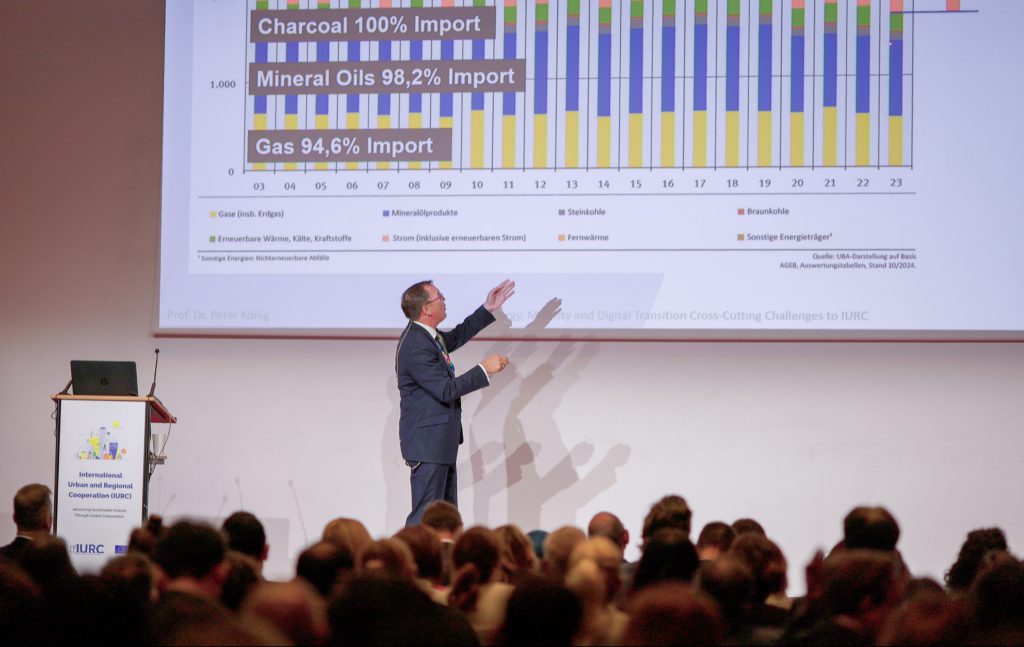
The opening session was moderated by IURC Asia & Australasia (AA) staff Kanyarat Aksorn – Faii – (Project Assistant) and Pablo Gándara (Team Leader). They guided delegates through the programme, including the music & video sessions, the welcoming speeches, the keynote, the team discussion and the closing remarks.
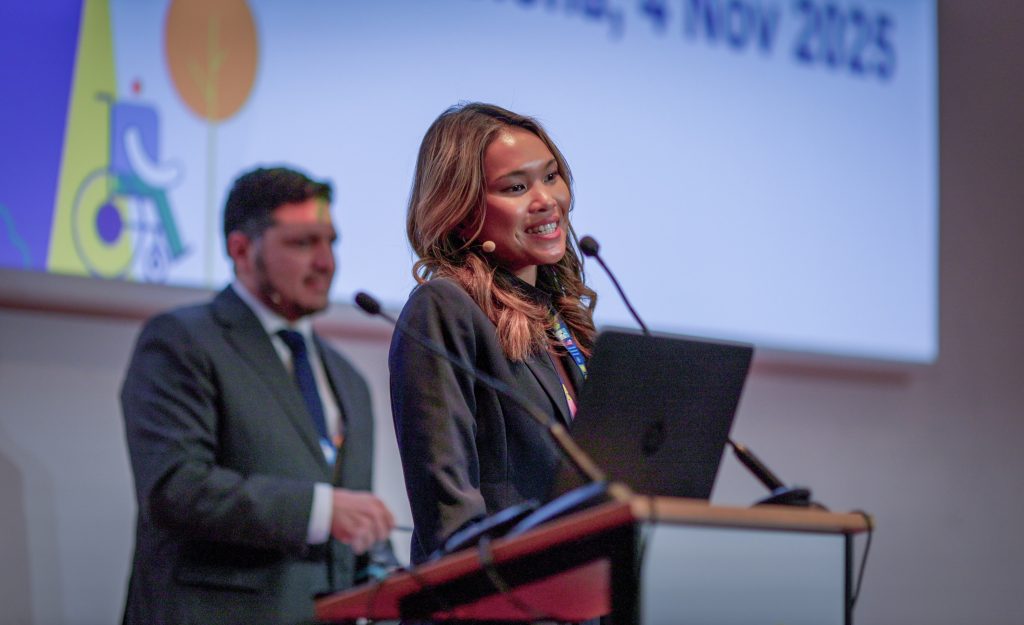
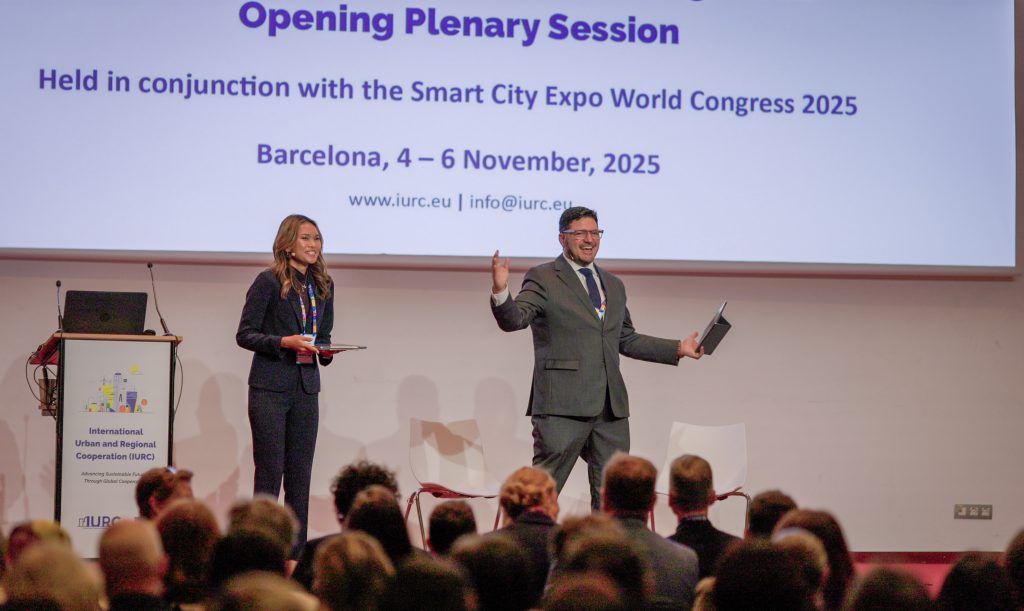
After the opening session, delegates had their first informal interaction round in the conference center’s common area. This was the perfect place for group pictures and personal introductions, identifying potential peers for targeted meetings over the next three days, and to further define joint pilot actions.
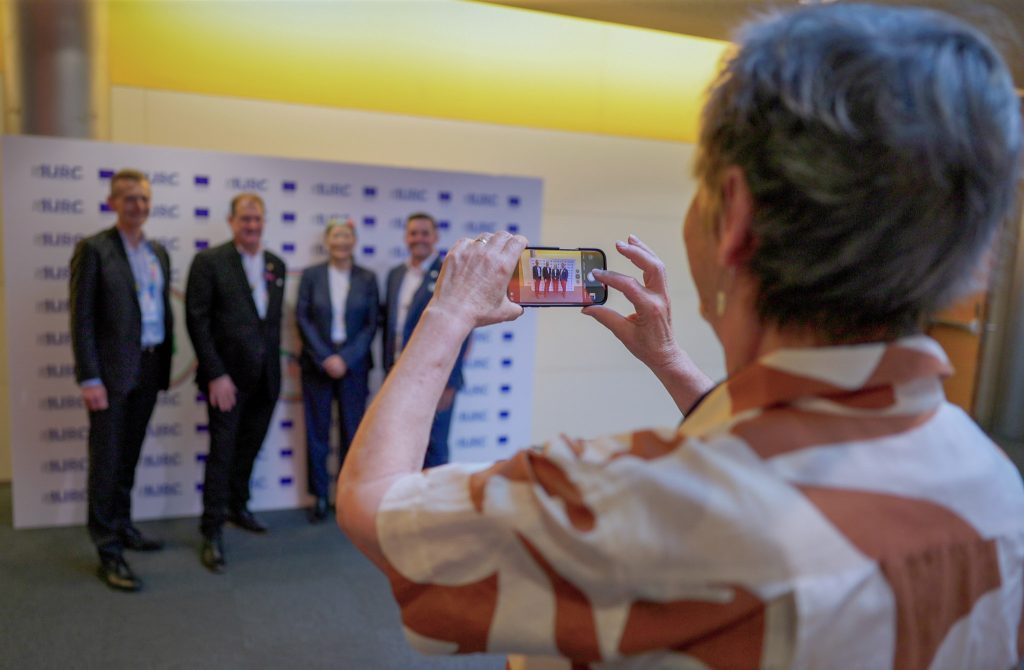
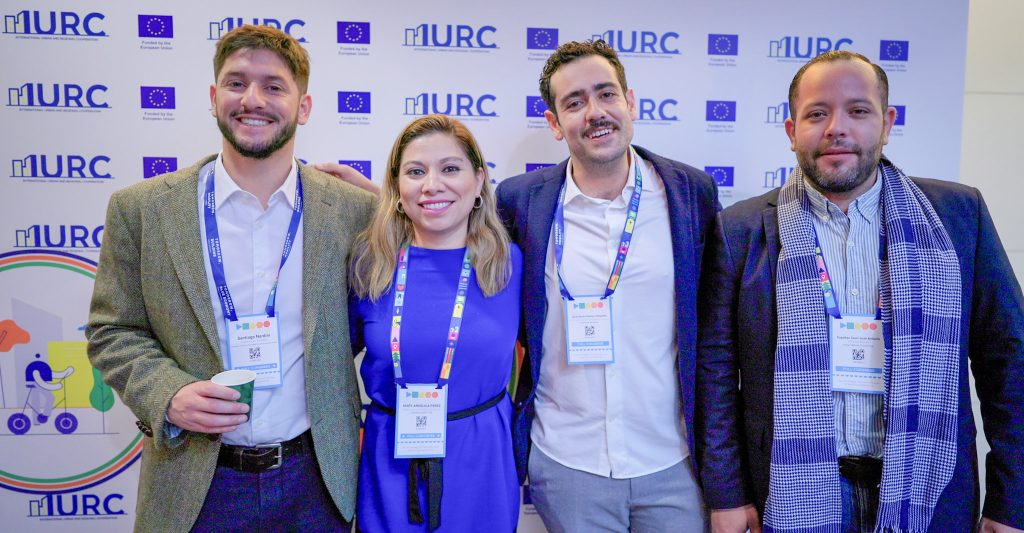
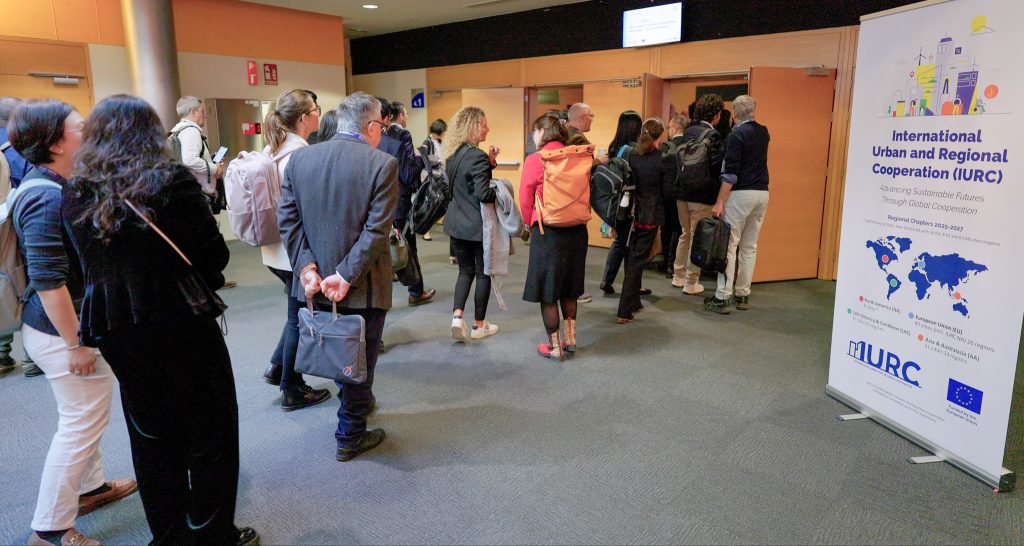
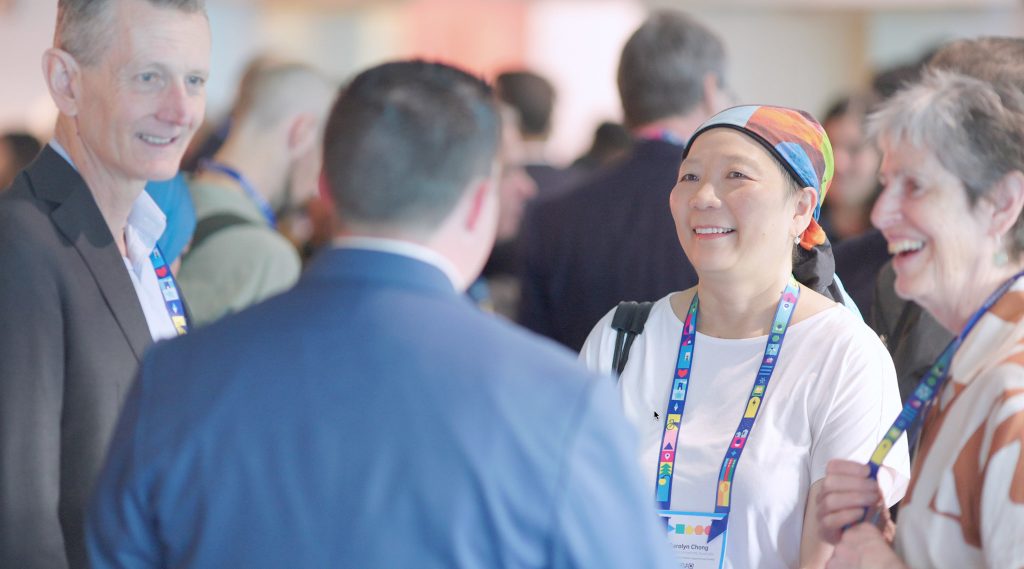
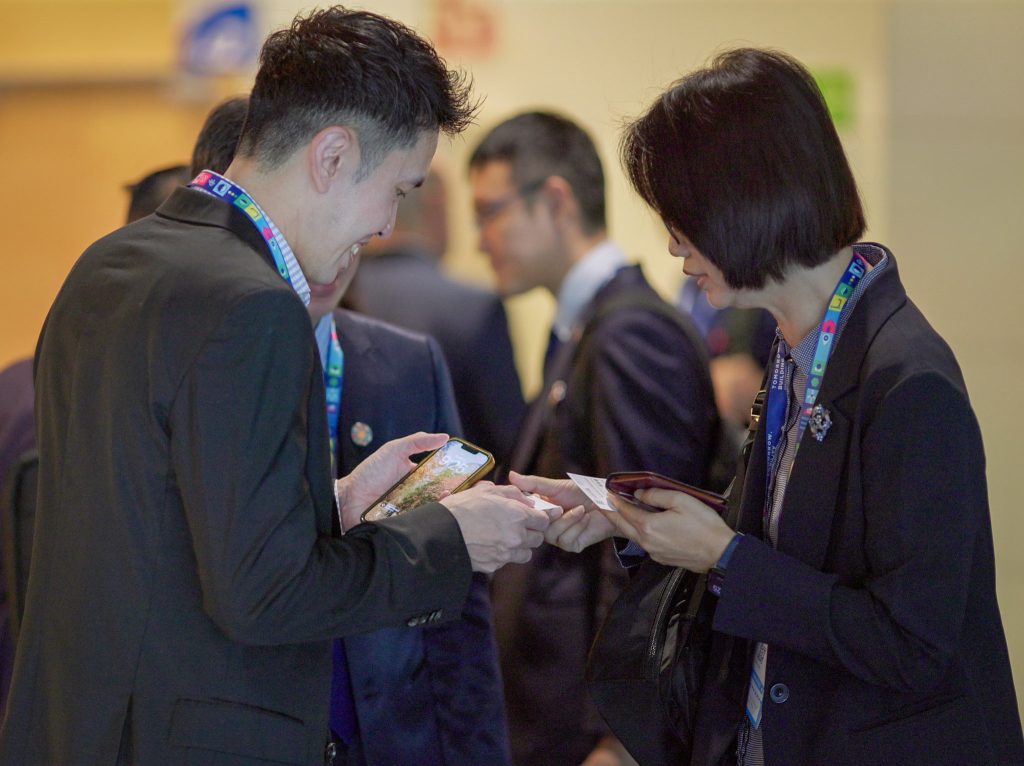
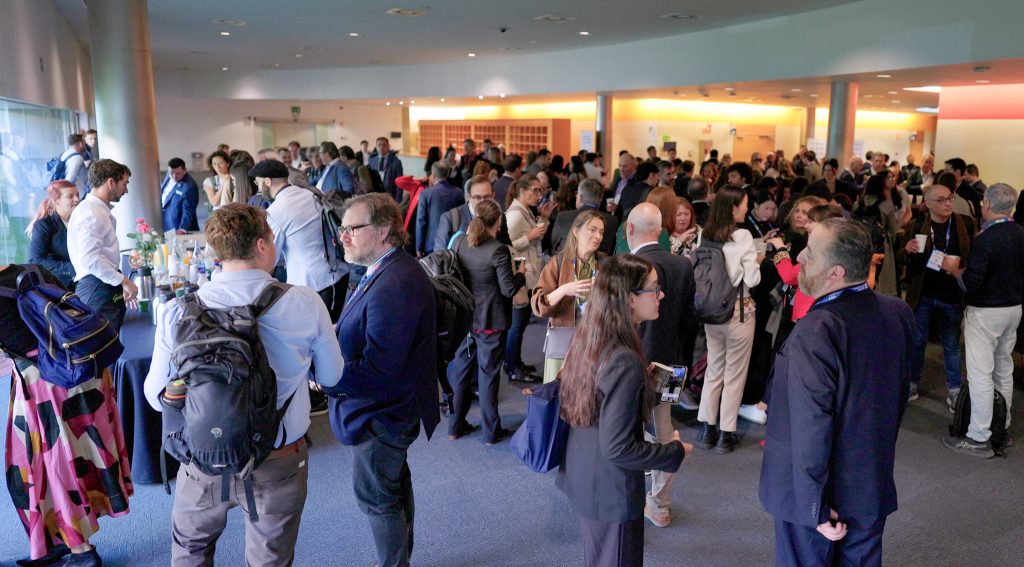
Thematic Breakout Sessions
Following the plenary, delegates participated in 14 breakout sessions across IURC’s thematic clusters and special sessions:
- Urban Innovation
- Industrial Modernisation
- Circular Economy
- Clean Energy
- Blue Economy
- Strategic Sectors
- Agri-Food Systems
- Climate Adaptation & Resilience
- Urban Regeneration,
- Mobility & Transport
- Social Cohesion/Affordable Housing
- International Engagement
- Business Engagement (2 parallel sessions)
The breakout sessions were the core working element of Day 1 (Tuesday, 4 November 2025) of the IURC Global Thematic Networking Event. They were designed to enable cities and regions from around the world to meet in small, interactive groups — some with pre-defined topics and some on a rotating, “World Café style” — to exchange knowledge, identify joint priorities, and shape new pilot cooperation projects under IURC’s 2025–2027 framework.
Each session grouped participants according to their thematic cluster, either:
- City-to-City (C2C) – focusing on urban policy issues such as mobility, innovation, circular economy, and social cohesion; or
- Region-to-Region (R2R) – focusing on territorial, industrial, and economic development themes such as clean energy, industrial modernization, agri-food, and blue economy; or
- Cities and Regions (C&R) – cross-cutting sessions on business engagement and international partnerships.
The Sessions‘ Overview:
| Room / Time Slot | Thematic Focus | Key Discussion Topics / Sub-Tables |
|---|---|---|
| Room 4.2 | Mobility & Transport, Urban Innovation, Strategic Sectors, Agri-Food, Business Engagement | e-mobility, smart logistics, urban innovation ecosystems, sustainable food chains, hydrogen and green technologies, and private sector involvement. |
| Room 4.3 | Clean Energy, Circular Economy, Climate Adaptation, Urban Regeneration, Business Engagement | Hydrogen value chains, renewable energy readiness, just transition strategies, circular materials, and resilience planning. |
| Room 4.4 | Social Cohesion & Housing, Industrial Modernisation, Blue Economy, International Engagement | Digital and industrial transformation, maritime innovation, and strategies for international engagement and global partnerships. |
Each breakout session was co-led by IURC city and region representatives, encouraging hands-on collaboration and the development of pilot project ideas. Discussions were facilitated by thematic cluster managers from the IURC team, ensuring outputs were captured for future collaboration plans.

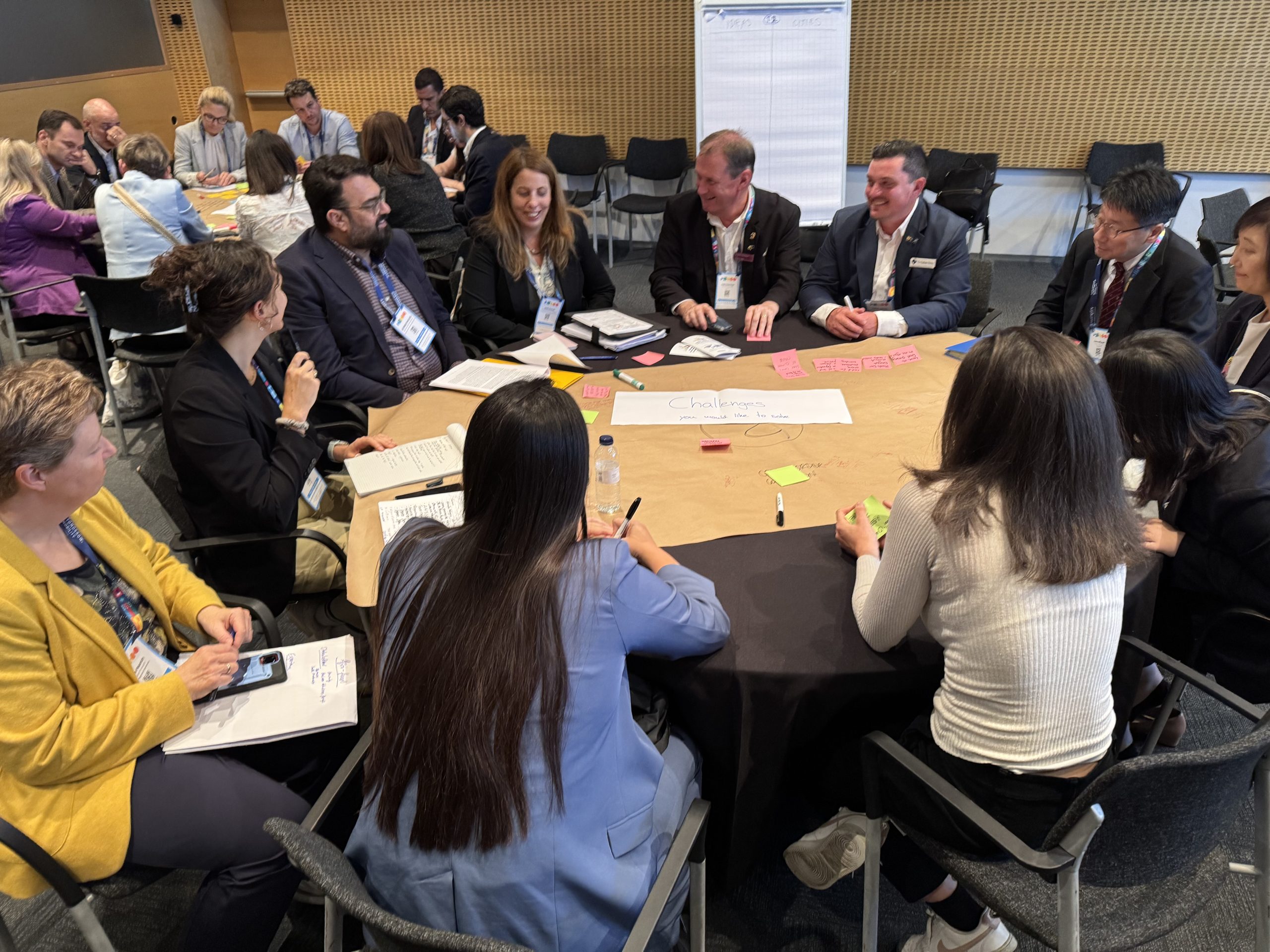
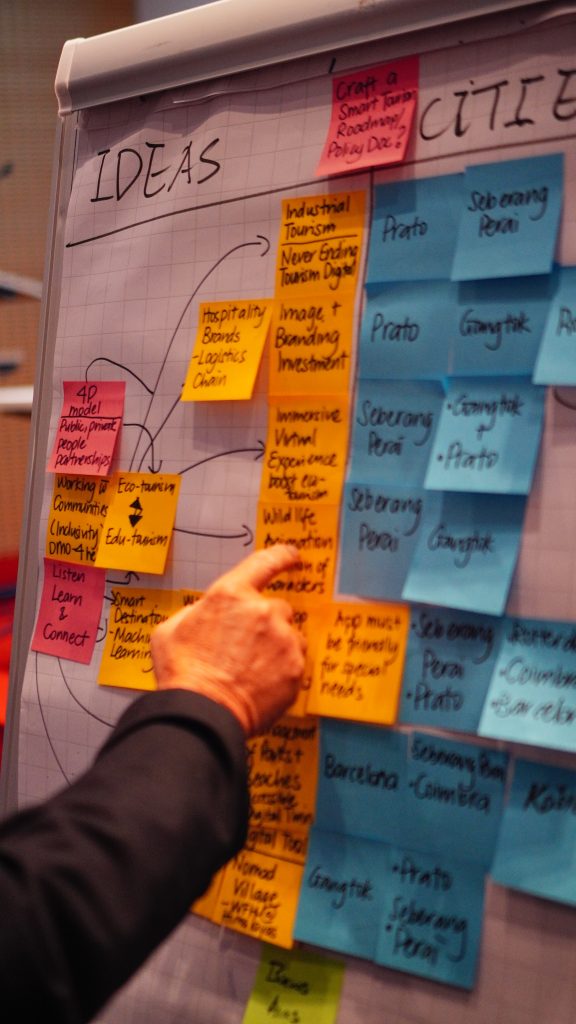

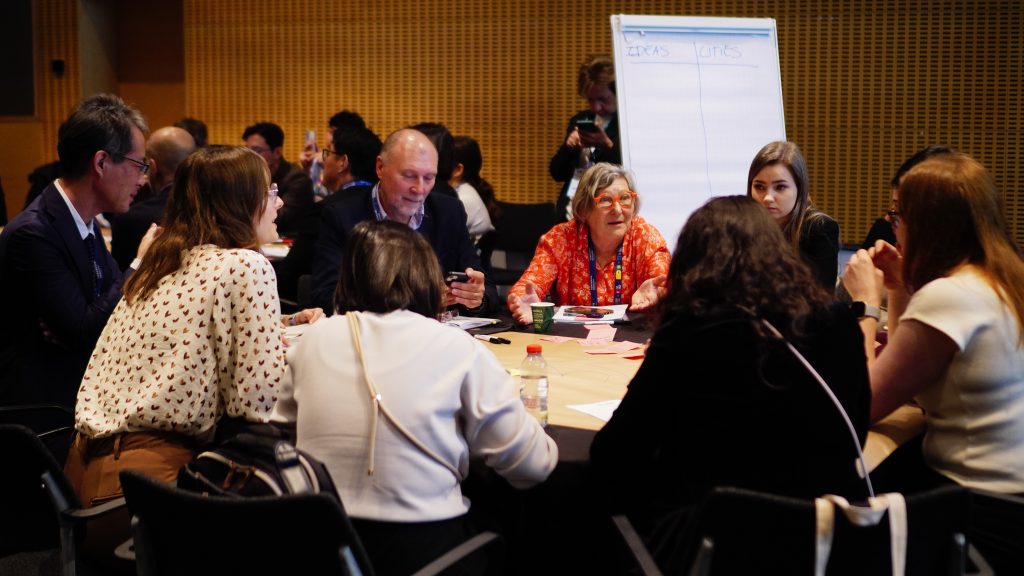

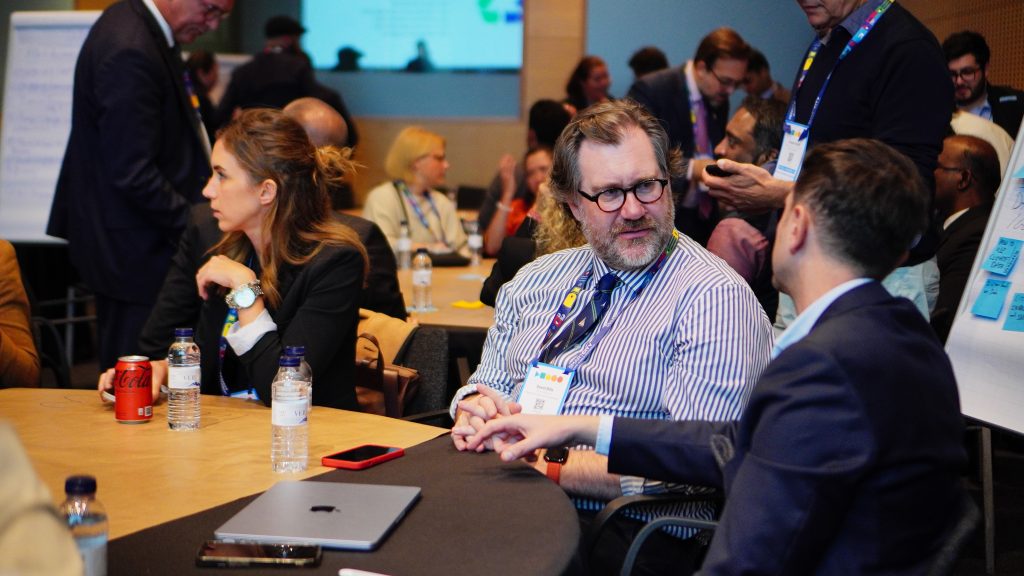
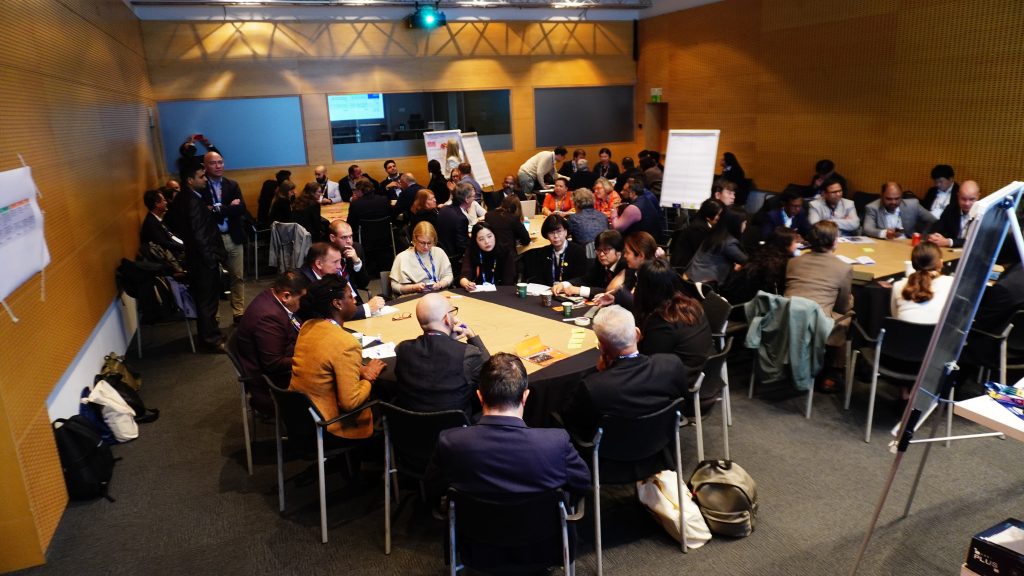
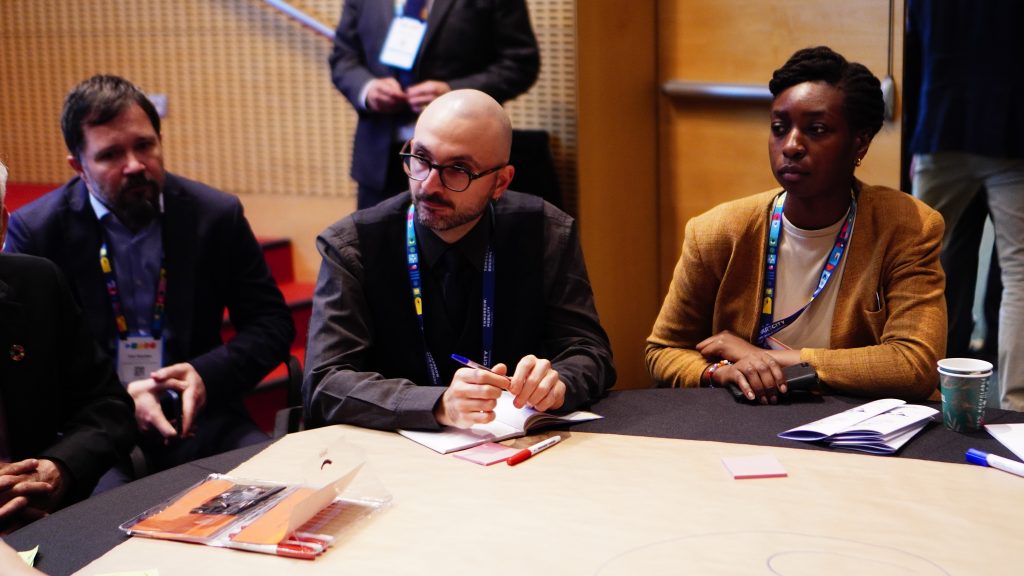
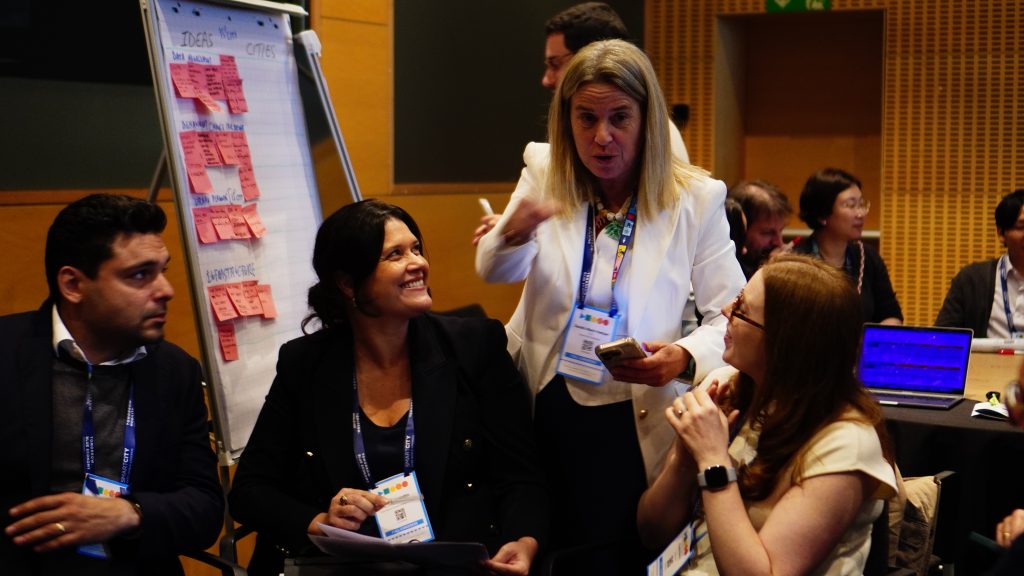
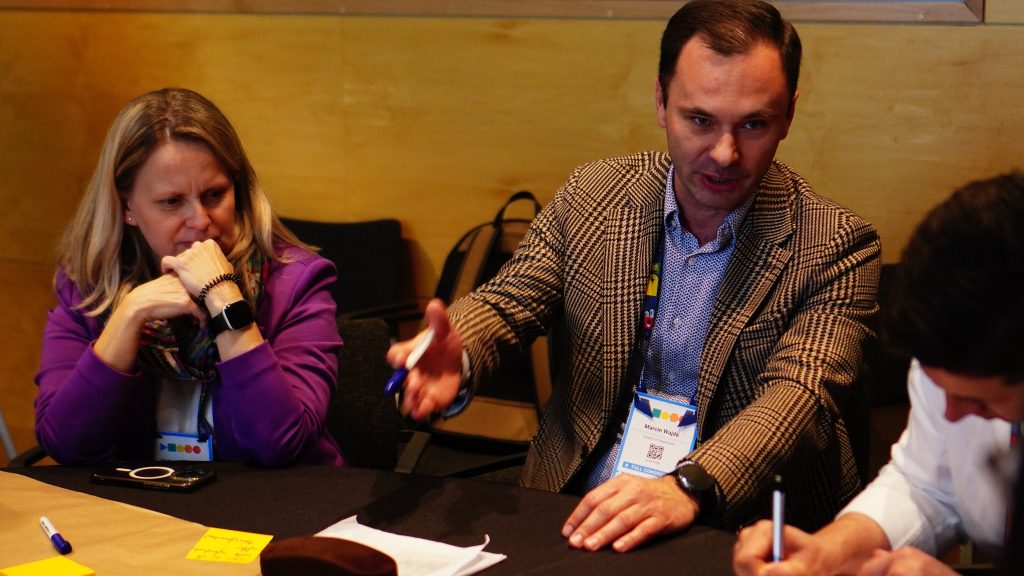
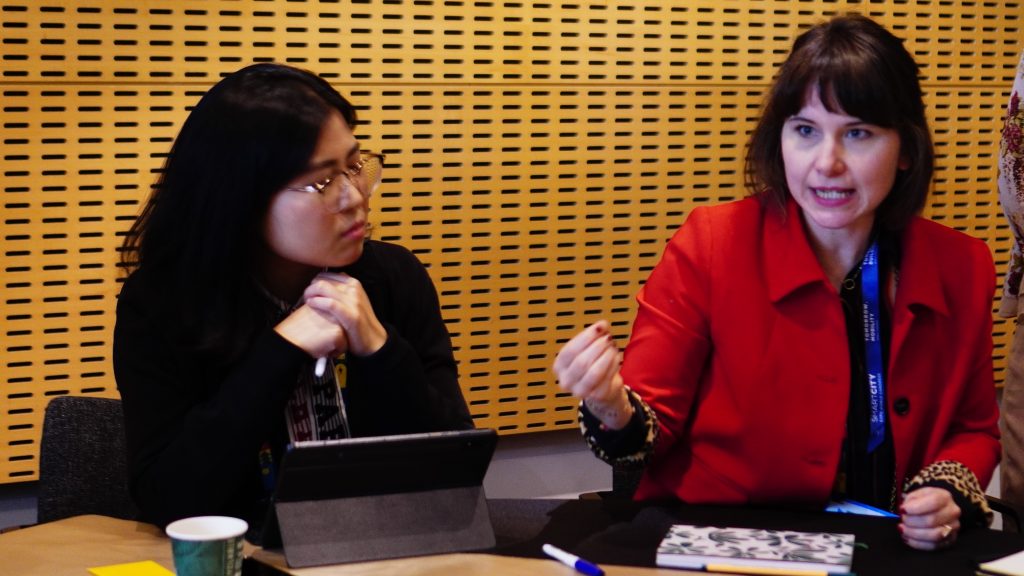
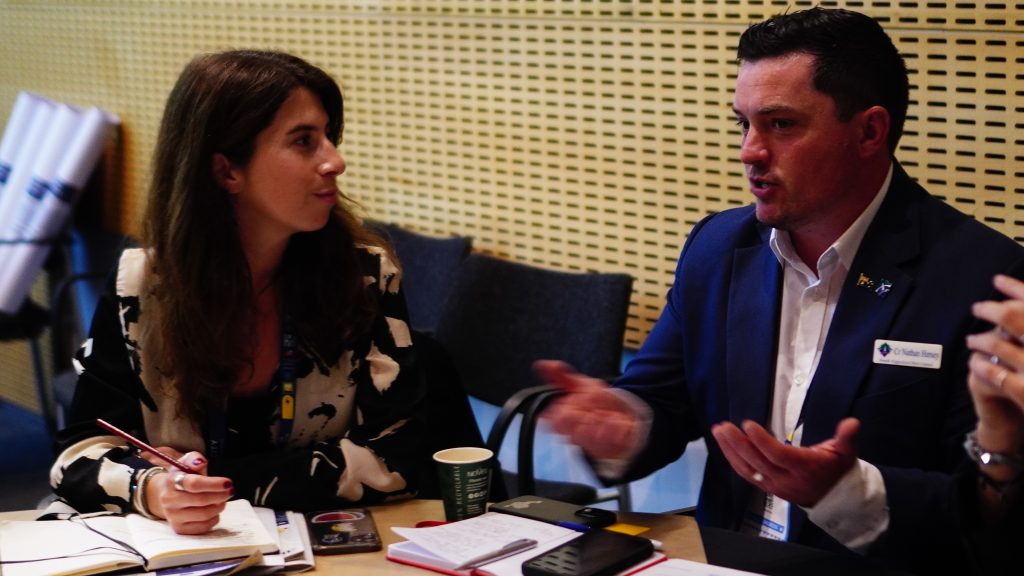
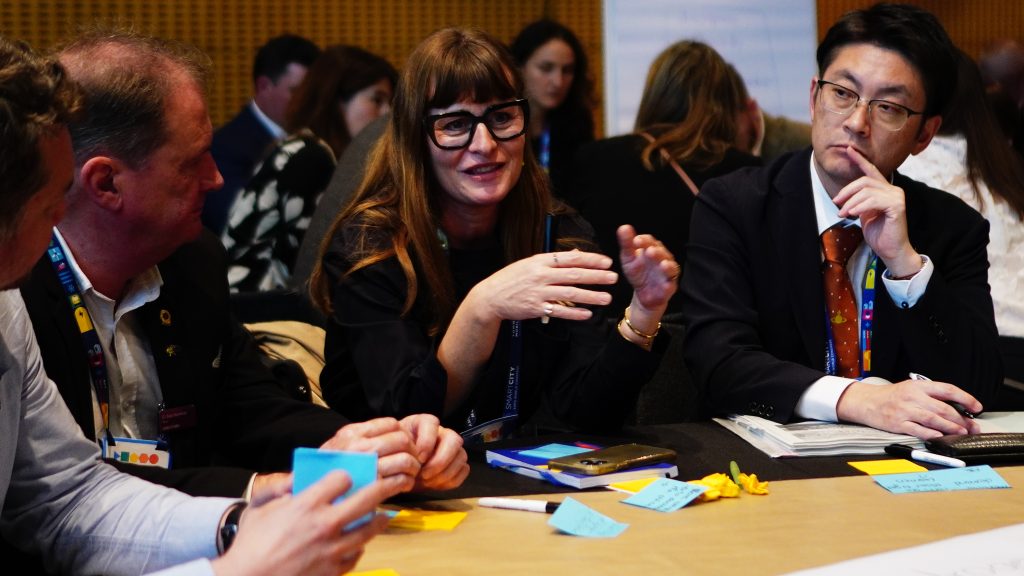
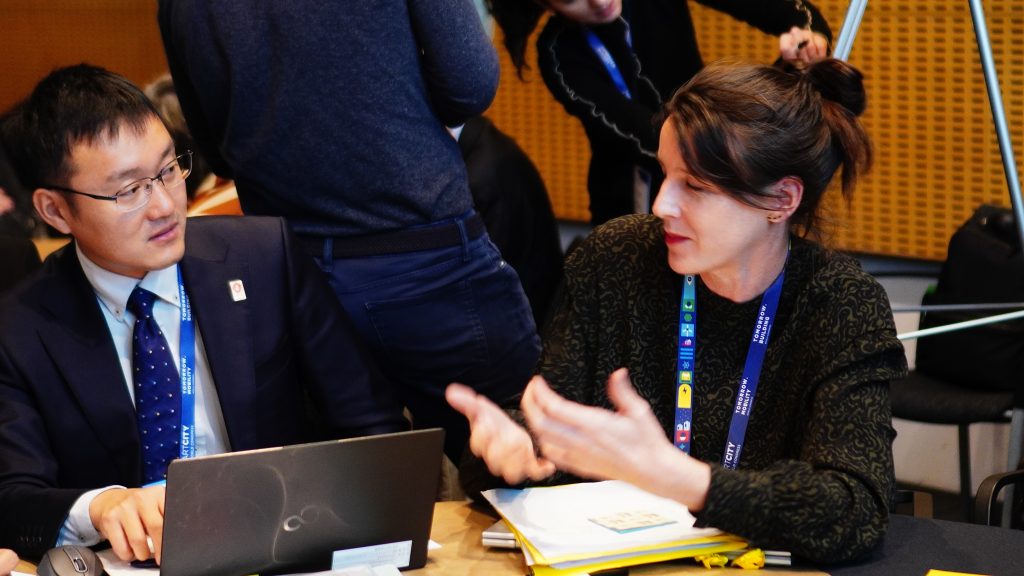
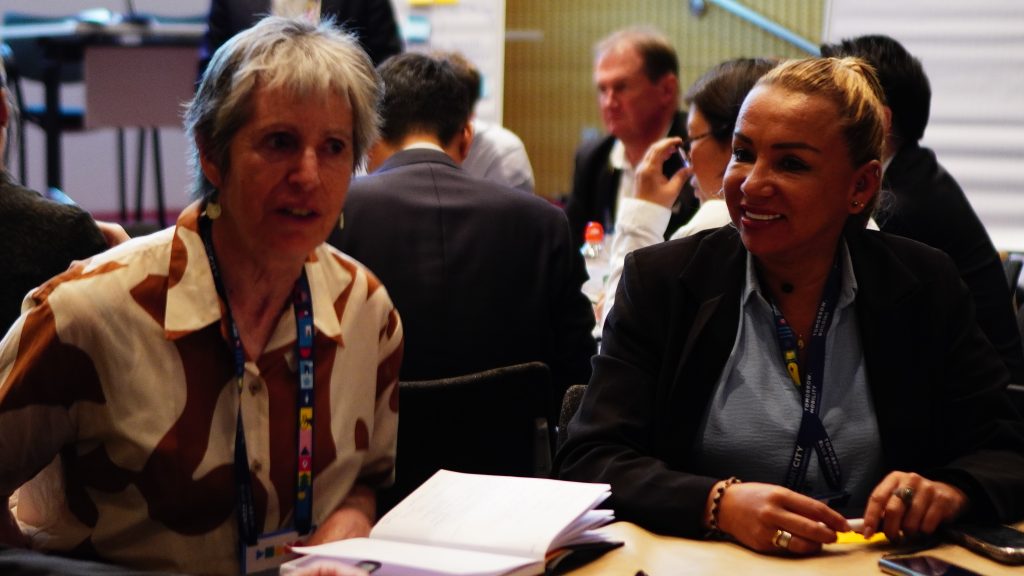
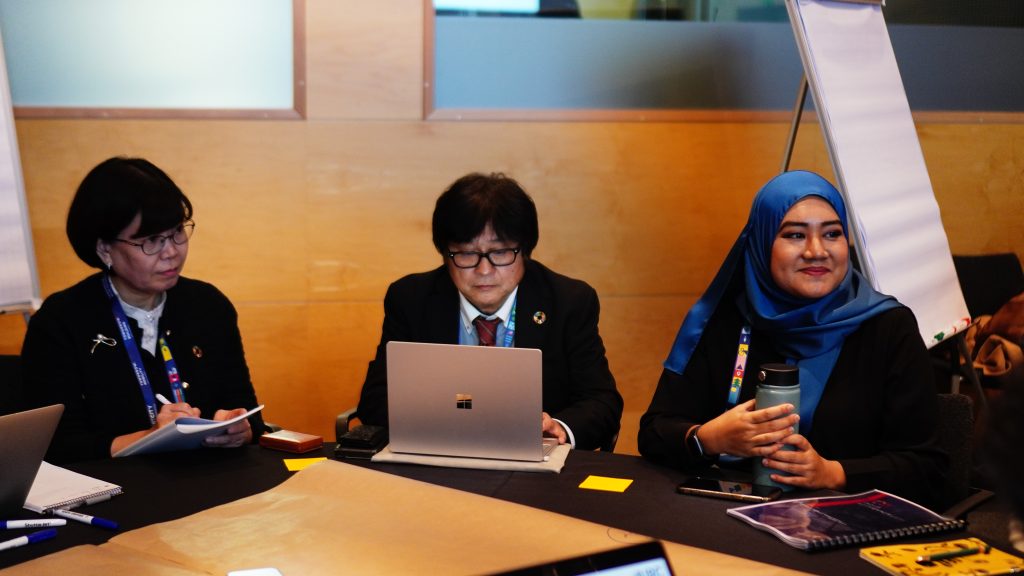
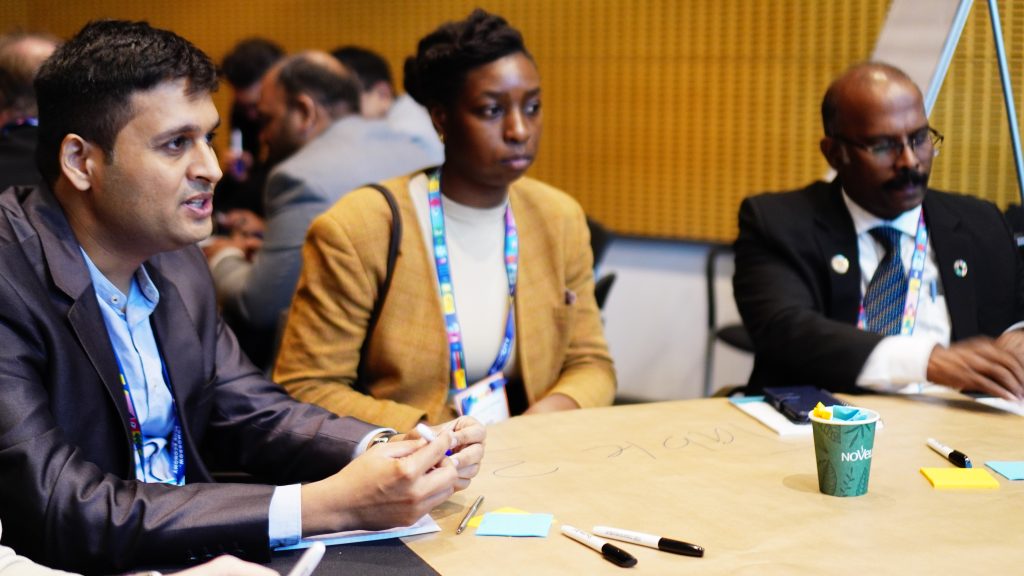
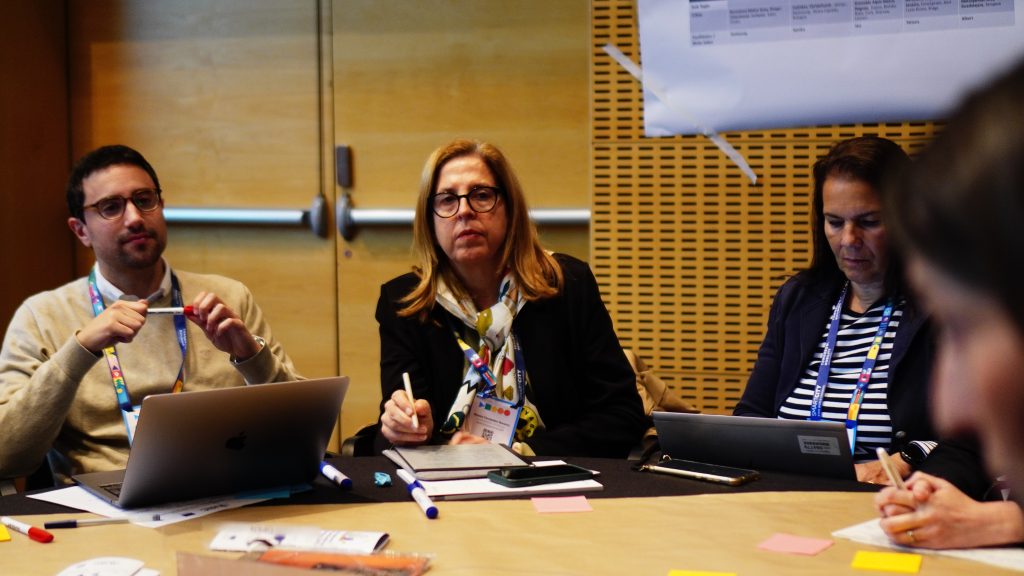
Breakout Sessions for Regions
The region-to-region exchange sessions brought together participants to exchange experiences and identify opportunities for cooperation across several thematic clusters. The discussions highlighted a shared ambition to modernise industries, accelerate digital and green transitions, and address structural challenges in competitiveness, skills, sustainability, and governance.
Across clusters, participants repeatedly emphasised major talent shortages, especially in digital skills, clean industry, and emerging technologies such as AI, hydrogen, and advanced materials. Many regions face brain drain, ageing workforces, and inadequate training systems, revealing a need for coordinated reskilling efforts and stronger links between universities, industry, and vocational education. This skills gap was closely tied to the challenge of integrating innovation into traditional sectors, where limited resources, fragmented governance, and weak collaboration often hinder transformation.
In the industrial modernisation cluster, regions noted widespread societal and regulatory barriers, including misinformation, unclear strategies, and uneven regional capacities. Yet they also recognised strong opportunities in public–private cooperation, improved communication with local communities, and workforce development. Clean industry transitions, they agreed, will require joint strategies, transparent dialogue, and shared models for collaboration.
The clean energy sessions—covering hydrogen and renewable energy readiness—showed broad interest from regions working on hydrogen valleys, sustainable aviation fuels, solar-based ecosystems, and circular industrial solutions. Participants stressed the need for multi-level governance, community engagement, retraining for fossil fuel transitions, and the exchange of models linking clean energy with port development, industry, and research.
The blue economy cluster surfaced widespread governance challenges, with fragmented responsibilities, scarce financing at regional level, and competing uses for marine space. Participants highlighted the need for better spatial planning, harmonised standards, and improved coordination across borders. Social acceptance, community benefits, gender inclusion, and evidence-based policymaking were identified as critical factors for successful blue economy development. Several concrete partnerships emerged, including initiatives focused on training, women’s participation, blue economy supply chains, and cross-regional research.
Finally, the agri-food cluster revealed deep structural vulnerabilities—including climate pressures, fragmented production, ageing farmers, and weak value chains. Many regions presented promising practices such as regional branding, certification schemes, bioeconomy accelerators, traceability systems, and digital decision-support tools. Cooperation opportunities focused on strengthening local value chains, developing circular and bio-based models, enhancing soil health and climate resilience, supporting SME access to finance, and encouraging youth engagement in food systems.
Cross-cutting areas such as digital transformation and entrepreneurship underscored the structural difficulties faced by SMEs, which often lack cybersecurity preparedness, AI adoption capacity, and access to affordable training. Participants saw great potential in global innovation networks, shared repositories of good practices, and common governance frameworks for incubators and technology parks. Strengthening industry–academia collaboration was considered essential to narrow the gap between research and market needs.
On global value chains, regions expressed concern about lacking infrastructure, financing, and international partners, as well as uneven adoption of circular economy practices. Still, they identified a range of opportunities to build more resilient, transparent, and sustainable value chains—especially through clusters, public–private partnerships, rural innovation spaces, and quality standards that help regions compete globally.
Emerging sectors such as AI, aerospace, and green technologies were seen as areas of enormous potential but also significant vulnerability. Participants pointed to limited integration of advanced technologies, restricted access to funding, and barriers for smaller players. Cooperation strategies centred on reskilling, technology transfer, SME digitalisation, and attracting investment through robust innovation ecosystems.
Across all clusters, a strong consensus emerged: regions need integrated, multi-sector strategies that connect skills, innovation, sustainability, and governance. Participants expressed a clear desire for joint pilot projects, knowledge-sharing platforms, and long-term partnerships to drive industrial, digital, and green transitions. The event succeeded in identifying tangible cooperation pathways and building momentum for a more coordinated and resilient regional development agenda.
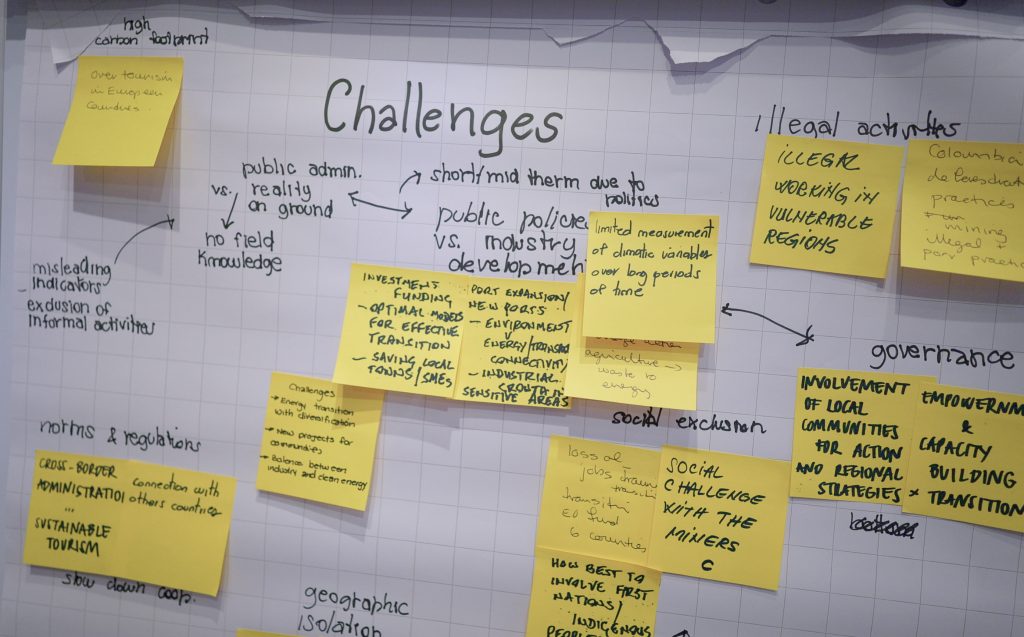
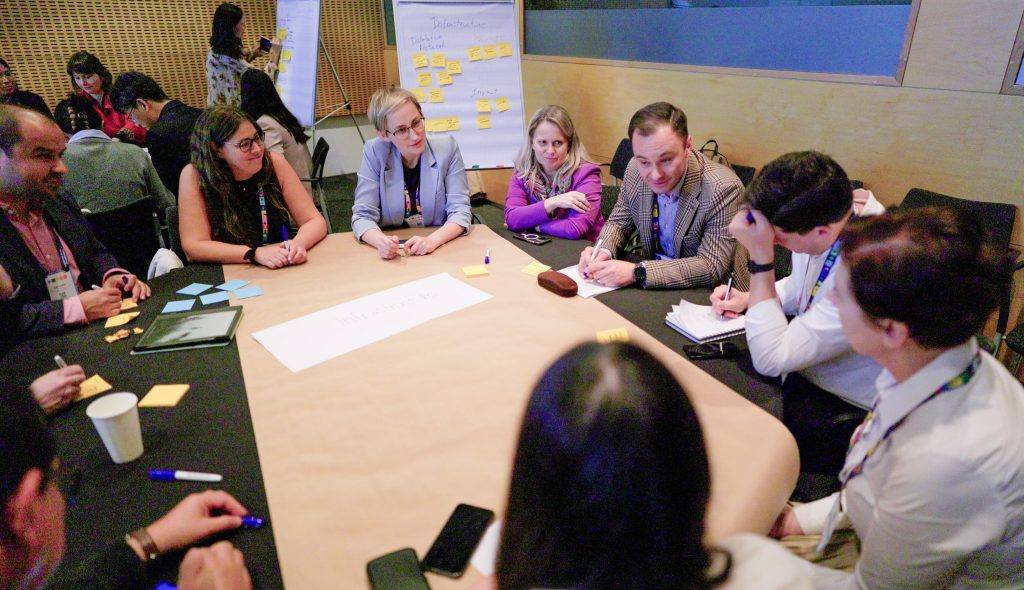
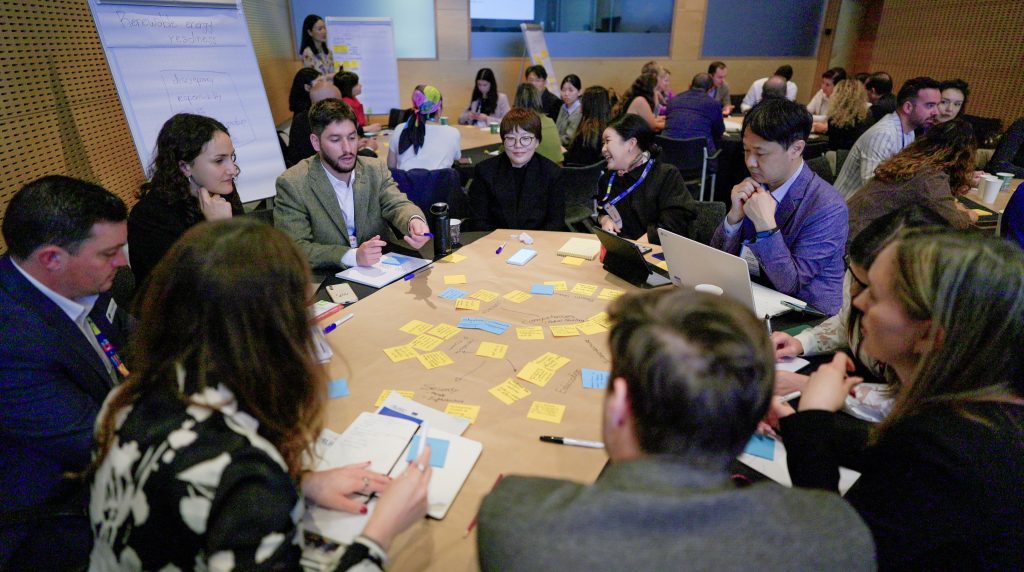
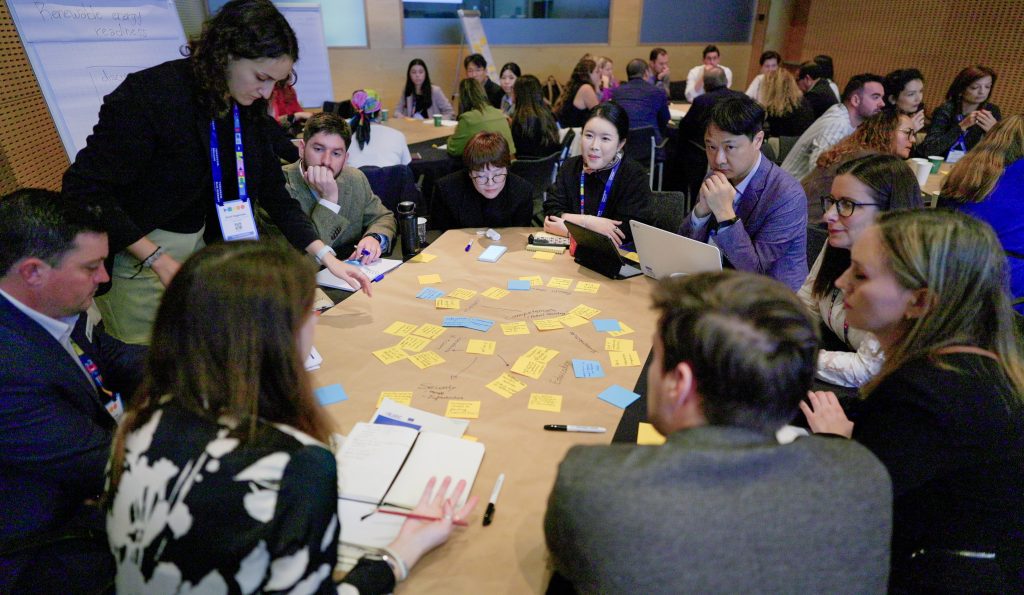
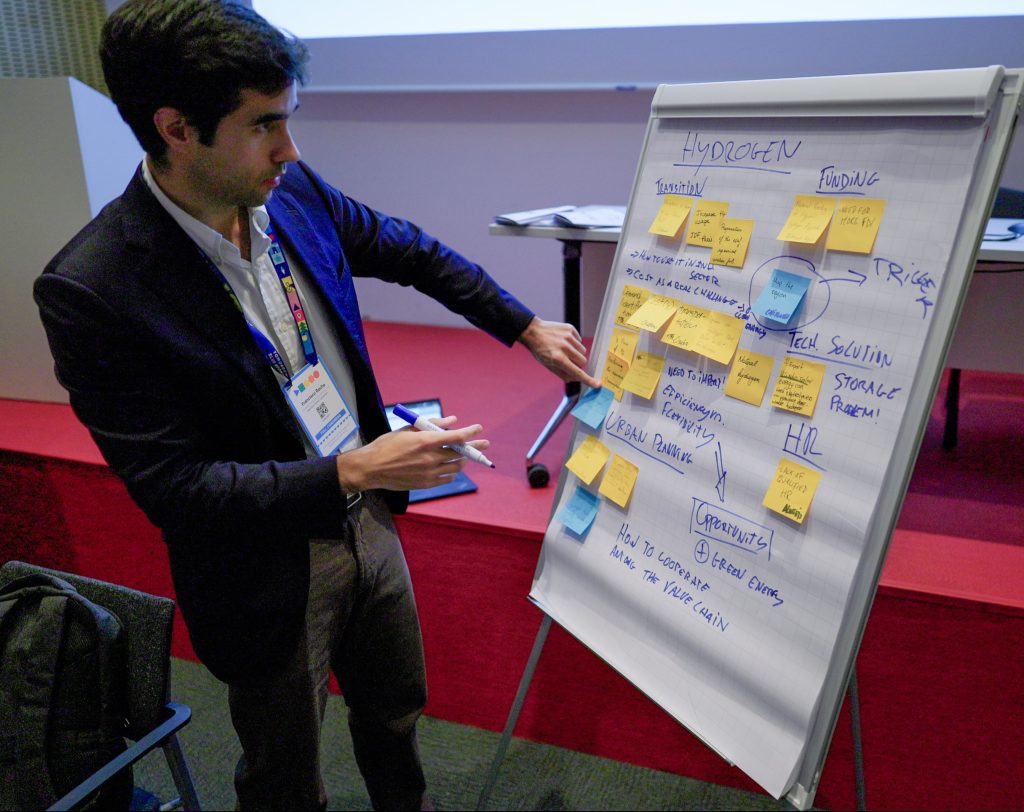
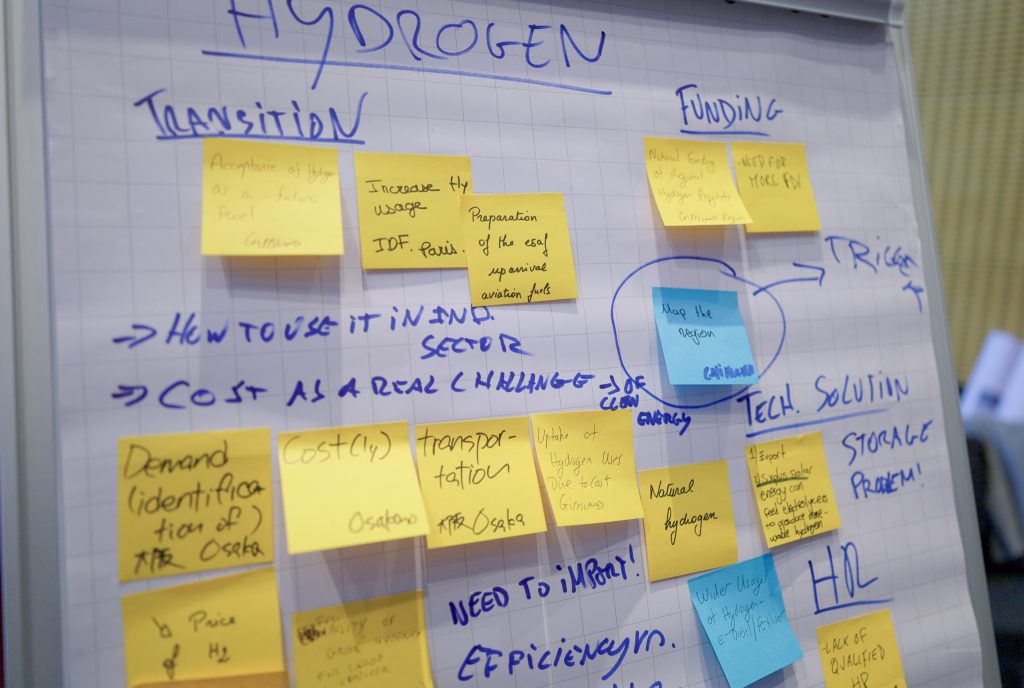
Breakout Sessions for Cities
The cities’ breakout sessions served as a practical platform for international dialogue, bringing together city representatives from Europe, Latin America and the Caribbean, and Asia–Australasia. Designed as a collaborative brainstorming exercise, the sessions allowed participants to explore urban challenges within seven thematic clusters, i.e. mobility, social cohesion and housing, urban innovation, circular economy, strategic sectors, climate adaptation, and urban regeneration. Across these diverse themes, cities identified common priorities, exchanged practical experiences, and began shaping the foundations for future cooperation.
In the mobility and transport cluster, cities discussed how to create more accessible, efficient, and low-emission urban mobility systems. Cooperation ideas ranged from 15-minute city strategies and improved public transport integration to smart mobility technologies, logistics optimisation, and inclusive infrastructure planning. The discussions reflected a strong shared commitment to multimodal, sustainable transport models that reduce emissions while improving everyday accessibility.
The urban innovation cluster examined how digital transformation, ethical data use, and collaborative ecosystems can improve governance and public services. Participants discussed living labs, innovation hubs, digital governance frameworks, and the role of startups and universities in developing solutions. There was strong interest in improving data platforms, testing innovative building materials, and strengthening talent development.
The strategic sectors group explored how culture, tourism, and events can support economic development and city branding. Cities proposed digital visitor platforms, smart tourism tools, impact-measurement frameworks for festivals, and networks to strengthen night-time economies while improving safety and inclusivity.
In the circular economy sessions, cities exchanged strategies for reducing waste, designing circular food systems, and establishing research and innovation partnerships. Several cooperation ideas emerged around shared circular innovation labs, digital tools for waste and water management, reuse and repair systems, and educational initiatives involving schools and supermarkets.
The climate adaptation cluster reflected rising global concern over environmental risks, with cities discussing coastal resilience, nature-based solutions, climate data governance, AI-supported heat and flood mapping, and community engagement. Many cities expressed interest in shared data platforms, climate risk visualisation tools, and pilot projects involving blue-green infrastructure.
The social cohesion and housing group focused on affordability, land use, and community-centered development. Cities explored comparative housing models, zoning strategies, adaptive reuse, and inclusive urban development approaches. Many emphasized the need for accessible housing policies that also strengthen social ties, cultural participation, and equitable access to services.
Urban regeneration discussions focused on revitalising public spaces, improving heritage preservation, strengthening participation, and integrating renewable energy and green infrastructure into new and existing districts. Cities shared examples of adaptive reuse, positive energy districts, and long-term electrification strategies, highlighting regeneration as a cross-cutting approach that links environmental, social, and cultural objectives.
Across all seven clusters, several themes consistently surfaced: the growing importance of digital governance, the centrality of citizen participation, the need for green and nature-based solutions, and the role of culture and heritage in community identity and economic development.
In total, the sessions involved 220+ city/region delegates (including some pilot cities/regions that brought more than one participant) across all clusters and sub-themes. As a next step, these ideas will be refined into cooperation action plans and joint roadmaps, forming the basis for communities of practice within the IURC network
One of the most remarkable outcomes of the breakout sessions was the global and interregional perspective achieved through the participation of cities and regions from Europe, Latin America and the Caribbean (LAC), and Asia & Australasia (AA). This diversity strengthened the IURC’s global approach, linking a strategic territorial planning perspective with on-the-ground implementation.

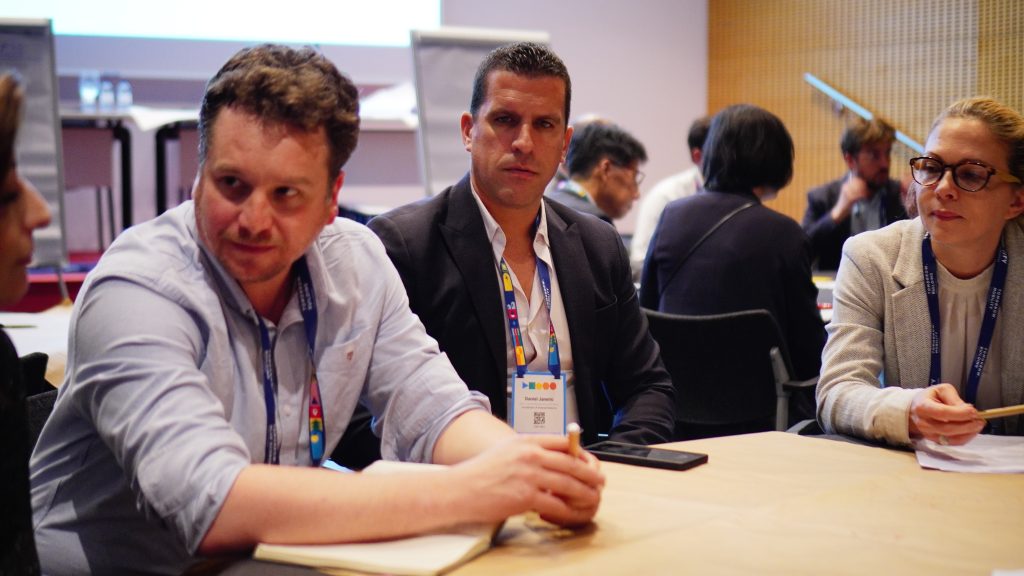
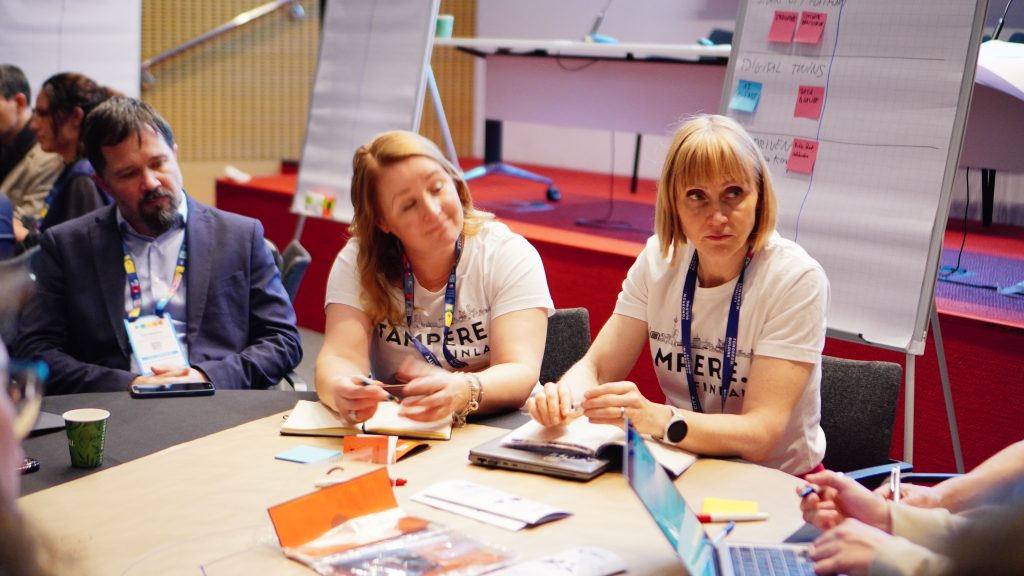
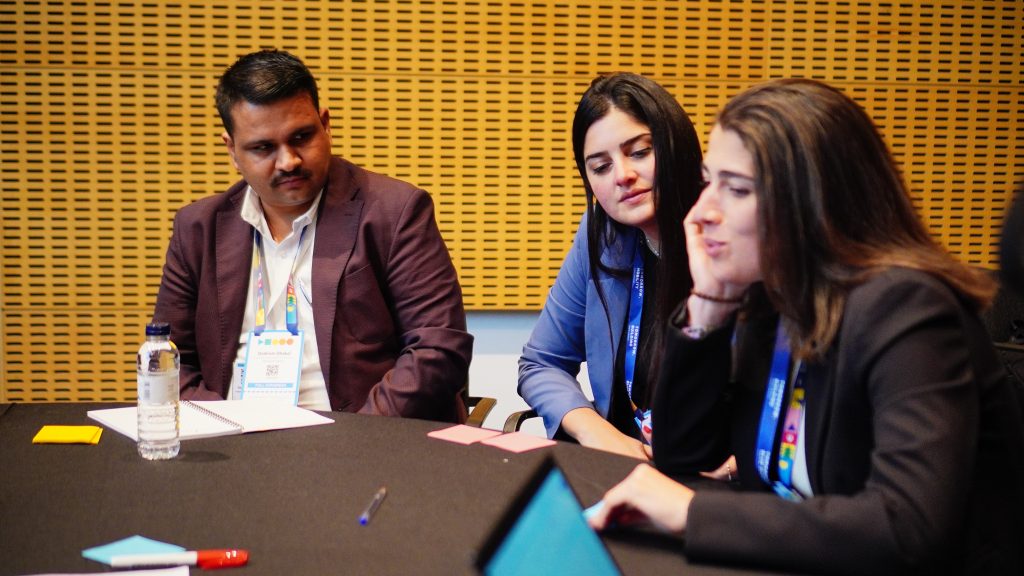
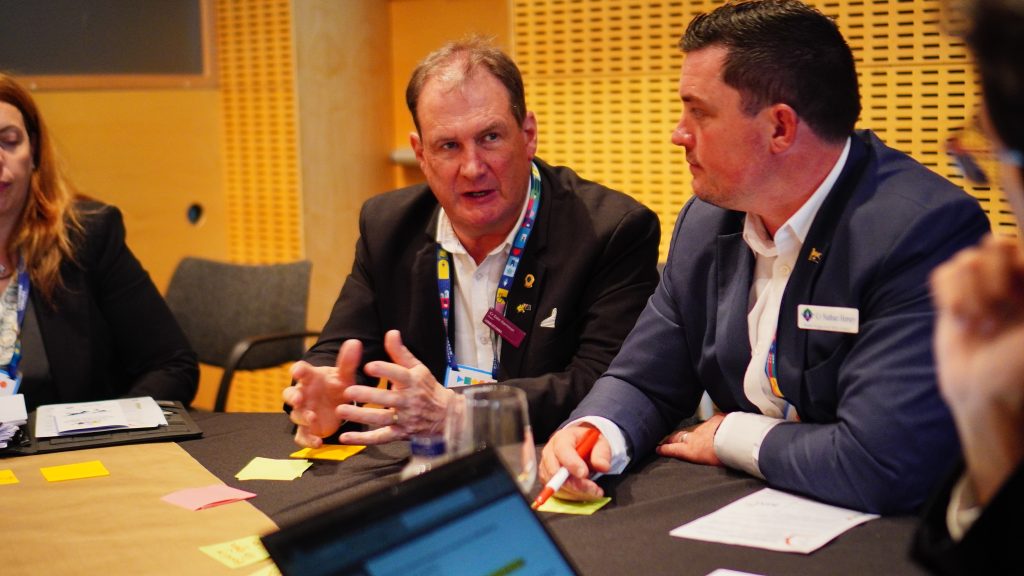
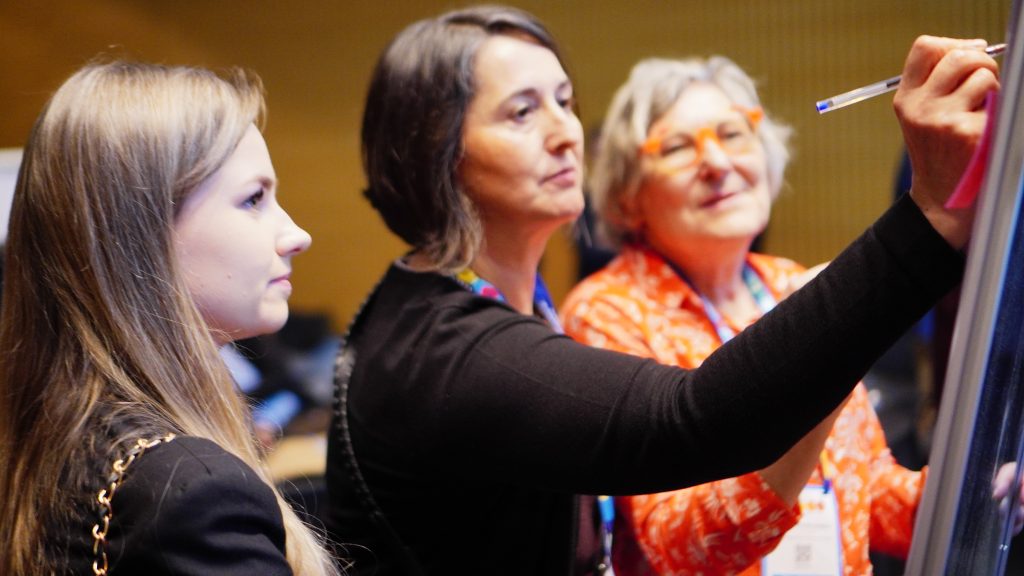
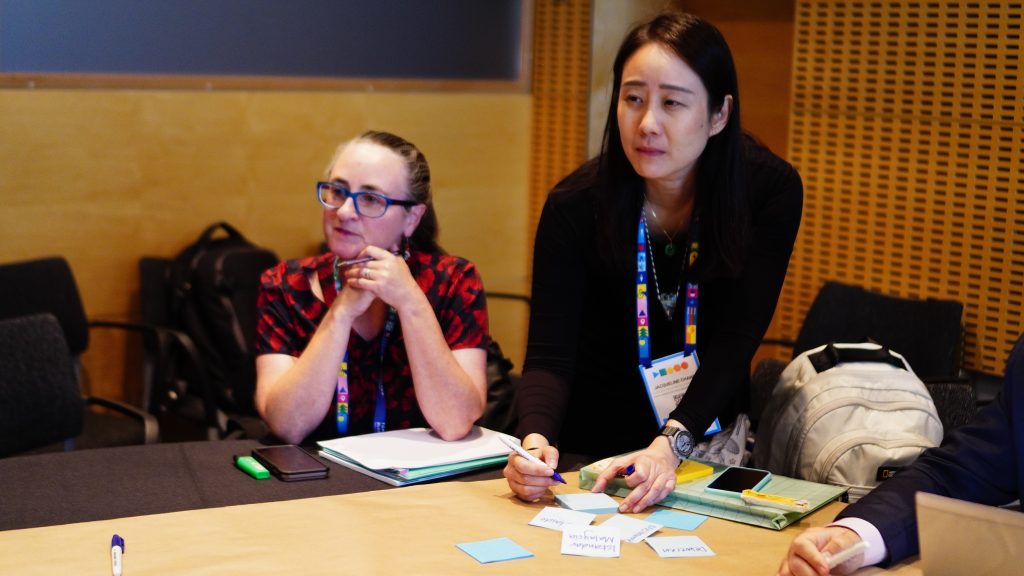
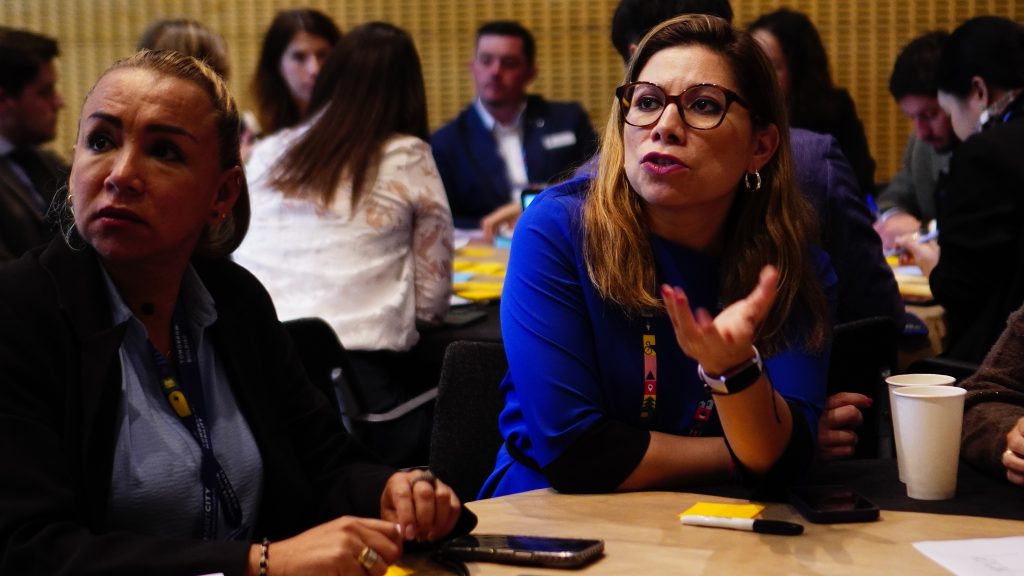
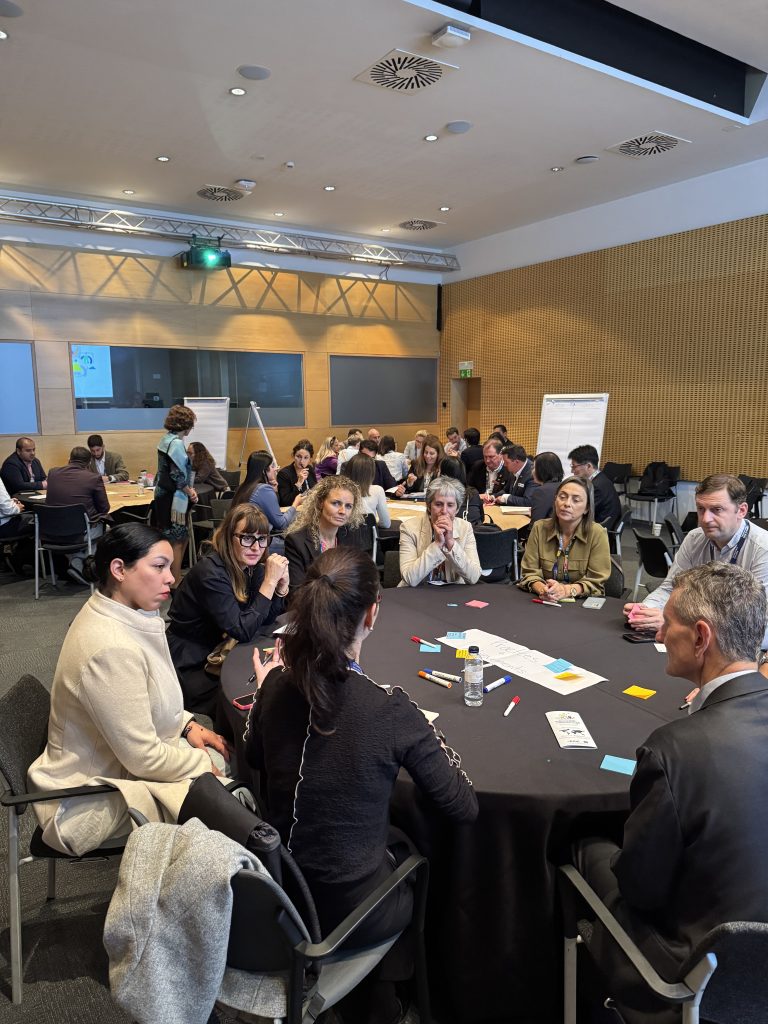
Special Session on International Engagement
The workshop on Strategic International Engagement of Local and Regional Authorities, brought together European cities, regions, and international networks to explore how local governments can strengthen their role in global cooperation. Building on a previous EU-focused webinar, the session examined both the strategic foundations and the practical realities of decentralised, subnational cooperation. The insights gathered may feed a possible new Community of Practice, supported by a forthcoming survey targeting EU cities.
In the first part of the session, several local and regional representatives shared their experiences. Bologna presented its structured Strategic Plan for International and European Action, which embeds international relations across municipal policies, emphasising accountability, annual monitoring, and a strong governance framework. Barcelona showcased its Asia Strategy, a long-term roadmap guiding the city’s growing engagement with East and Southeast Asia, anchored in political continuity, economic promotion, and thematic priorities such as mobility, climate, and digital innovation. Metropolis highlighted the value of city networks in connecting municipalities across continents and providing training, peer learning, and practical collaboration through “Solution Labs.” EUROCITIES complemented these perspectives by stressing the need to professionalise international relations within city administrations, underlining that impactful international engagement requires strategic vision, institutional capacity, and clear political mandates.
These presentations were followed by a brief contribution by Juan Prat i Coll, a highly distinguished Spanish Ambassador, who managed the European Commission’s DG RELEX in the 1990s and represented Catalonia to the European Union in Brussels. Ambassador Prat i Coll underlined the growing geopolitical relevance of local and regional governments in today’s interconnected political context and called participants to contribute to global governance.
The second part of the workshop consisted of interactive group discussions. Participants worked on four guiding questions, identifying key lessons on multilevel governance, priorities for cooperation, barriers to collaboration, and indicators for measuring impact. The discussions pointed to the importance of coherent coordination between EU, national, and local levels, showing how alignment with national foreign-policy objectives and EU frameworks is essential. Participants stressed that thematic networks, peer-learning platforms, and multi-level governance mechanisms like the Urban Agenda for the EU provide useful models for structured cooperation.
Cities and regions’ delegates agreed that their main priorities for decentralized cooperation include economic development, innovation, climate and energy transition, digital transformation, social inclusion, and capacity building for municipal staff. However, numerous challenges persist: constraints imposed by national governments, political turnover, resource limitations, geographic and cultural distances, and the difficulty of selecting appropriate international partners. Participants also noted the need to better communicate the concrete benefits of international action to citizens and elected officials.
Finally, the groups proposed several indicators to assess the impact of international engagement, including the number and quality of partnerships, the diversity of stakeholders involved, funding leveraged, visibility through international events, and the adoption of new policies or innovations inspired by global cooperation.
Overall, the workshop demonstrated a growing interest among cities and regions for more structured, strategic, and outcome-oriented international engagement. The insights gathered will guide the next phase of work as the IURC programme develops its Community of Practice and supports pilot cities and regions in strengthening their international engagement capacity and global partnerships.
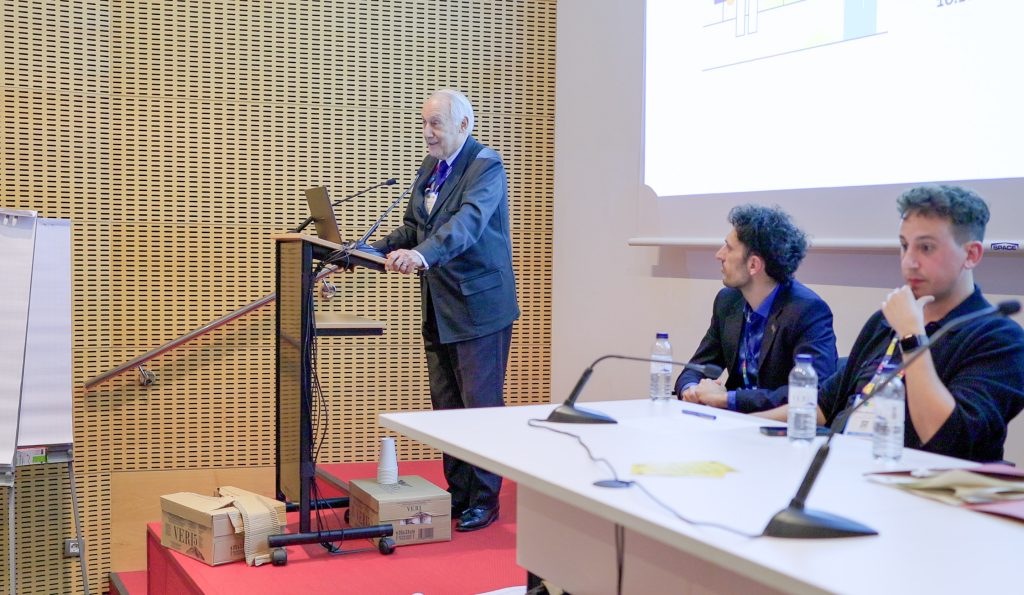
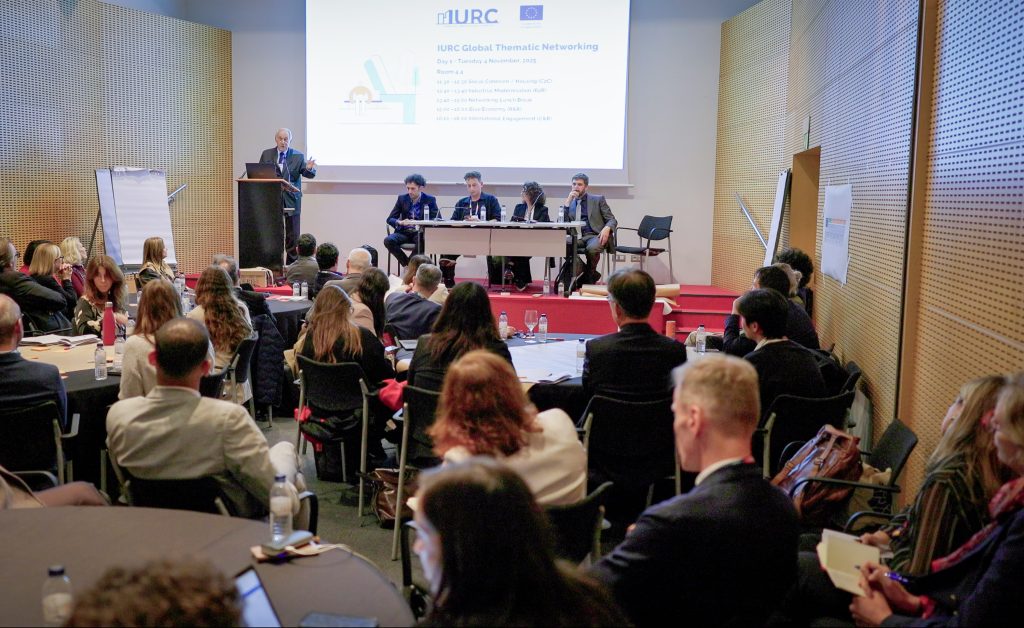
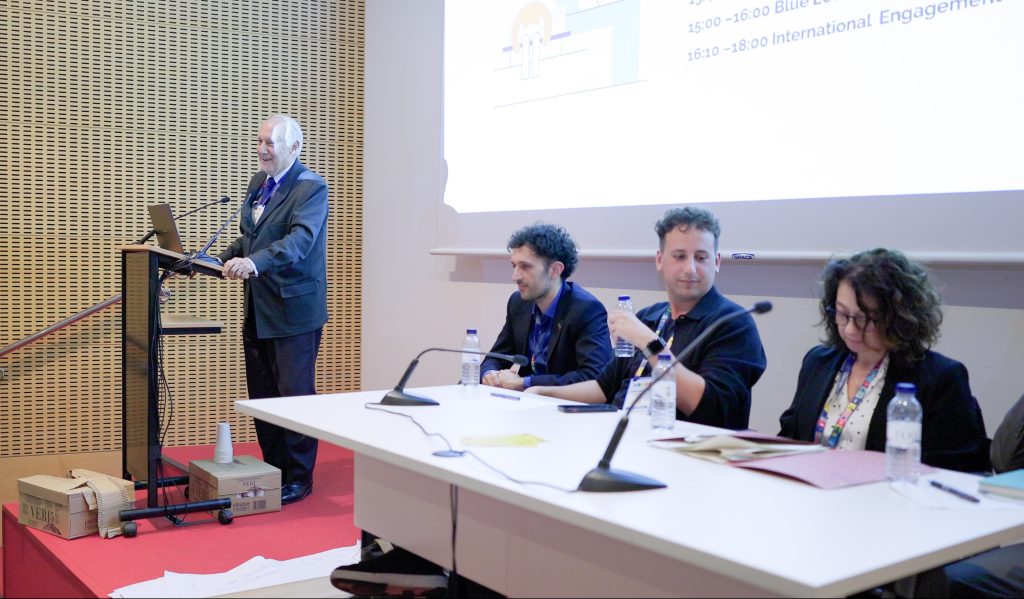
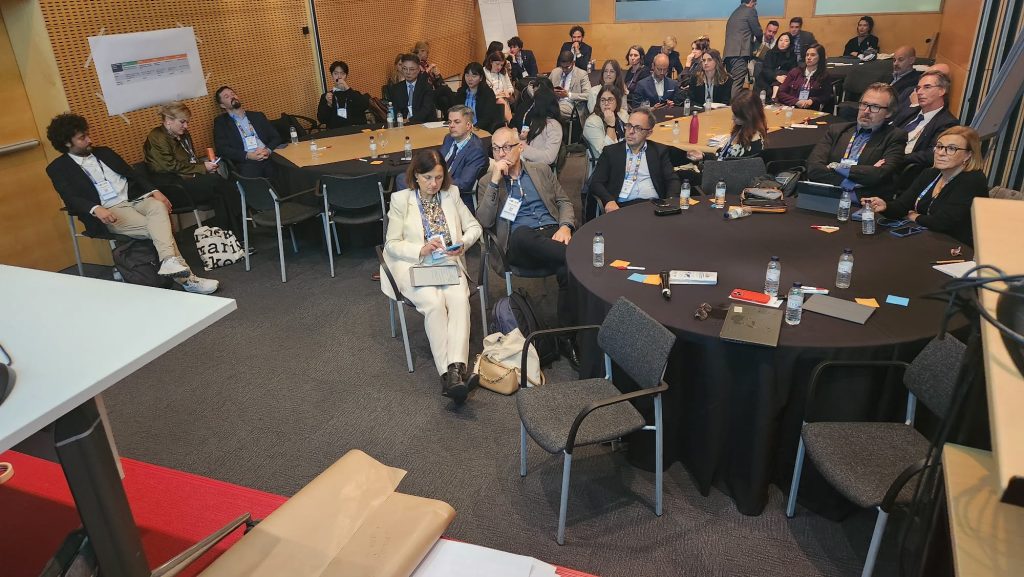
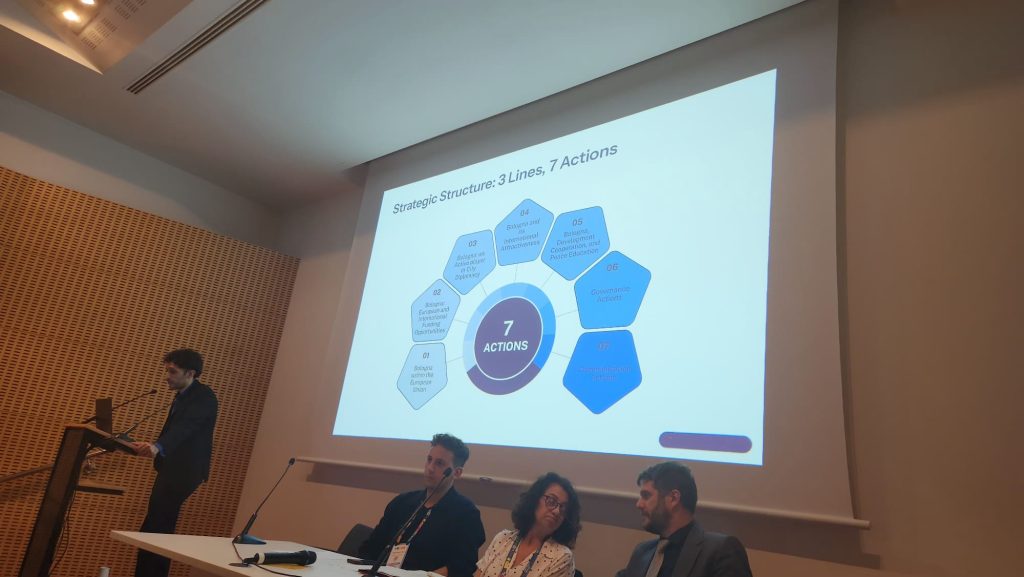
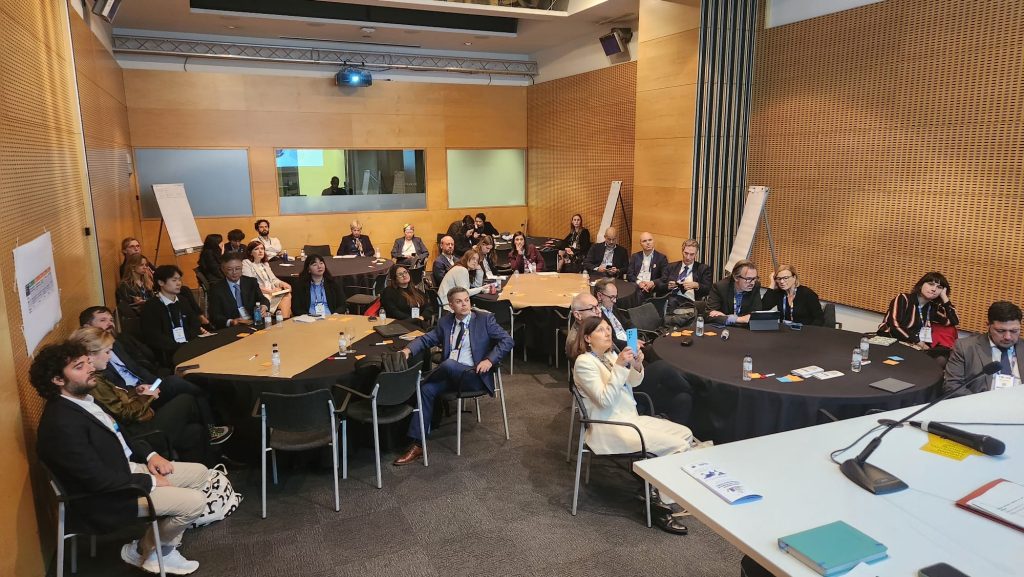
IURC Business Engagement Sessions
The business engagement parallel sessions marked an important step in strengthening cooperation between cities, regions, and the private sector within the IURC programme. Co-organised by IURC and the Global Covenant of Mayors (GCoM), the sessions aimed to connect urban challenges with innovative European technologies, following a quadruple-helix approach that involves government, business, academia, and civil society.
The two parallel business engagement sessions involved ten European companies presenting solutions in areas such as mobility, renewable energy, circular construction, nature-based solutions, waste and water management, and digital monitoring. Several presentations showcased concrete achievements from previous IURC–GCoM matchmaking efforts — including smart parking in India, floating urban infrastructure in Belize, biogas solutions in Africa, climate-adaptive schools in Chile, and water pollution prevention in Bangkok. New cooperation leads also emerged with multiple IURC pilot cities and regions. The exchanges highlighted how EU companies are contributing to climate-neutral urban transitions and demonstrated the value of integrating business matchmaking directly into thematic networking activities.
One of the strongest takeaways was that cities particularly appreciate hearing from companies with real pilot experience under IURC or GCoM. The sessions underscored that structured follow-up — such as feasibility studies, twinning arrangements, and funding support — is essential to maintaining collaboration momentum beyond the Expo.
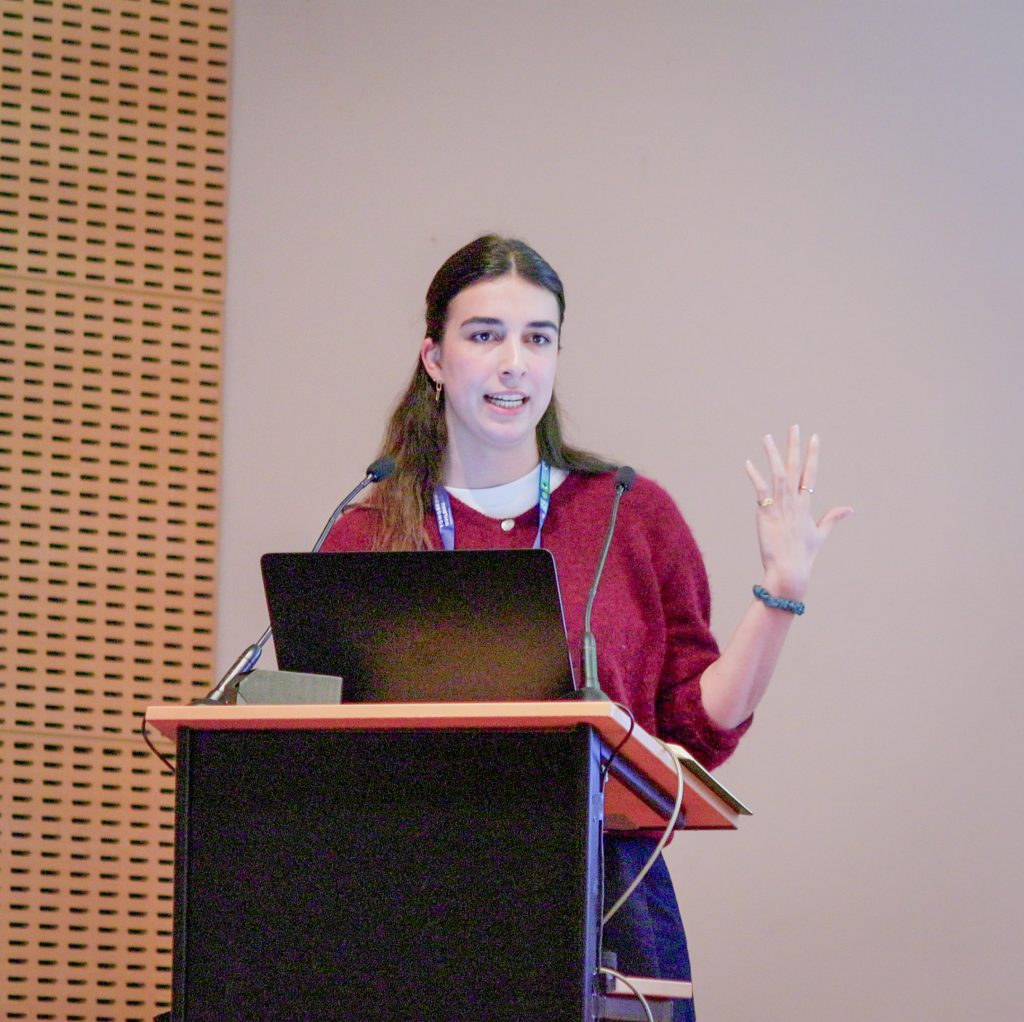
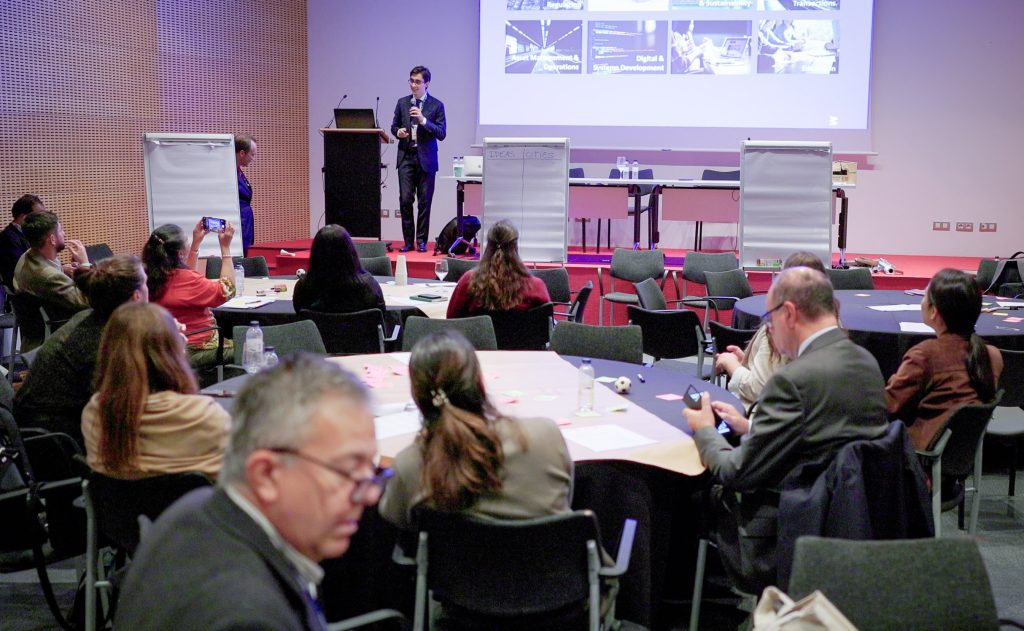
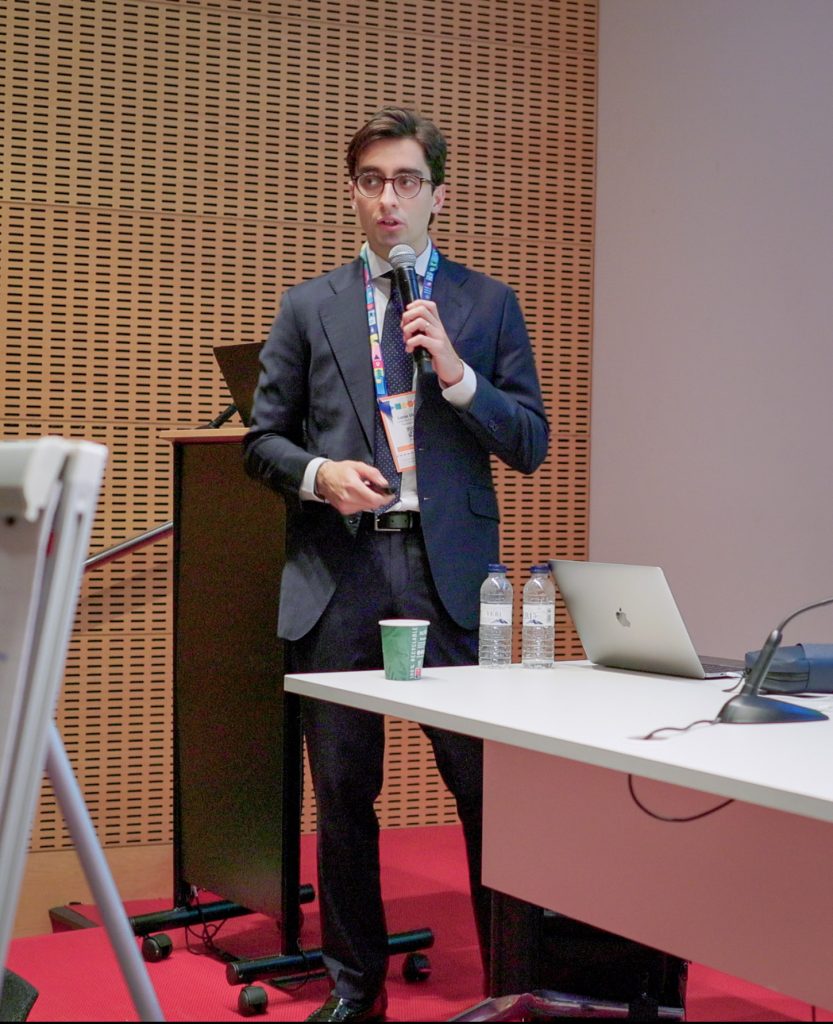
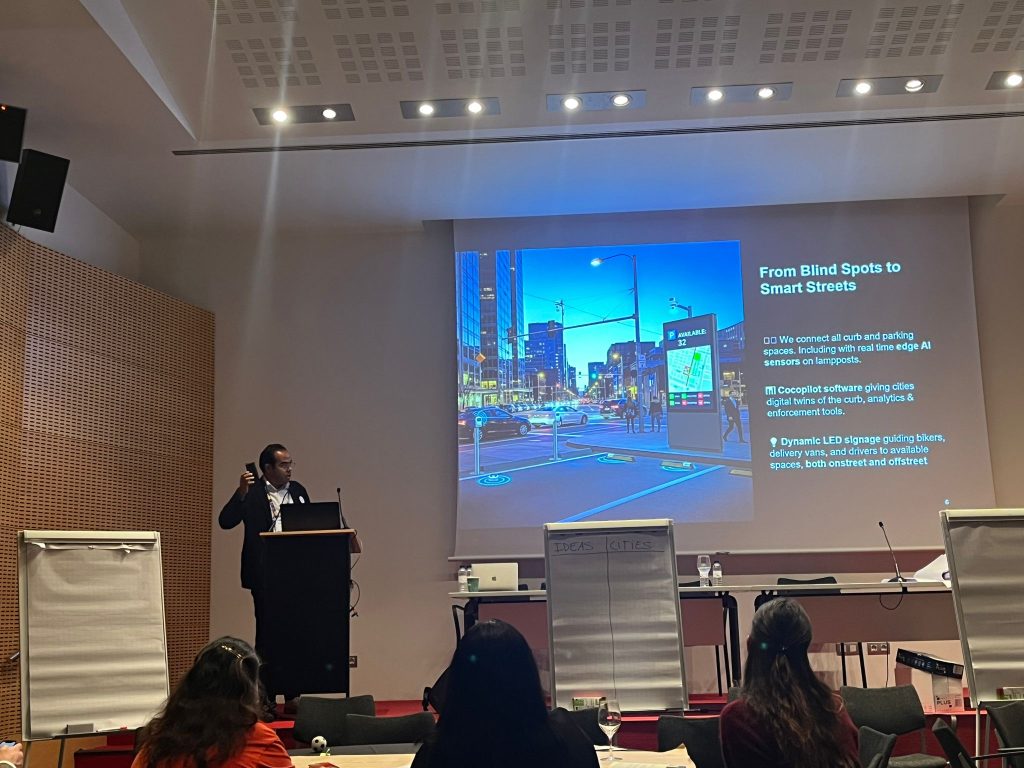
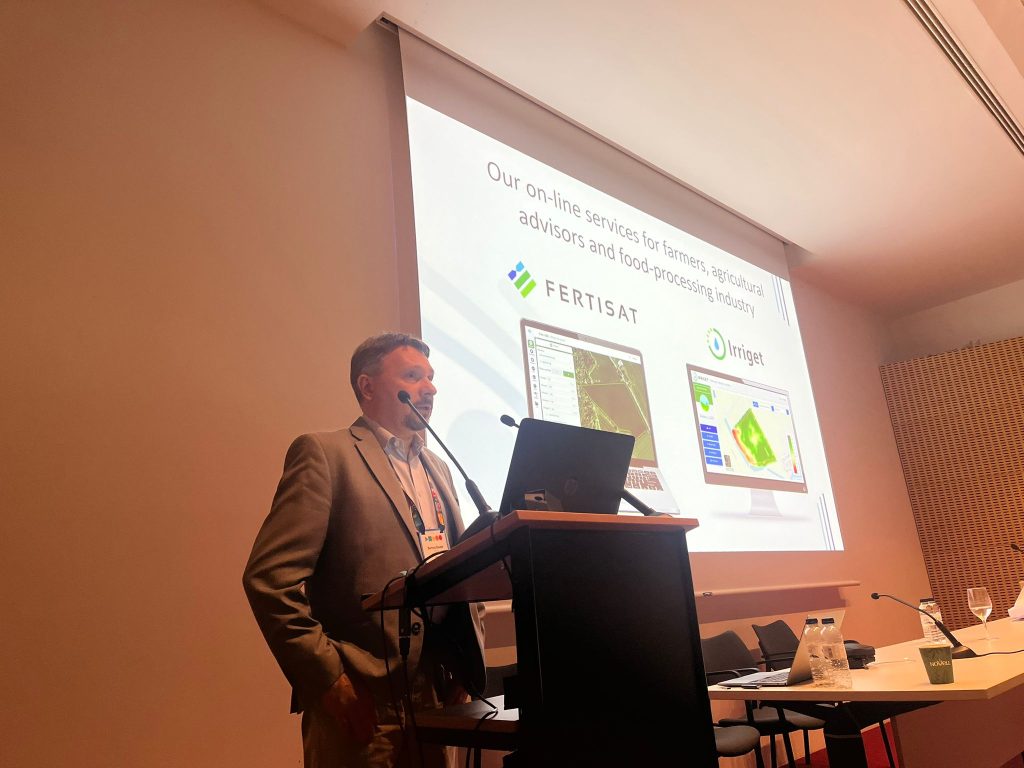
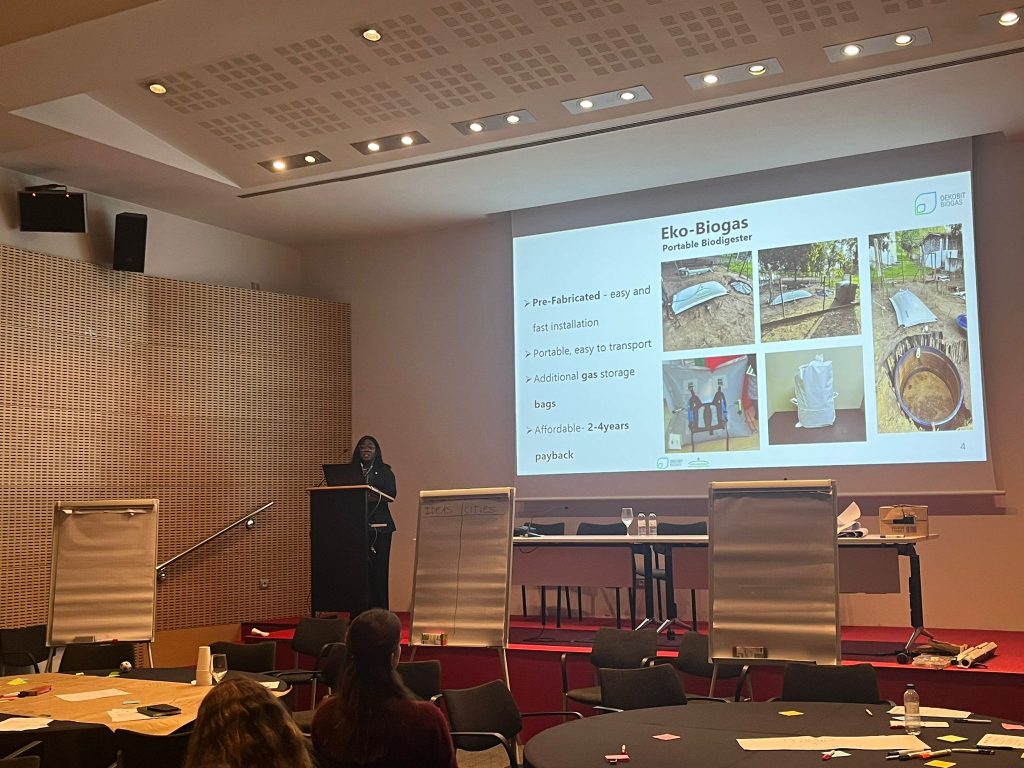
Interviews
Interviews were also conducted with pilot cities and stakeholders. This included exchanges with Kuala Lumpur’s Mayor Maimunah Mohd. Sharif, who received the Leadership Award at the World Smart City Awards 2025!
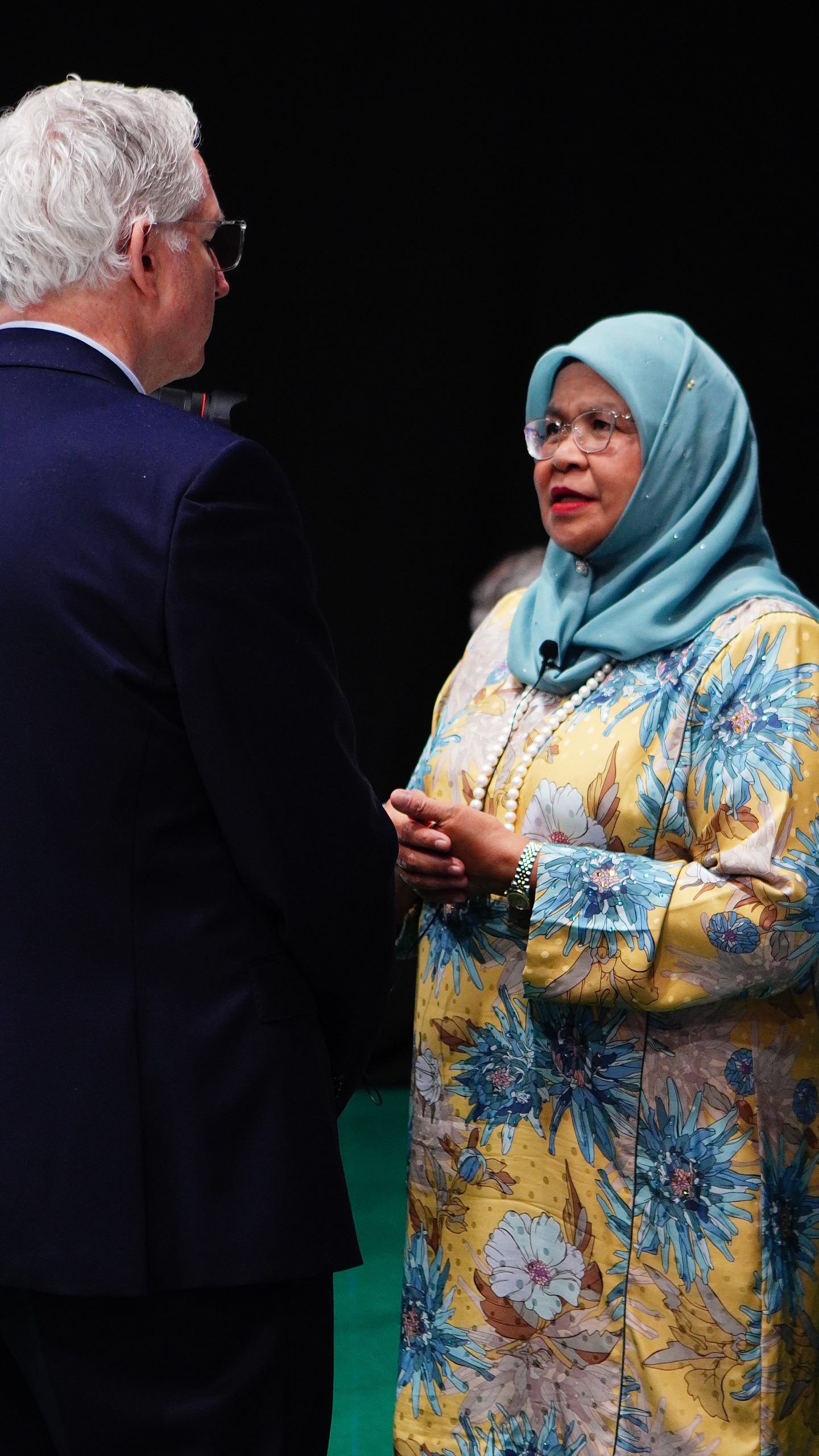
Mayor of Kuala Lumpur
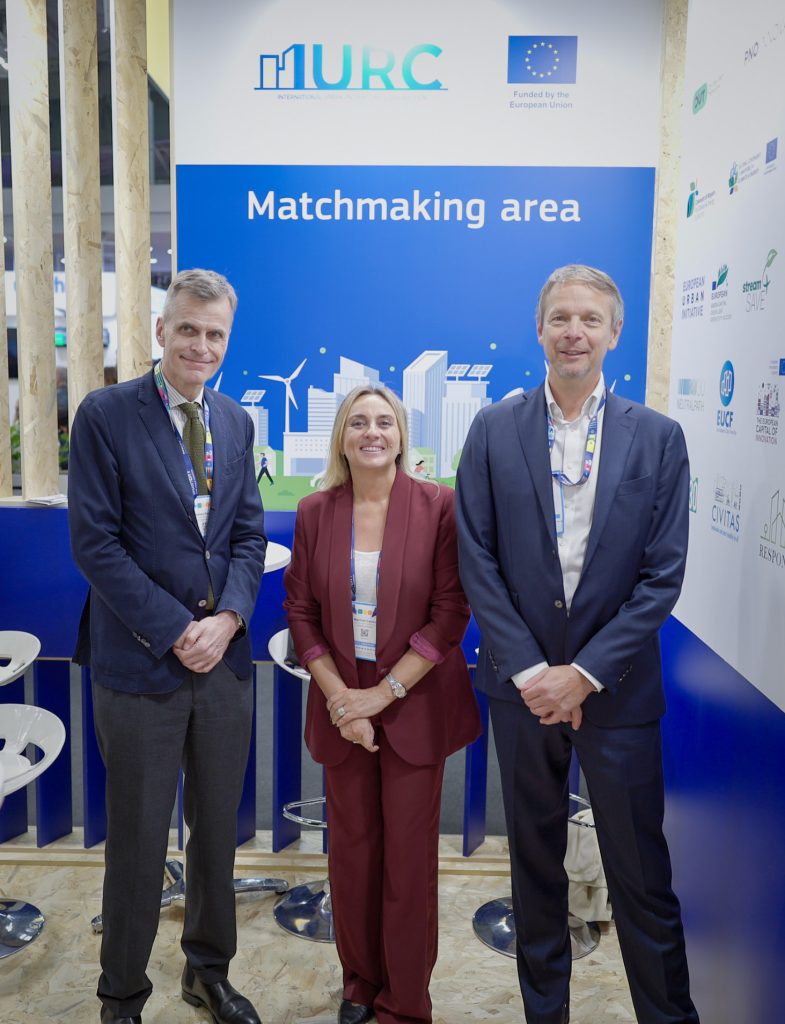
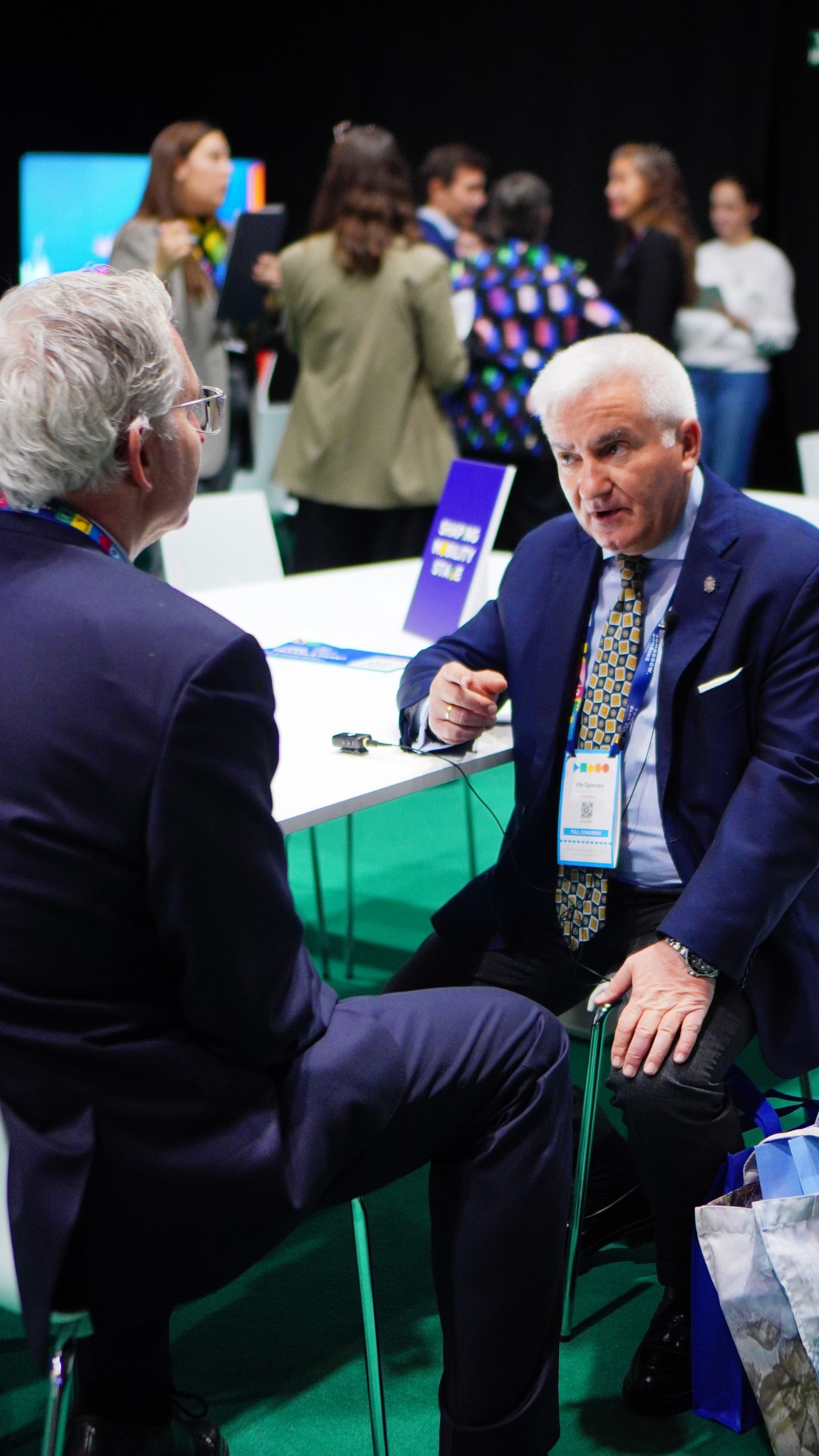
Deputy Mayor of Granada City Council
The day concluded with a networking reception hosted by the Government of Catalonia at the Palau de Pedralbes, offering a relaxed setting for further exchange among delegates, regional authorities and EU officials. Welcoming speeches looking back to the intense working sessions of the day were delivered by Lorena Elvira (Catalan Government) and Andreas Röttger (EU FPI). The session was moderated by Oscar Prat van Thiel from the IURC project team. Pablo Gándara (also IURC team) explained the upcoming activities planned for the next two days.
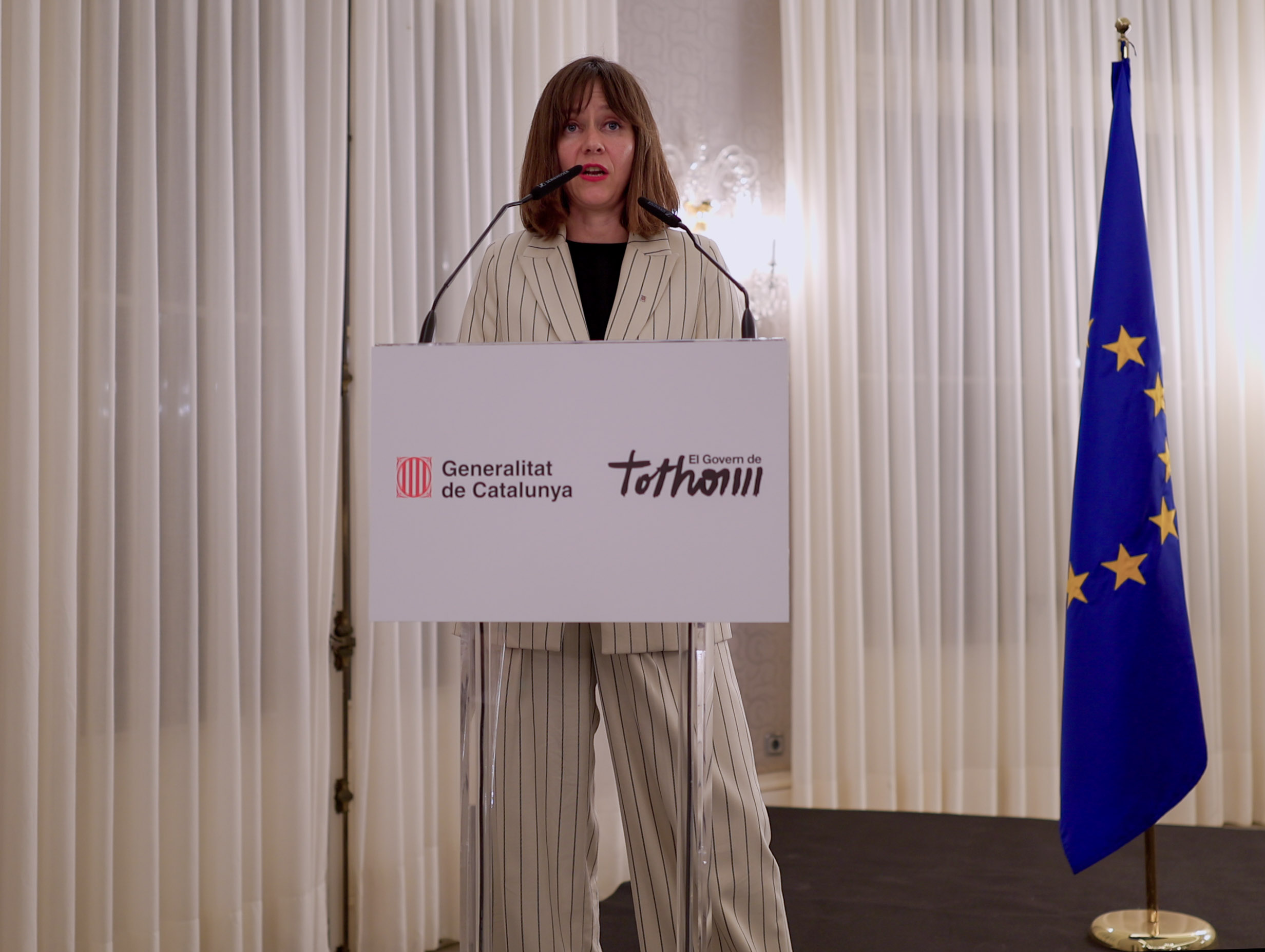
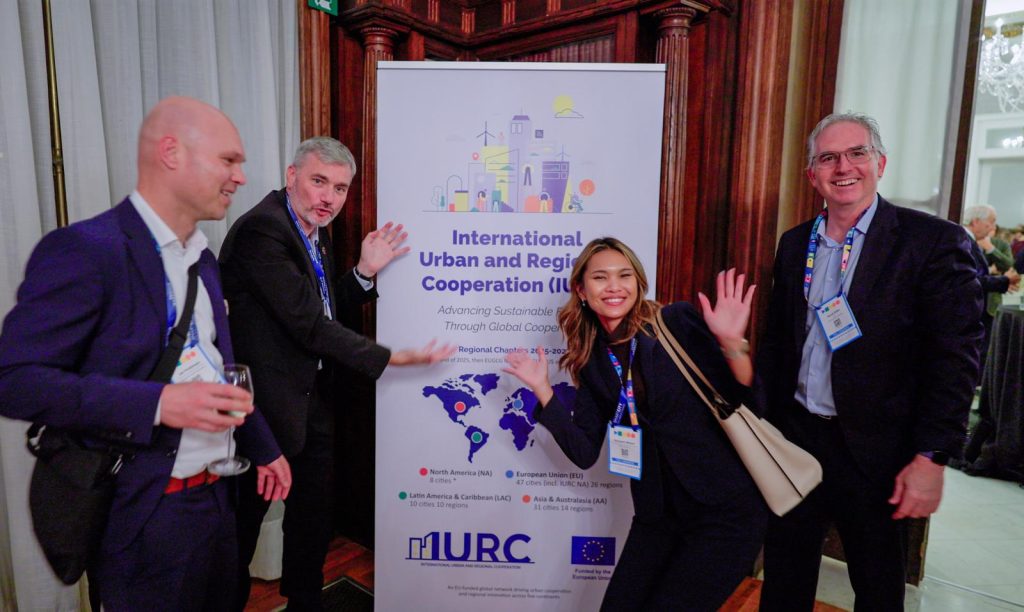
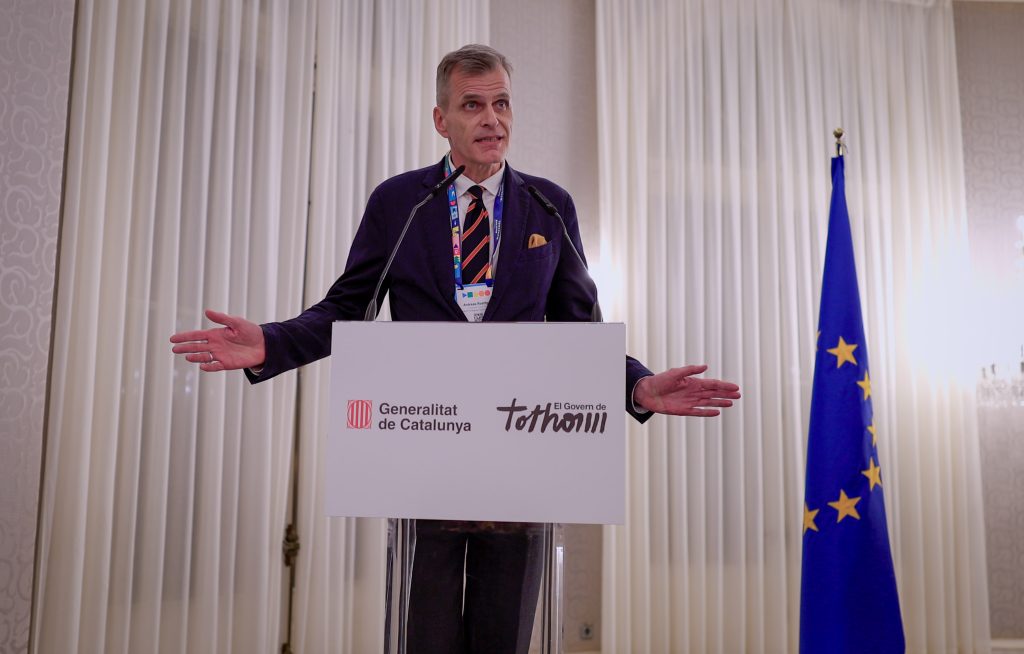
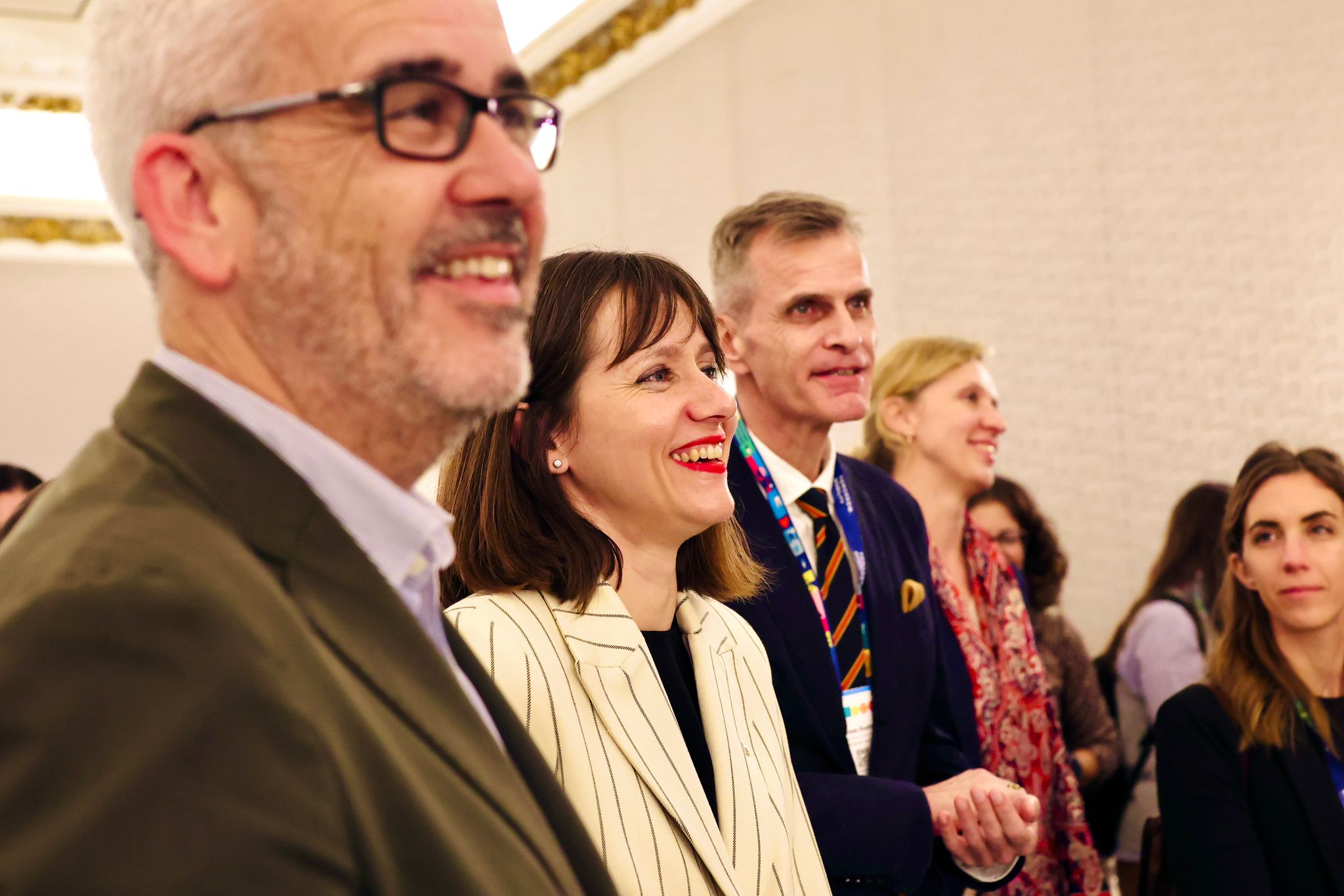
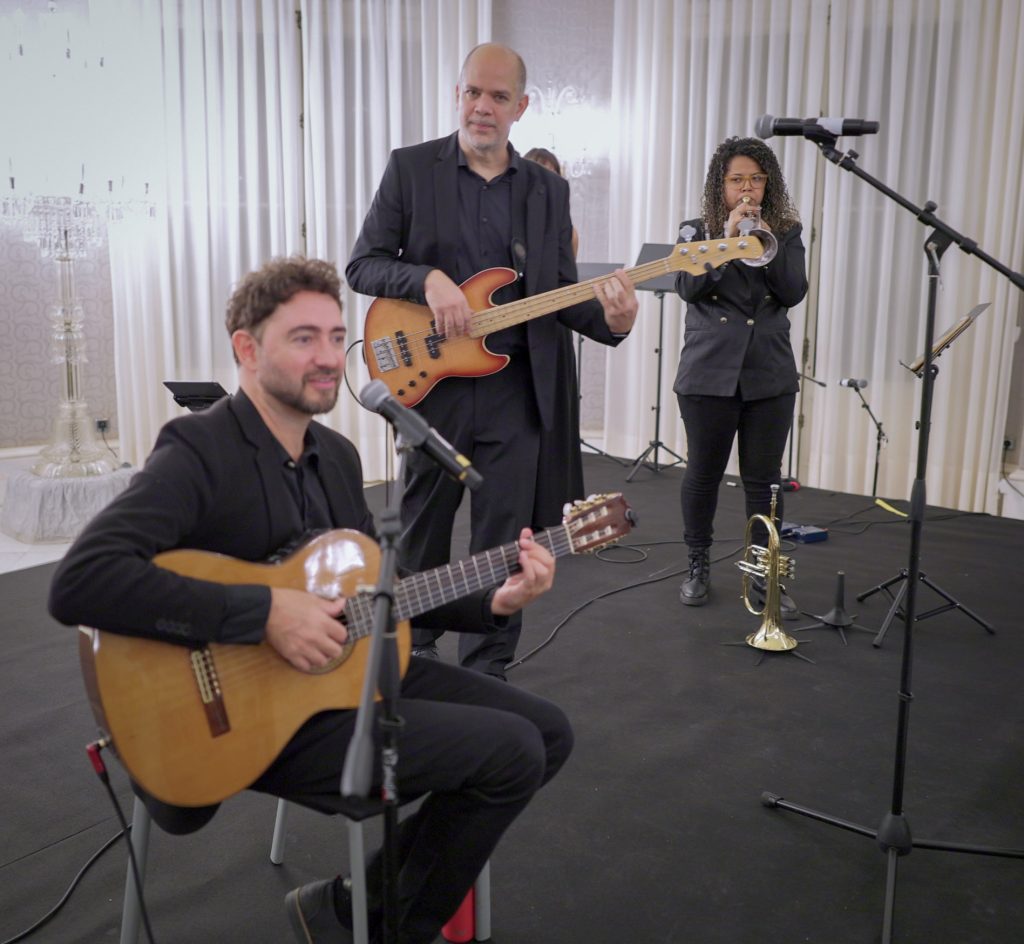
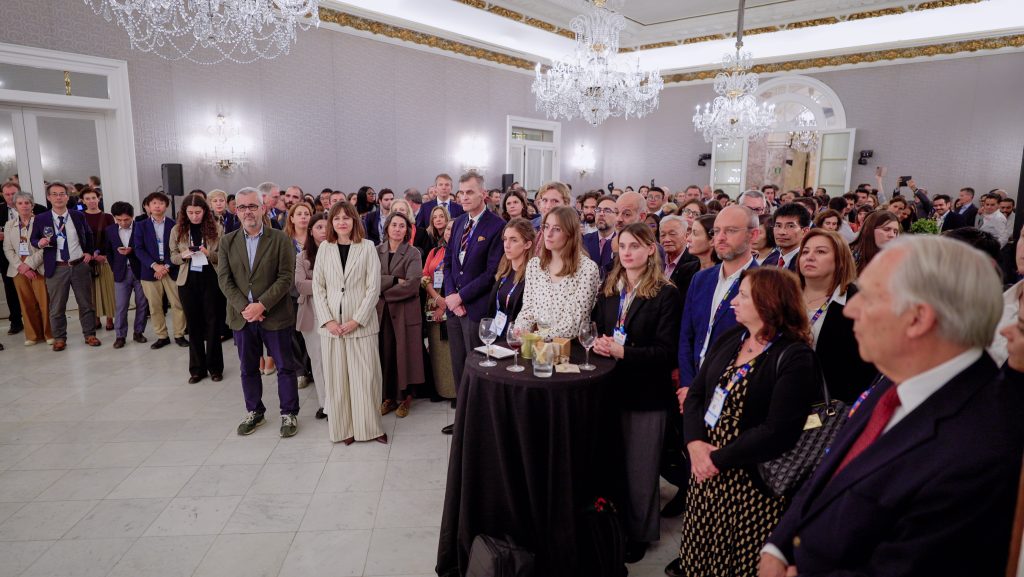
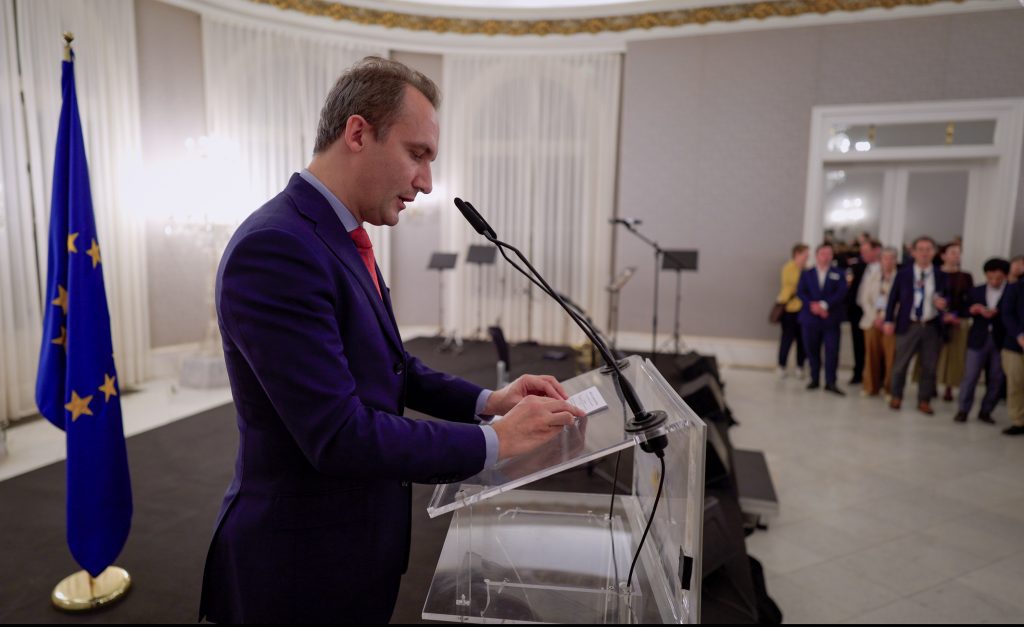
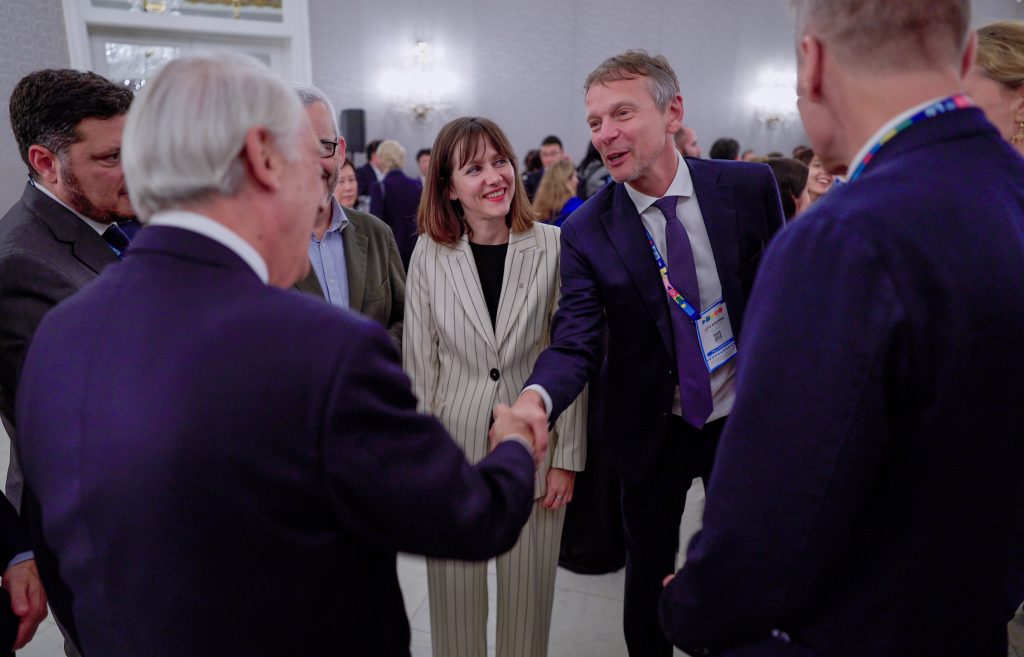
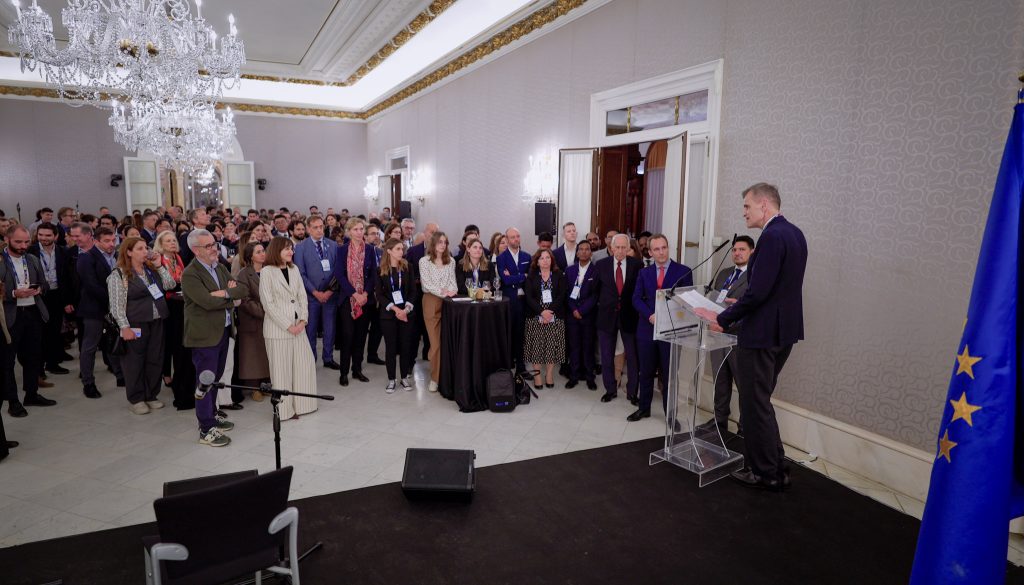
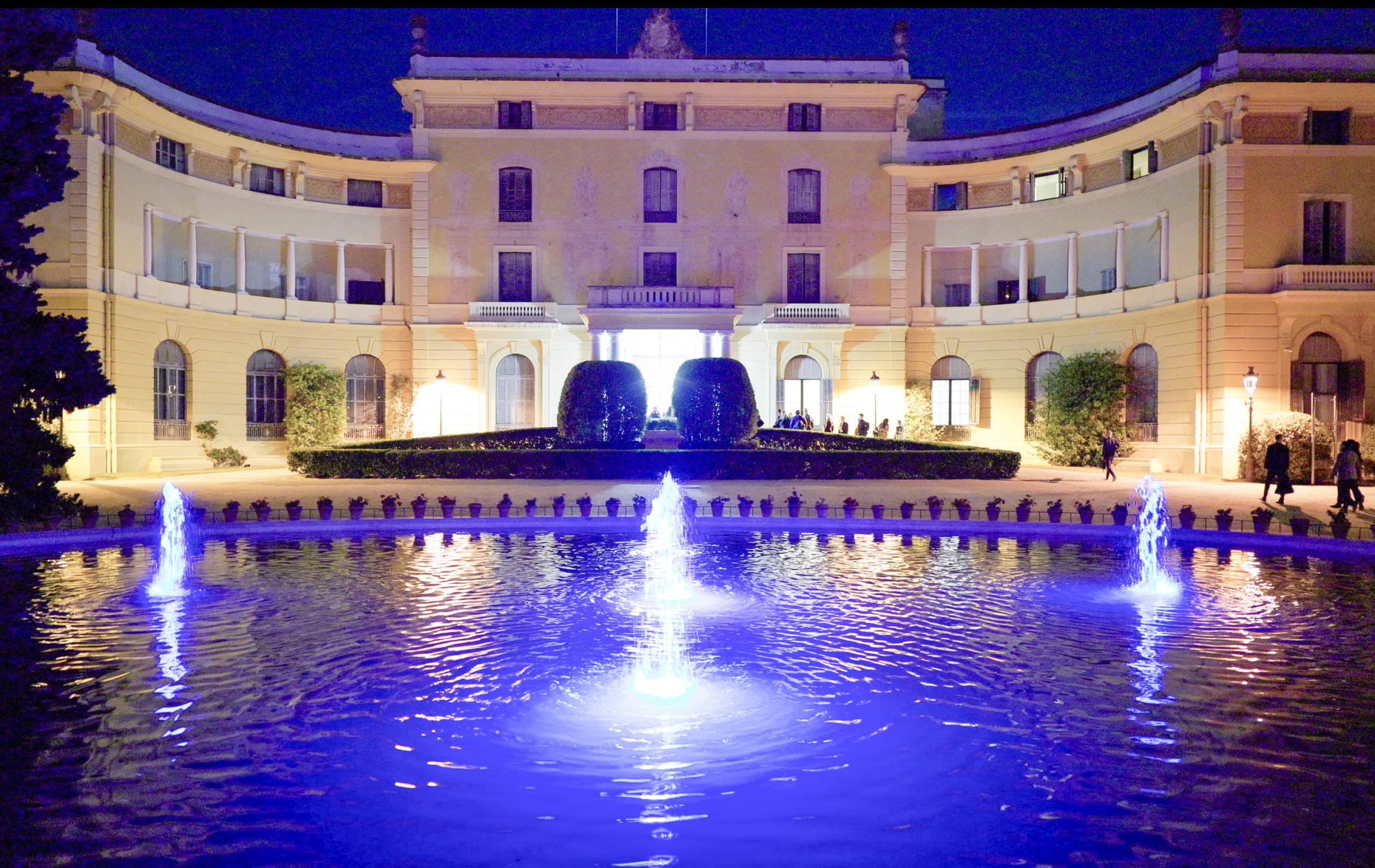
Day 2 – Matchmaking, Business Engagement & Closing Plenary
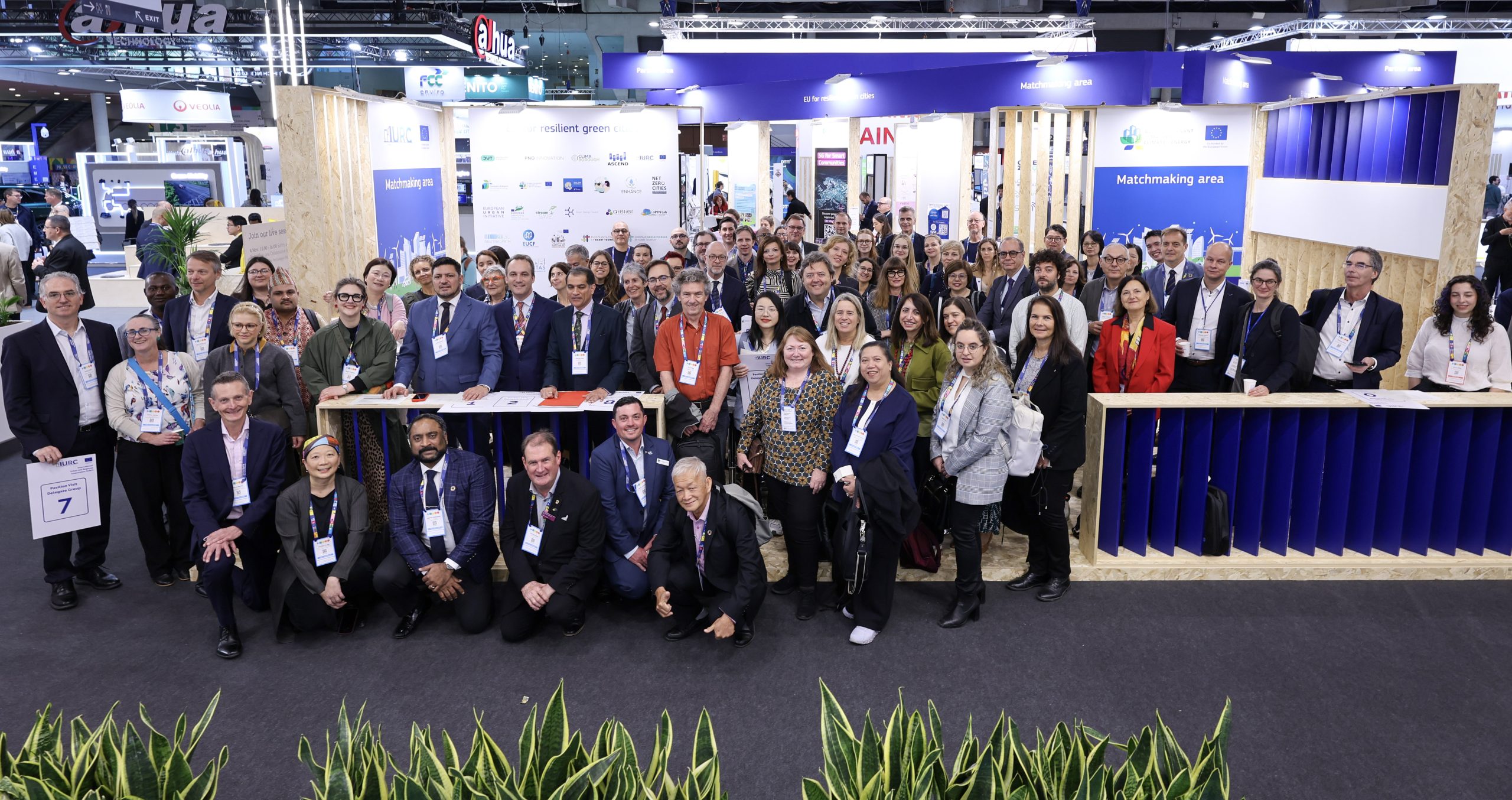
The second day focused on deepening cooperation. Some delegates convened at the EU Joint Projects Pavilion (Hall 2, Stand D101), co-hosted with the Global Covenant of Mayors for Climate and Energy (GCoM), and joined tours of the Smart City Expo World Congress, organised by IURC, visiting European country and regional pavilions showcasing cutting-edge technologies in energy, mobility, and data-driven governance.
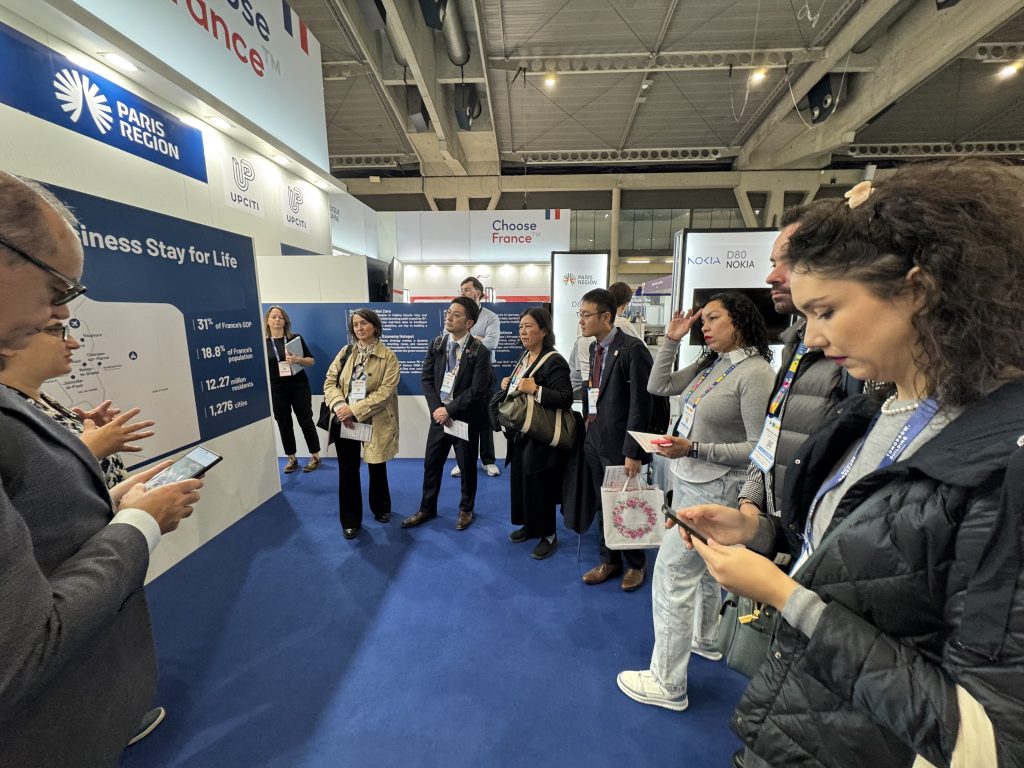
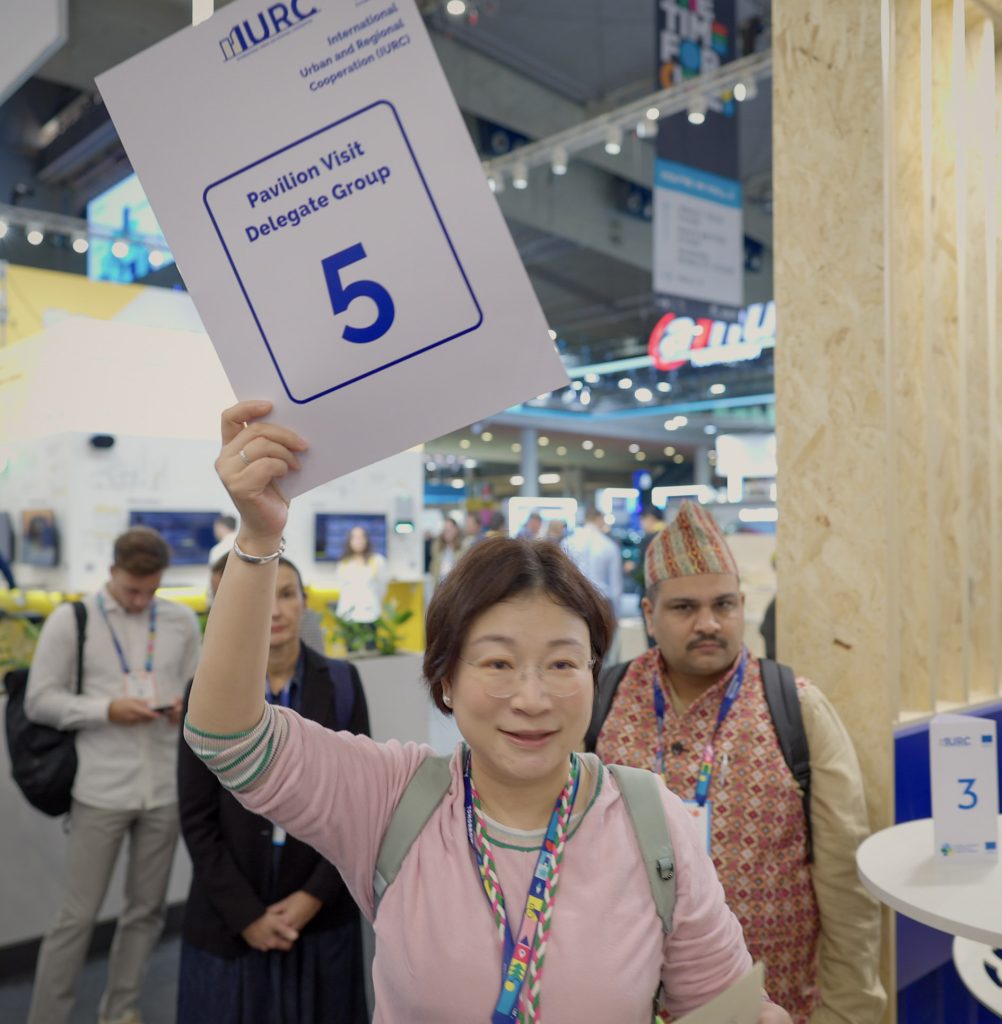
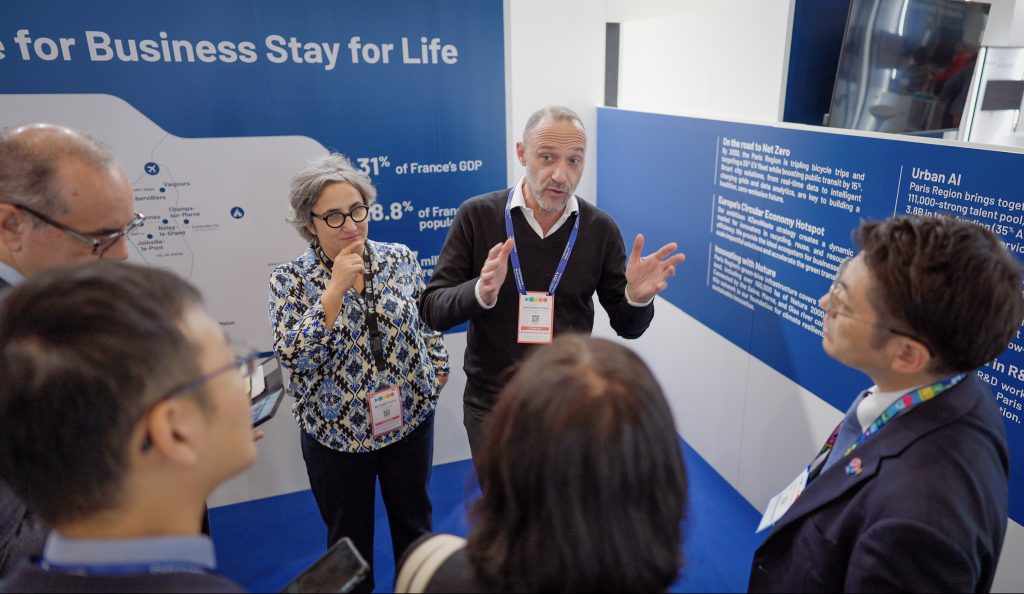
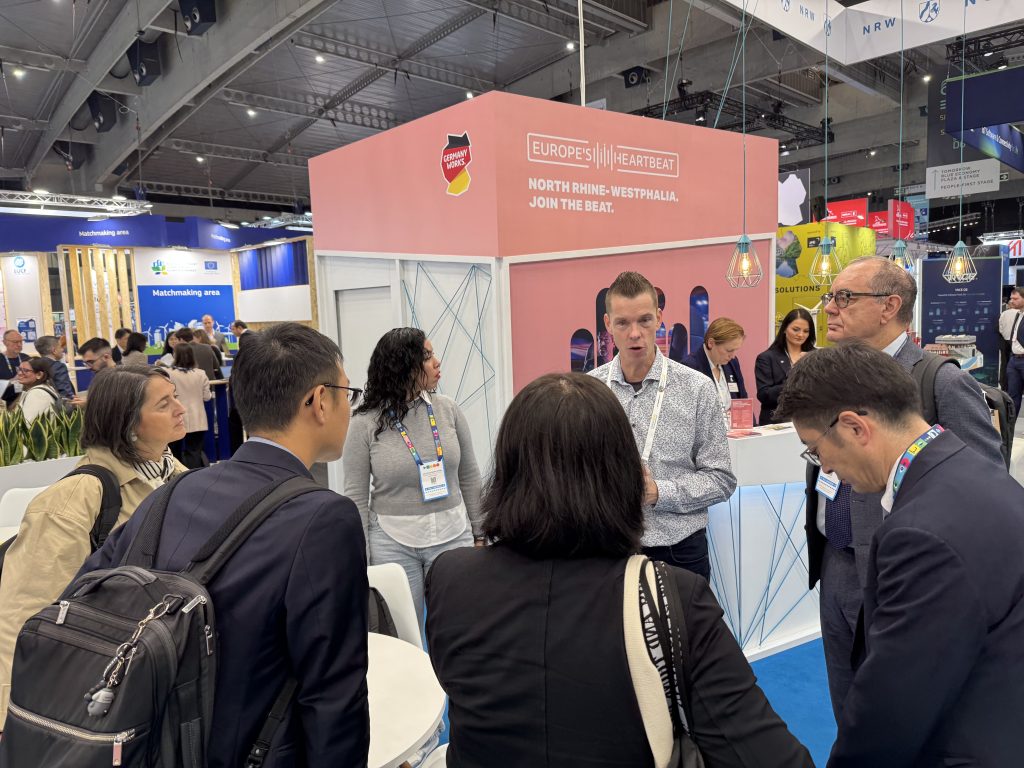
Other delegates joined the targeted project meetings and matchmaking sessions for small-group discussions to refine pilot project concepts, identify key stakeholders, explore funding opportunities, and connect with European innovation partners to advance their cooperation agendas.

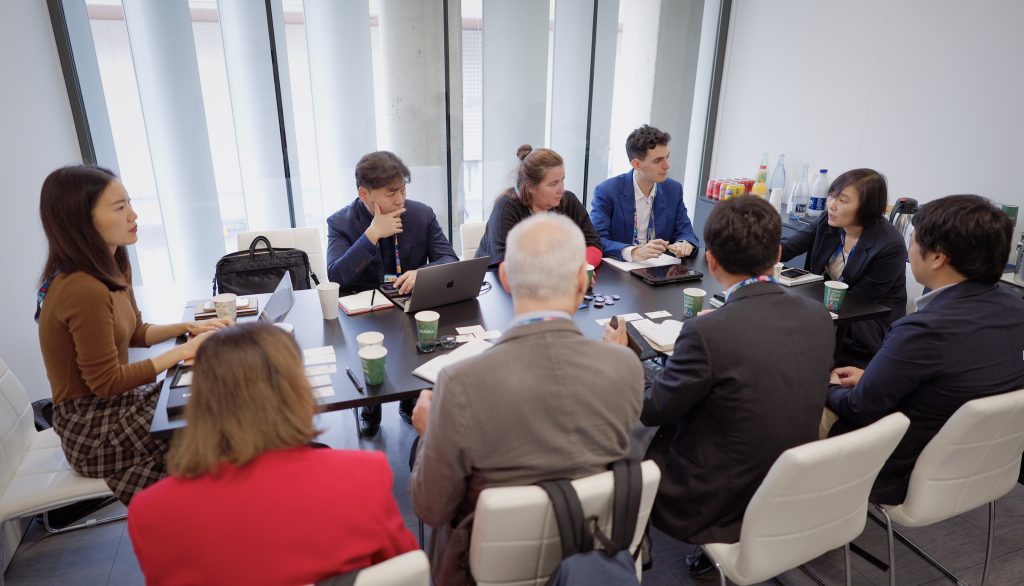
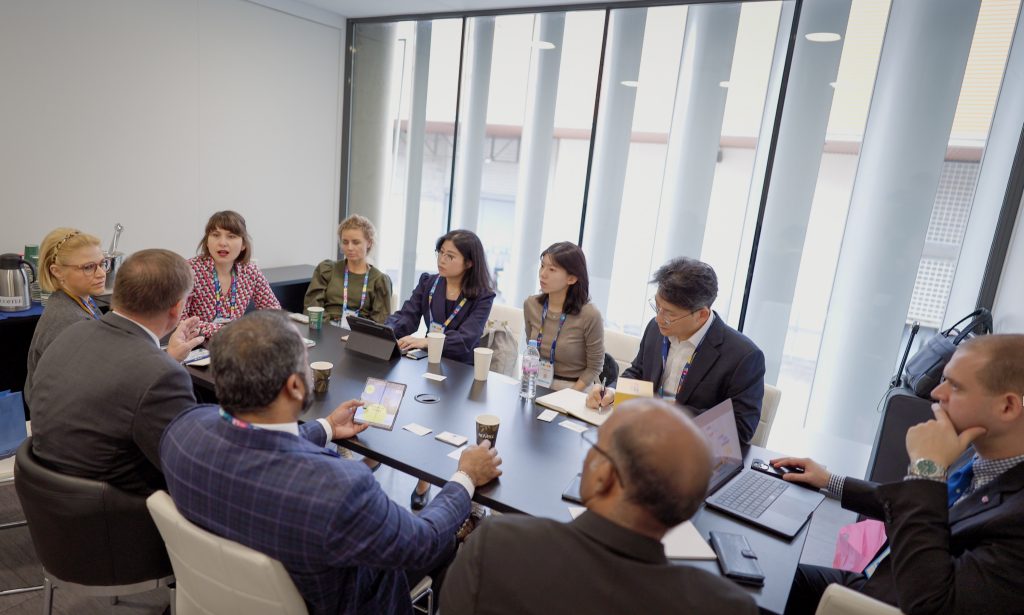

The IURC Programme was also showcased at the EU Joint Projects Pavilion, including a dedicated matchmaking area. This location was used for bilateral meetings as well as for interviews and meetings with high-ranking officials. This included a discussion between Kuala Lumpur’s Mayor Maimunah Mohd Sharif and Granada’s Deputy Mayor Vito Episcopo. Also, IURC project partners used this space for consultations with the project team.

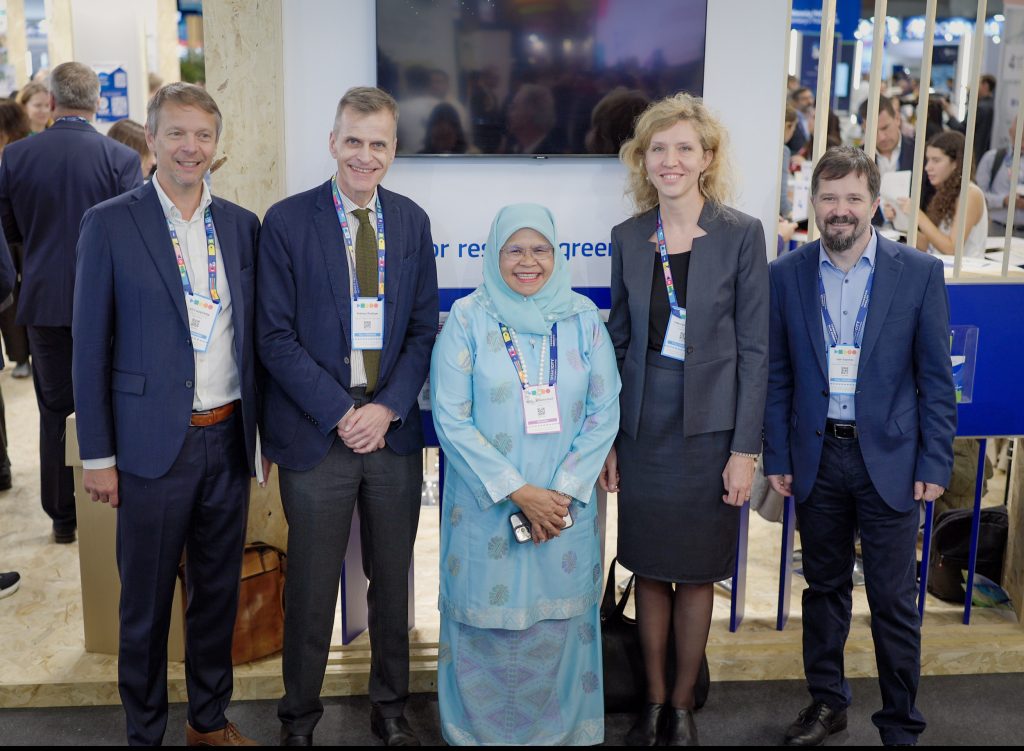
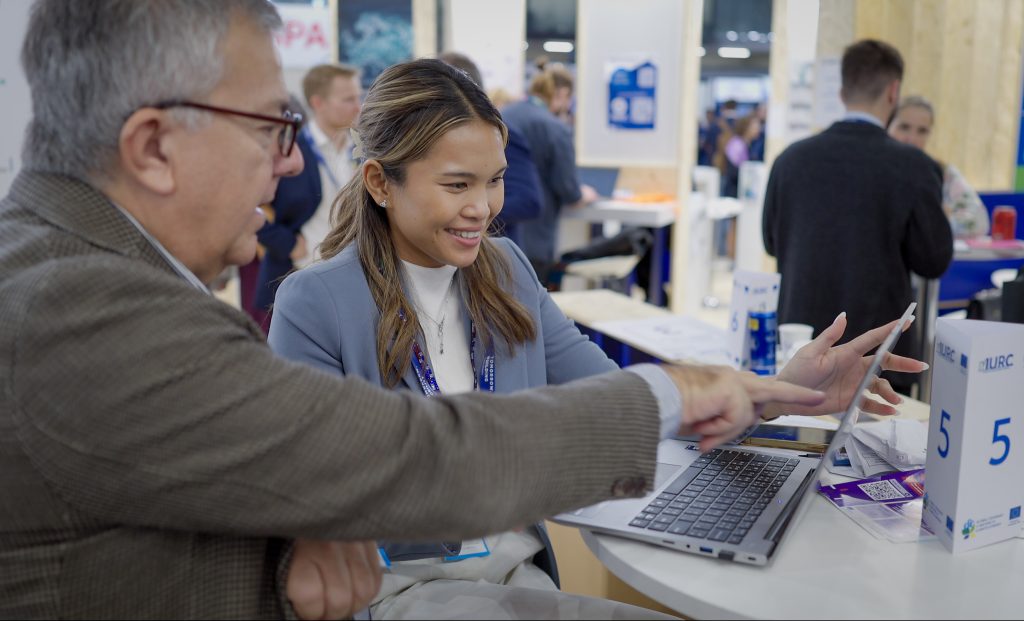
IURC pilot cities’ and regions’ delegates also took the opportunity to participate in thematic discussions organised by the Smart City Expo and the European Union Joint Projects Pavilion. Representing the IURC pilot region of the Basque Country, Marta Epelde, General Manager of the Build:Inn Construction Cluster, joined the session Future-Proofing Cities: Innovations in Sustainable Infrastructure and Buildings, jointly organised by the IURC AA team with other EU project partners. IURC Delegates also visited the Smart City Expo and learned from European sustainable technologies for urban and regional development.
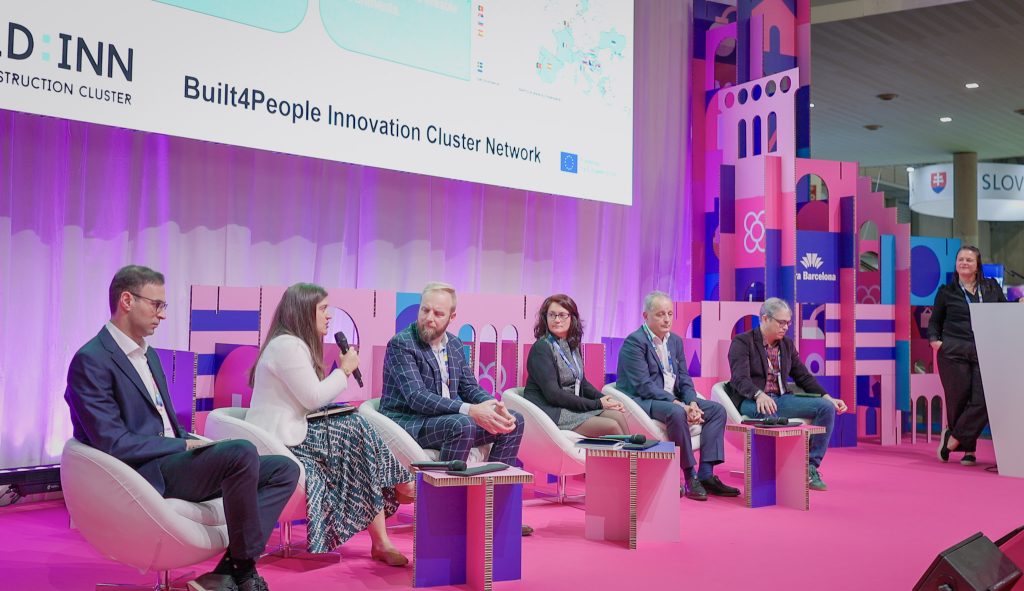
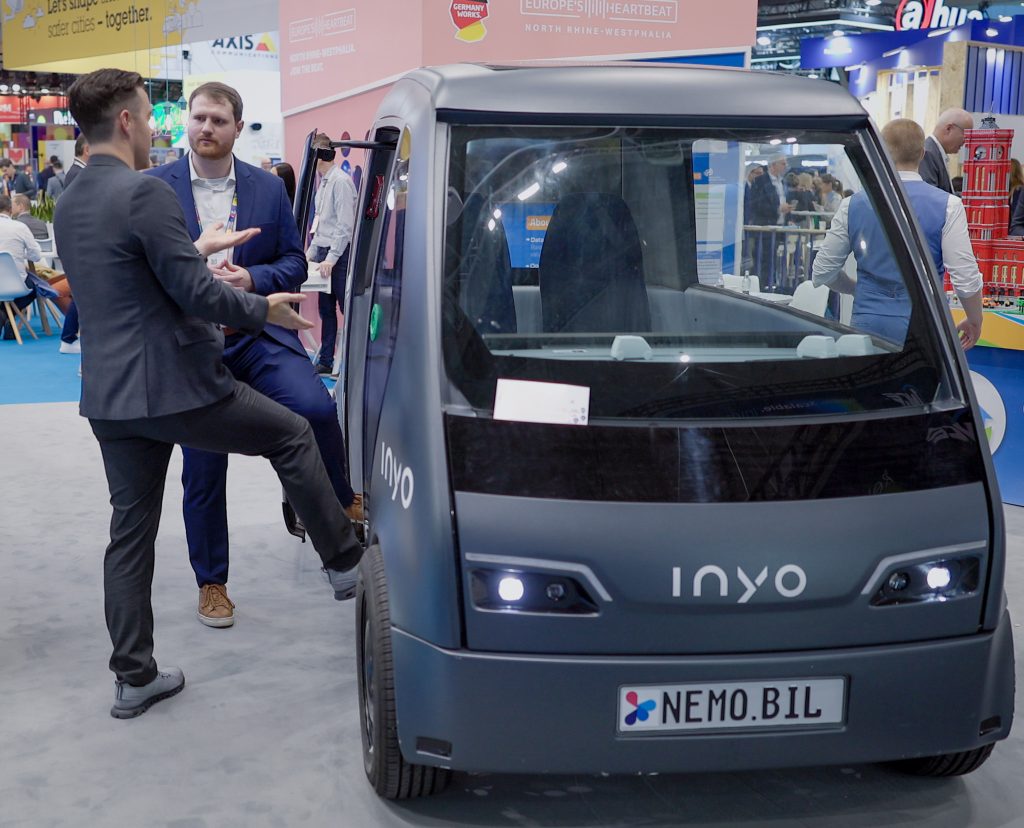
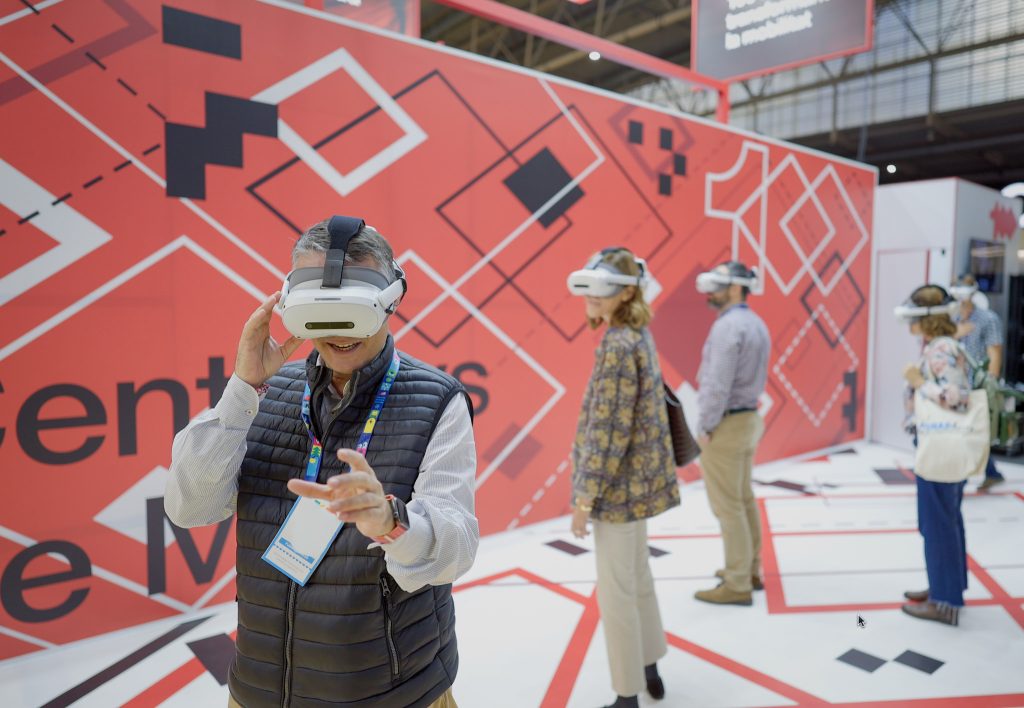
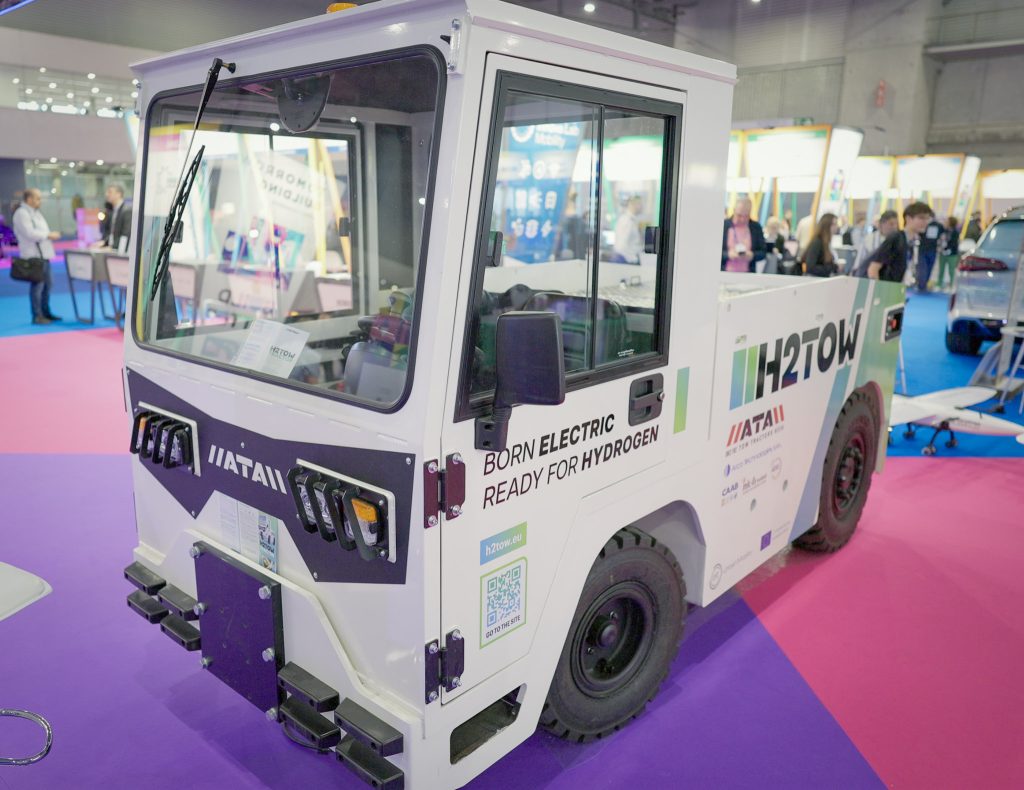
Back at the conference centre, participants reconvened for the Interactive Session and Closing Plenary, featuring a rapid speed-dating “spotlight” round, where each pilot city and region presented their key stakeholders involved in the IURC, the cooperation goals, and the key reasons to work with them. Funfacts made the interaction particularly engaging!
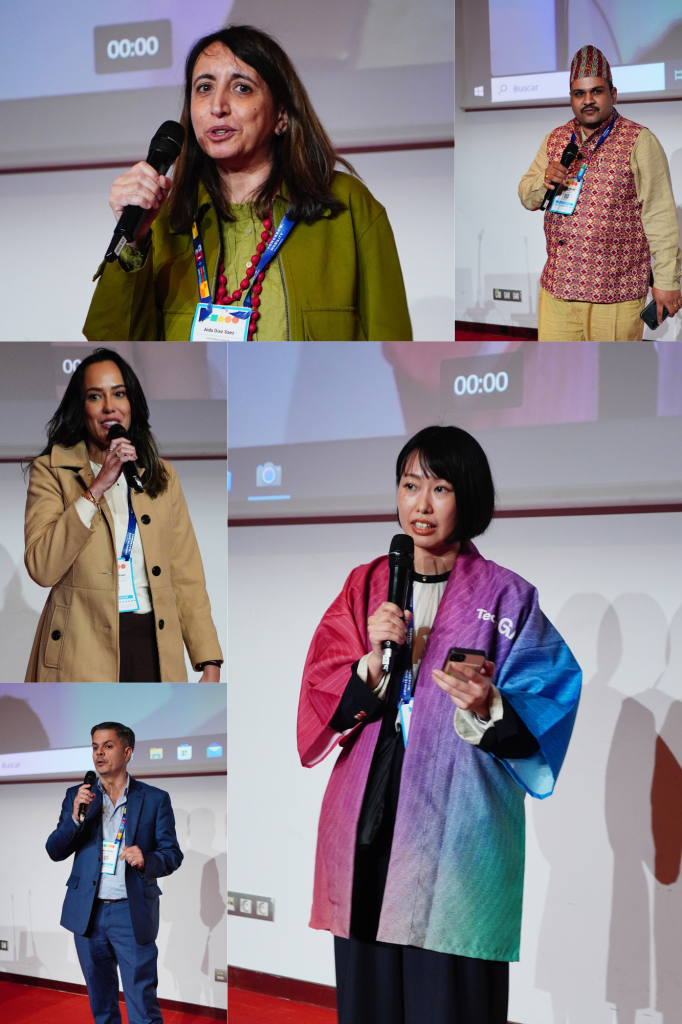
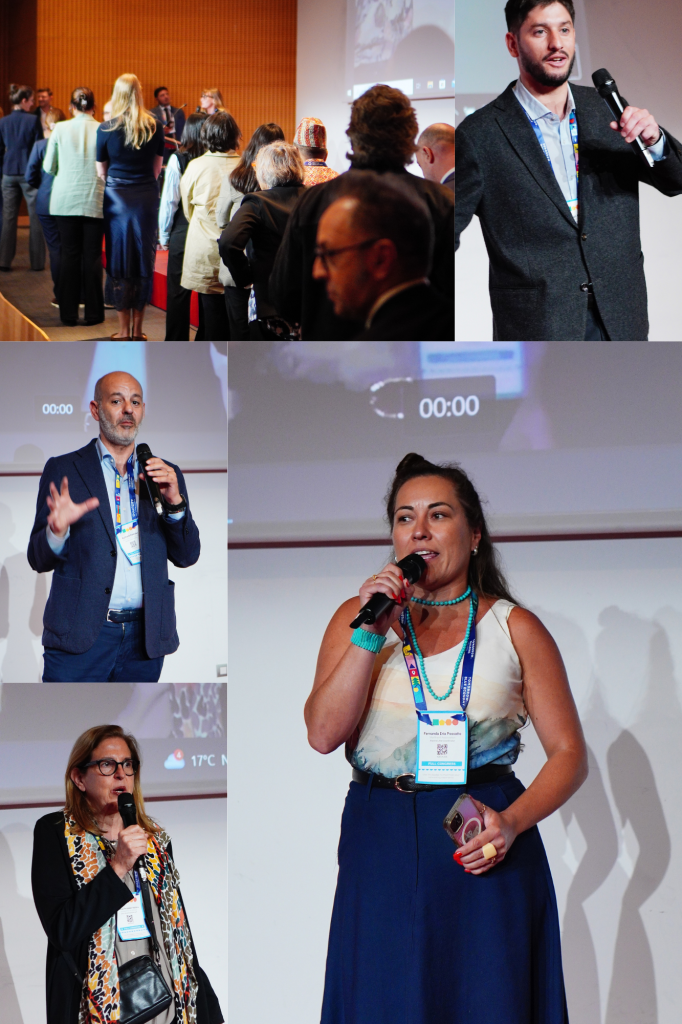
The IURC team provided feedback on outcomes from the 14 breakout sessions, including thematic clusters, international and business engagement. For example, city leaders and experts joined forces to turn climate adaptation ideas into action through the IURC programme. They proposed green corridors to cool cities, ponds and alerts to manage floods, shared coastal data for informed planning, and stronger zoning with tree planting to curb heat and flood risks. Their shared vision includes combining data, nature, and community engagement to drive real urban resilience.
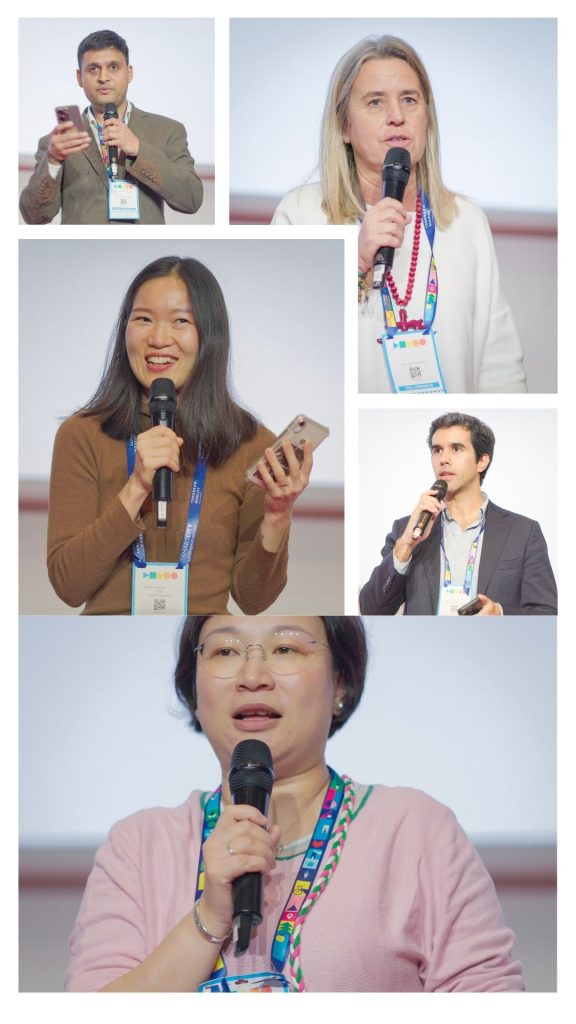

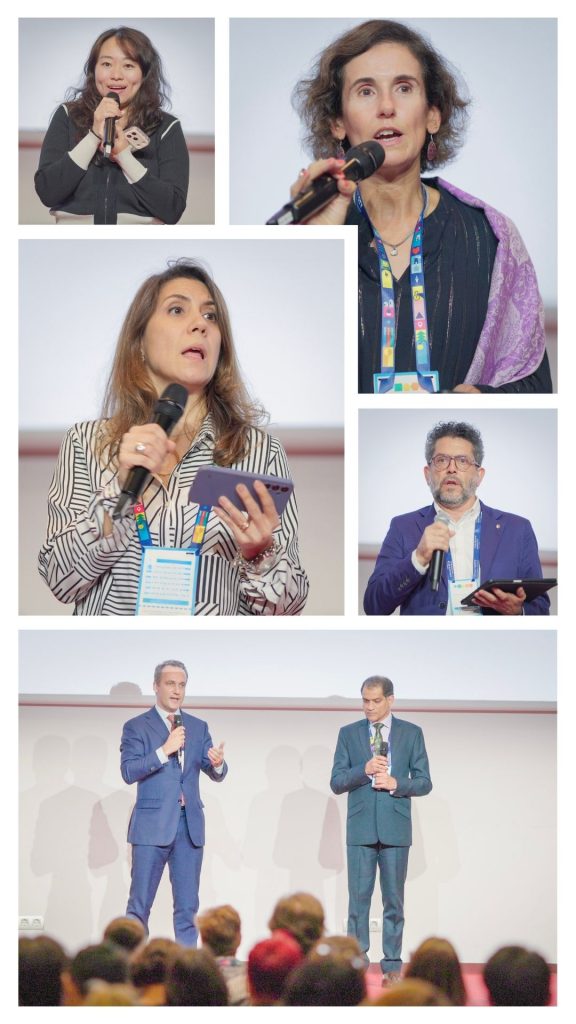
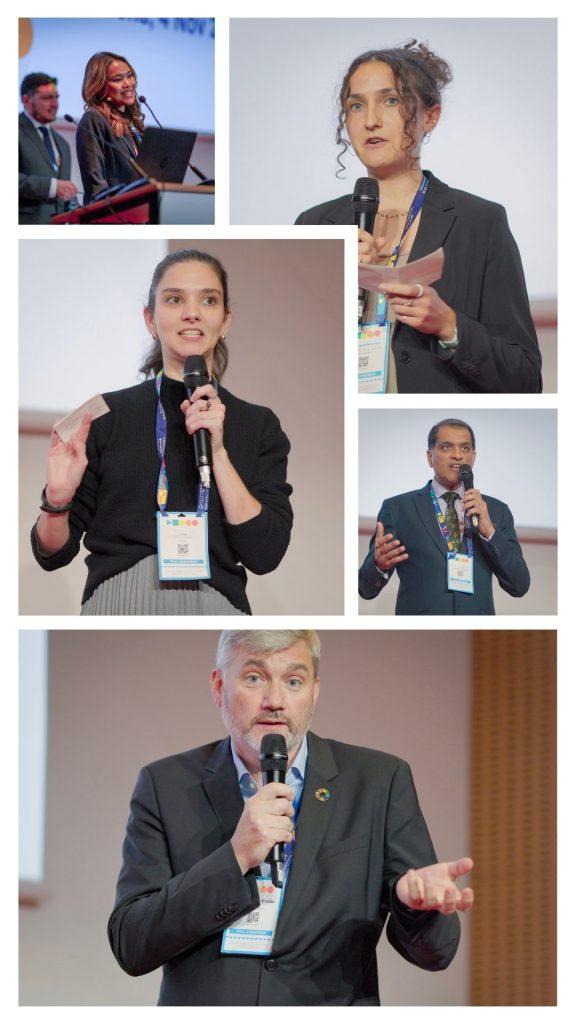
The closing session continued with the IURC team leaders outlining the programme’s next steps (see below). The thematic webinar was then closed by the European Commission’s IURC Programme Managers Viktorija Kaidalova (FPI) and Lutz Köppen (REGIO).
- Thematic Webinars (Sept 2025 – Apr 2026)
- Study Visits in Latin America, Asia/Australasia (June 2026) and Europe (2026–2027)
- Next Regional Networking Events: World Cities Summit, Singapore (14–16 June 2026) and Latin America (TBD)
- Final Results at the EU Week of Regions & Cities, Brussels (Oct 2027)
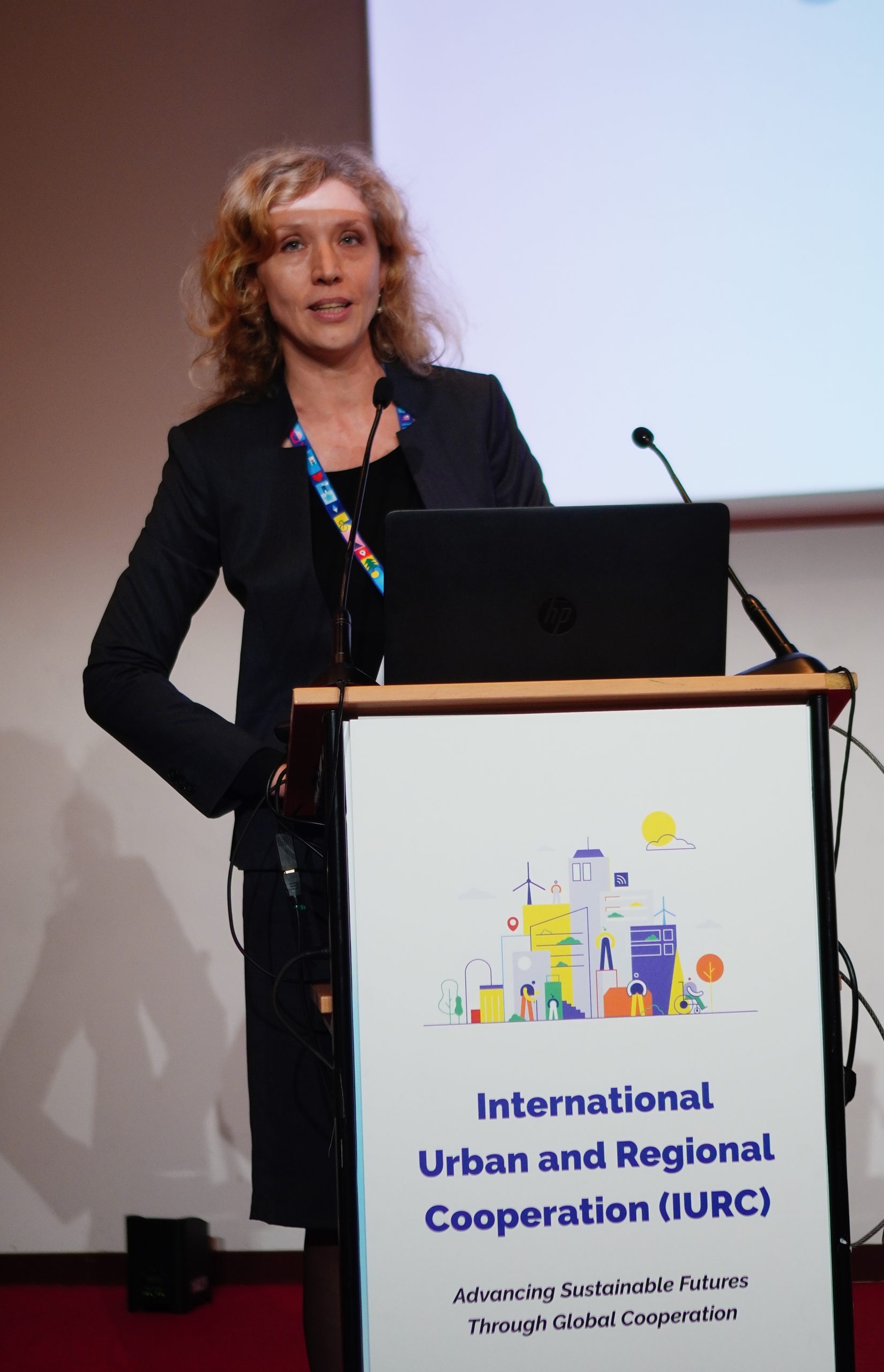
IURC Programme Manager,
EU Service for Foreign Policy Instruments
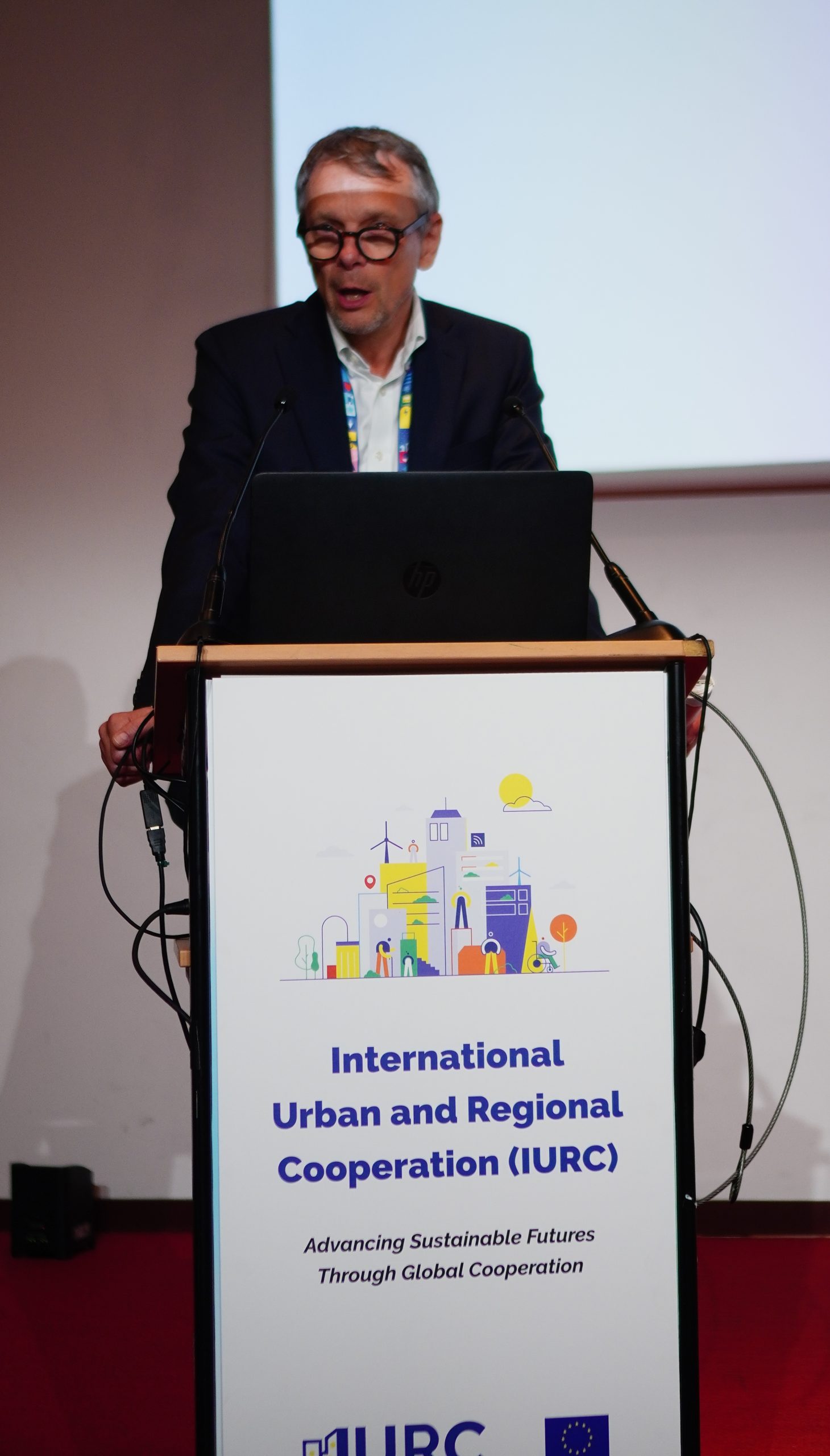
Policy Officer, Directorate-General for
Regional and Urban Policy, EU Commission
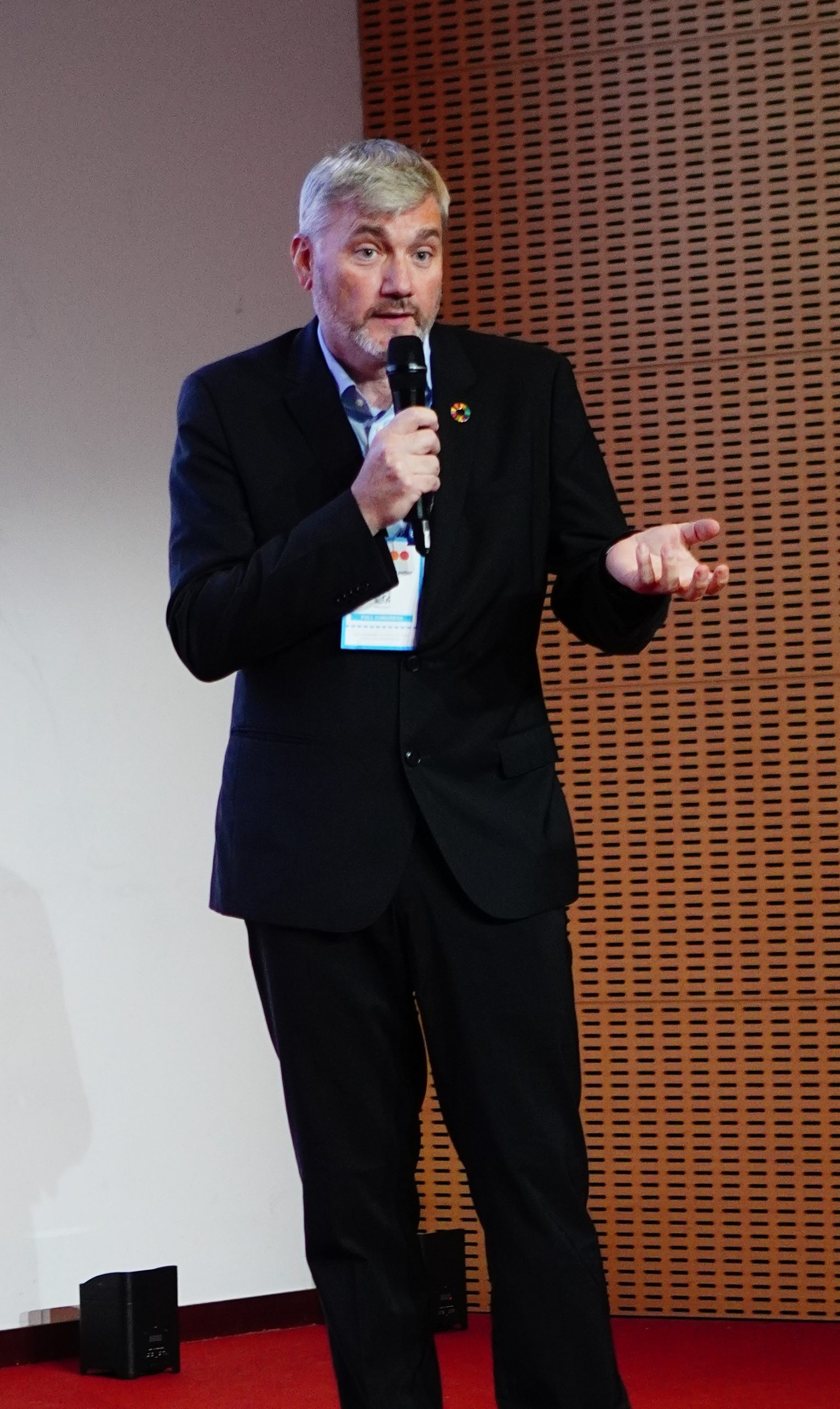
Team Leader
IURC Latin America & Caribbean
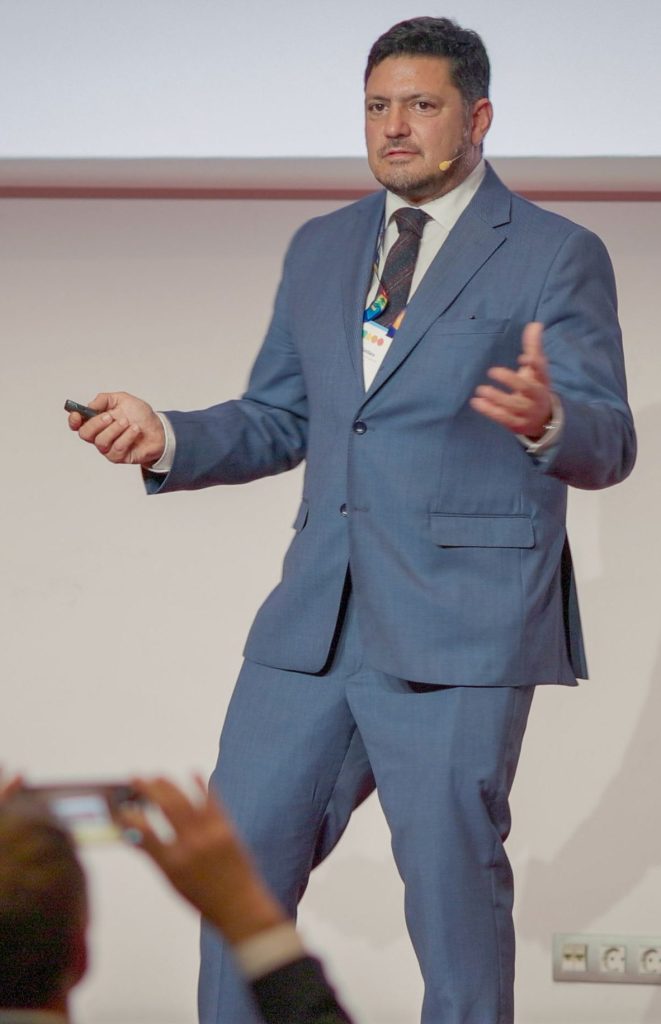
Team Leader
IURC Asia & Australasia
Day 3 – Site Visits: Innovation in Action
The final day offered immersive field visits showcasing Catalonia’s innovation ecosystem, supported by the Government of Catalonia, the Barcelona Metropolitan Area (AMB), and the City Council of Barcelona. Delegates split into three thematic tracks:
- Supercomputing & Smart Cities – At the Barcelona Supercomputing Center (MareNostrum 5) and the AI Transfer Network of Catalonia, delegates were invited to learn how digital twins and artificial intelligence are shaping future-ready cities. The visit had to be cancelled due to a storm warning by the Catalan authorities.
- Sustainable Agriculture & Circular Bioeconomy – The Agropolis Research Hub (UPC) and ERA Gavà-Viladecans Environmental Recovery Area showcased integrated solutions in agri-tech, water management, and circular economy practices. The visit had to be cancelled due to a storm warning by the Catalan authorities.
- Port of Barcelona & Blue Economy – Nearly 40 delegates explored one of the Mediterranean’s largest ports, handling €86.3 billion in cargo and 5.3 million passengers (2023). The visit focused on the Port’s hydrogen and Blue Economy strategy, highlighting its efforts toward decarbonisation through electrification, energy efficiency, and sustainable fuel management.
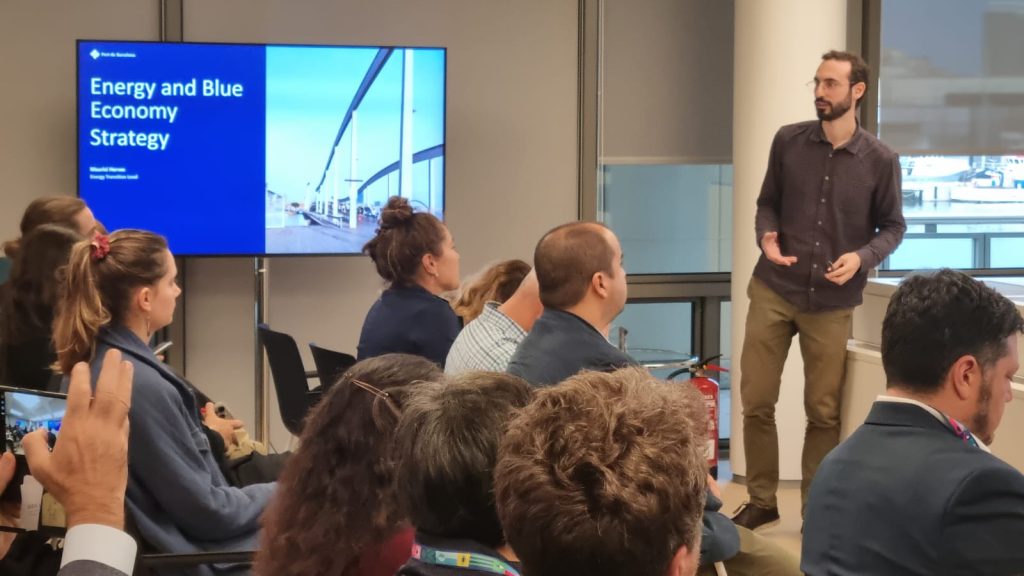
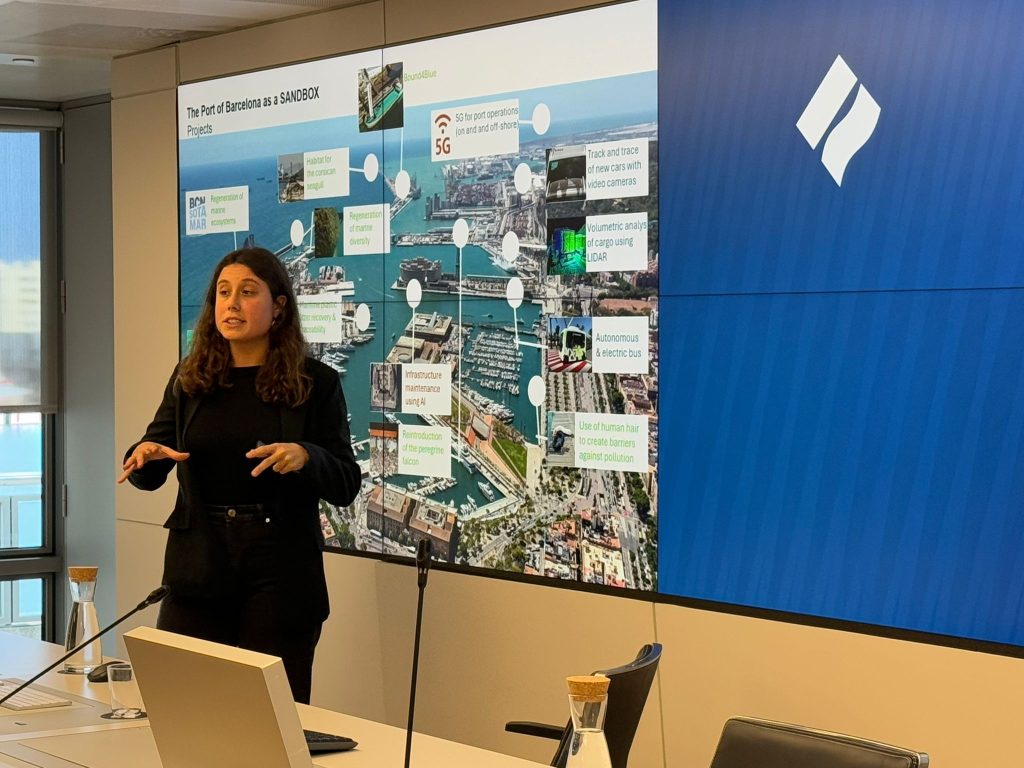
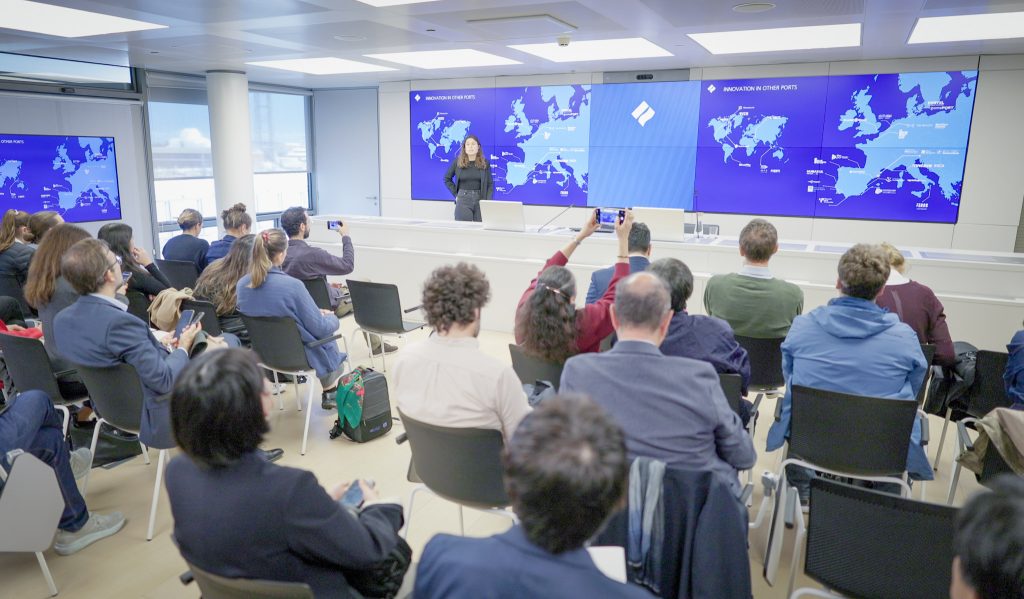
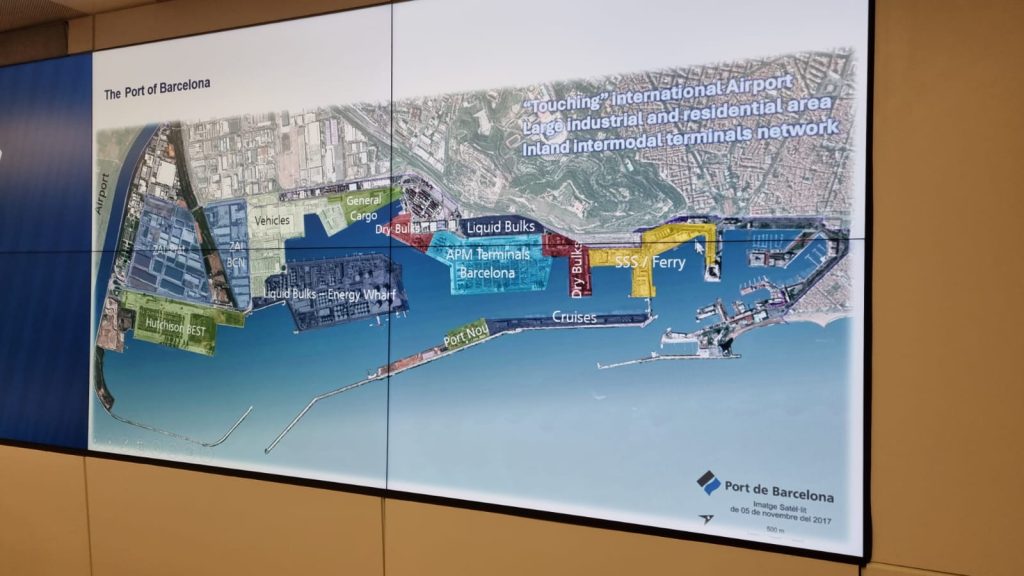
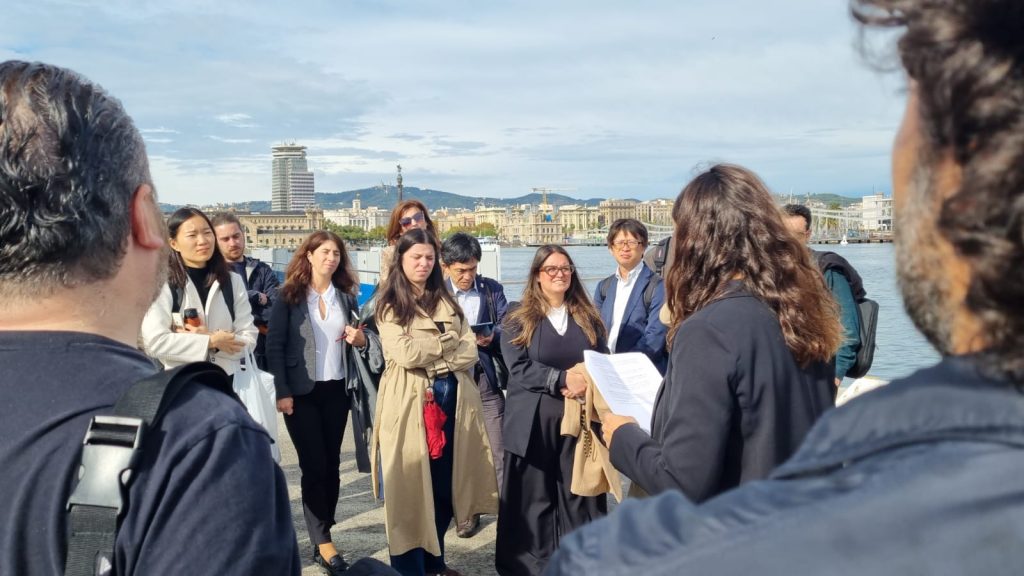
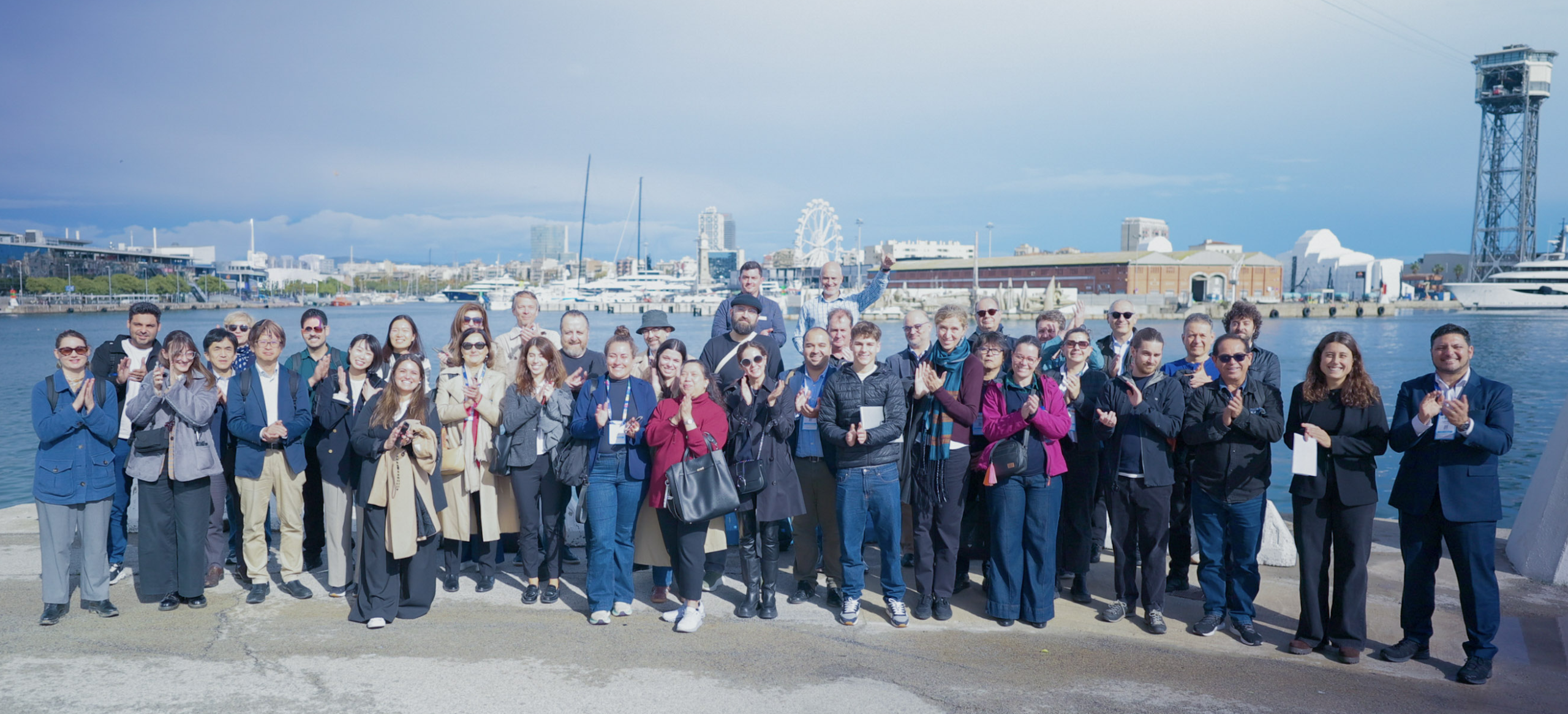
A Platform for Lasting Cooperation
The IURC Global Thematic Networking @ #SCEWC25 confirmed the EU’s leadership in decentralised international cooperation and the growing importance of international partnerships in addressing global challenges.
By combining knowledge exchange, technical collaboration, and peer learning, the IURC continues to empower cities and regions to co-create solutions for climate resilience, innovation, and sustainable growth.
The Barcelona event leaves a lasting mark — a community of leaders united in building smarter, greener, and more connected cities and regions worldwide.
